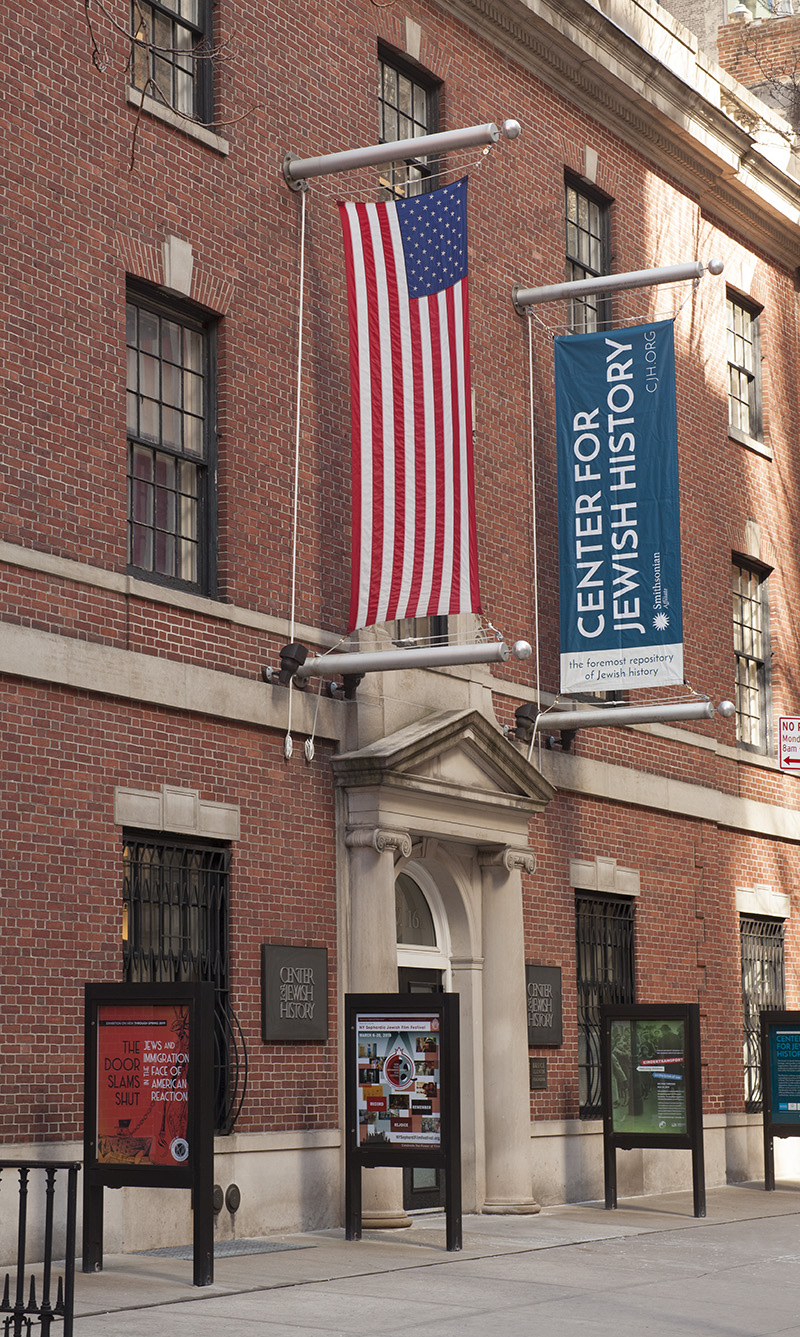lecture
A Very Jewish Christmas: Old World Jewish Christmas Traditions
The "December Dilemma" is a long-standing issue in America, but it also has deep roots in Eastern Europe, where the context and relationships between Jews and Gentiles were quite different. In this talk, Itzik Gottesman will examine the fascinating Jewish beliefs and traditions related to Christmas in the Old World.
A Hanukkah candle lighting ceremony and a kosher Chinese food dinner will follow the presentation.
Ticket Info: $15 general; $10 YIVO members, students at yivo.org/Christmas2019 or 917-606-8290
Presented by:

lecture
concert
Family Concert: Hanukkah Celebration Around the World
Hanukkah music from around the world with Elad Kabilio and the musicians from MusicTalks. Enjoy holiday songs from Israel, Yemen, Spain, and Ukraine, and a sing-along as well!
Ticket Info: $15 general at eventbrite.com/e/hanukkah-celebration-around-the-world-tickets-81770671279 or 800-838-3006
Presented by:
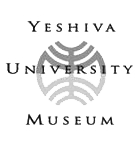
concert
lecture
The German Menorah — Lecture and Antique Judaica Roadshow
Join us for a brief talk about the unique menorahs in LBI's Chanukah-themed pop-up exhibition and light holiday snacks. Then, show off your own antique Judaica for an “Antique Judaica Roadshow”–style appraisal from the curator, Tsadik Kaplan. Start “searching the attic” to bring in your old menorahs, Kiddush cups, candlesticks, Torah ornaments, etc. to learn more about their history and significance!
Tsadik Kaplan is a collector and appraiser who writes the “Antique Judaica Roadshow” column in The Jewish Press and the author of Jewish Antiques: From Menorahs to Seltzer Bottles. A selection of German menorahs from his personal collection will be on display in the Paul S. And Sylvia Steinberg Great Hall at the Center for Jewish History starting December 16.
This brief lecture is just one of several programs celebrating the beginning of Chanukah at the Center for Jewish History. You are also invited to join us for a family program of Chanukah songs from around the world with Elad Kabilio and the MusicTalks ensemble at 11:00 AM and the American Society of Jewish Music's Annual Chanukah Concert at 3:00 PM Ticket holders for both concerts are welcome to stay or come early for the lecture at no additional charge.
Ticket Info: $10 general; $5 LBI/CJH/Partner members, seniors, students at german-menorah.bpt.me or 800-838-3006
Presented by:





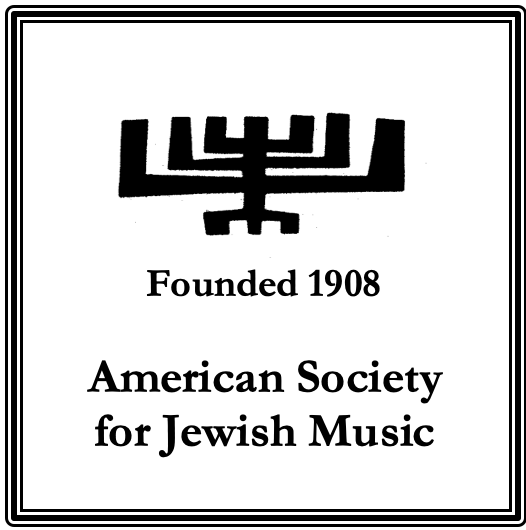
lecture
concert
The Annual Chanukah Concert: Lighting the World
Celebrating Yosl Papirovsky – The Miracle of Joseph Papp
Ever a joyous experience, with music and song, featuring Avi Hoffman; Betty Silberman; David Kener (original cast of Songs of Paradise), Sarah Cooper Gordon, Allen Lewis Rickman and Yelena Shmuelson. Join us for a fun-filled, multi-media afternoon that will thrill and delight.
Sponsored by the American Society for Jewish Music and the American Jewish Historical Society, in conjunction the Museum of Yiddish Theater, YIVO and the Manhattan Jewish Historical Initiative, this year’s Chanukah Concert is a celebration of Brooklyn-born Yosl Papirovsky (Joseph Papp 1921-1991) whose life and faith showed that miracles are not just a part of our past, but can be an ever-present part of today, and our future. In the spirit of creating light in the world, Papp brought us an enduring cultural legacy: Shakespeare in the Park, the Public Theater, and his own rediscovery of the joy of Yiddish.
Joe Papp’s story is a special one – a modern miracle. The concert will celebrate his Jewish life and career and will honor the founders of the Joseph Papp Yiddish Theatre: Gail Merrifield Papp, Rena Berkowitz Borow, and Professor Miriam Hoffman.
Ticket Info: $18 general; $12 AJHS/ASJM/CJH members; $9 seniors, students at bpt.me/3671934 or 800-838-3006
Presented by:


concert
art workshop for adults
Spread the Light - the Menorah in Cut Paper
Artist Deborah Ugoretz returns for a new papercut program: designs for the hanukkiah or the Biblical menorah. Includes viewing of hanukkiot from Yeshiva University Museum’s collection.
Ticket Info: $12 general, $10 YUM/CJH/Partner members, YU students, faculty, staff at hanukkahcuts.bpt.me or 800-838-3006
Presented by:

art workshop for adults
jewish genealogical society programs at cjh
Mismatched Mishpocha: Strategies to Analyze Endogamous DNA
This lecture will discuss how best to weed out false-positive DNA matches that Jewish DNA test-takers face daily. Alec will outline the data that demonstrates the unique ways in which endogamous populations match each other. Then, by using visualization tools such as DNA Painter, he will illustrate webs of interrelationships and identify genetic pile-up regions (or multiple shared autosomal DNA segments stacked up on top of each other) that may not indicate shared ancestors. Although there is no surefire method as of yet to remove false matches, by having a more thorough understanding of endogamous results, we can better analyze our match data.
About the Speaker:
Alec Ferretti is a Dual Masters Student at New York University and Long Island University, where he is pursuing degrees in Archival Studies and Library Science. He works as a genealogist with the Wells Fargo Family and Business History Center, specializing in Italian and Jewish research. He is President of the NY Genealogy & Technology Group, and recently joined the Board of Directors of Reclaim the Records.
Ticket Info: $5 at the door; free for JGS members
Presented by:
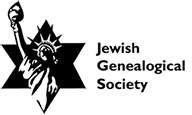
jewish genealogical society programs at cjh
celebration
International Nash-Didan (Judeo-Aramaic) Day
The first of its kind to take place outside of Israel, an evening featuring an international team of scholars exploring the history, culture, language, and traditions of the Nash Didan, the Aramaic speaking Jewish communities of Iraq, Iran, Turkey and Azerbaijan.
Ticket Info: $15 general; $25 VIP at bpt.me/4333902 or 800-838-3006
Presented by:
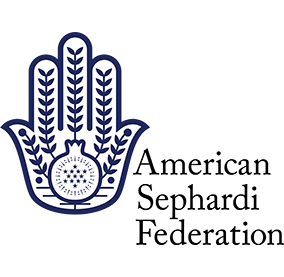
celebration
concert
Dedications: Trios by Tchaikovsky and Rachmaninoff
Phoenix Chamber Ensemble performs Rachmaninoff’s Trio élégiaque No.2 in D minor, Op.9 (in memory of Tchaikovsky), and Tchaikovsky’s Trio in A minor, Op.50 (in memory of Nikolai Rubinstein). Pianists Vassa Shevel and Inessa Zaretsky are joined by Annaliesa Place - violin and Serafim Smigelskiy – cello in a concert of the great Russian Trios.
Made possible by Stravinsky Institute Foundation through the generous support of Blavatnik Family Foundation.
Ticket Info: $15 general; $12 seniors; $10 CJH/Partner members, students at dedications.bpt.me or 800-838-3006
Presented by:

concert
family history today: genealogy programs at the center
Personal Archiving 101 - Preserving your Digital Memories
VHS? Floppy disks? Vacation photographs? Everyone has digital materials that hold personal meaning and tell stories about their lives. Join archivist Maggie Schreiner for a personal digital archiving workshop and learn how to care for and preserve your digital memories! Master the basics of digitizing and caring for your collections of documents, photos, and audiovisual materials. Learn about file formats and storage, straightforward tools and techniques, and common risks and dangers (and how to avoid them!).
An ASL interpreter may be made available if requested in advance.
This program is supported, in part, by public funds from the New York City Department of Cultural Affairs in partnership with the City Council.
About the Speaker:
Maggie Schreiner is the Manager of Archives and Special Collections at the Brooklyn Historical Society. She has previously held positions at New York University and the Queens Memory program at Queens Library, where she first began teaching about personal digital archiving. Maggie holds an MA in Archives and Public History from New York University.
Ticket Info: $10 general; $5 CJH/Partner members, seniors, students at archiving.bpt.me or 800-838-3006
Presented by:

family history today: genealogy programs at the center
panel discussion
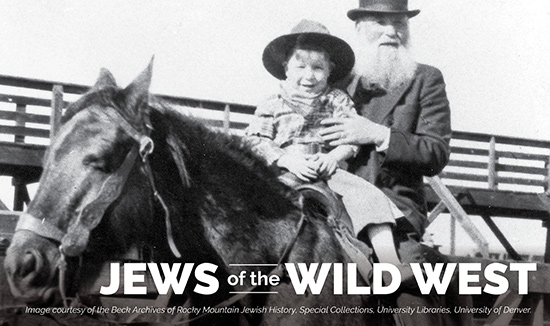
Soon to be a feature length documentary
PLEASE NOTE: This is not a film screening.
Western Jewish pioneers are a largely forgotten chapter in U.S. history. And yet, they played a definitive and often colorful role shaping the expansion of the United States. There were nationally known names such as Levi Strauss, Samsonite founder Jesse Shwayder and the Guggenheim family, who built their great fortunes through grit and determination in California and Colorado. And there were also lesser-known characters such as Solomon Carvalho, a Sephardic painter and photographer who spent the mid-1800s documenting the territories of Kansas, Colorado and Utah. Wyatt Earp’s wife, Josephine Marcus Earp, was a Jewish dancer whose beauty is rumored to have triggered the fight at the OK Corral. And by the end of the 19th century nearly every notorious Wild West town, including Deadwood and Tombstone, had a Jewish mayor.
The wagon trains that moved westward with Jewish families traveled for the same reason as many settlers: opportunity. By 1912, it is estimated over 100,000 Jews had migrated to the Wild West. They put down roots and, today, many of their descendants are entrepreneurial and philanthropic leaders in the West. They epitomize the important legacy of immigration in America.
Soon to be a feature length documentary, Jews of the Wild West was partially researched in the archives of the American Jewish Historical Society. In a conversation moderated by Rabbi Joseph Black of Temple Emanuel in Denver, Amanda Kinsey speaks with Annie Polland, Executive Director of the American Jewish Historical Society and Ann Kirschner, author of Lady at the O.K. Corral: The True Story of Josephine Marcus Earp.
About the Speakers:
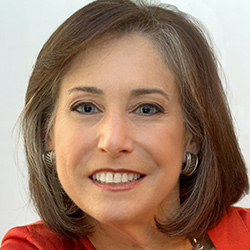 Ann Kirschner is a distinguished writer, educator, entrepreneur, and strategic advisor.
Ann Kirschner is a distinguished writer, educator, entrepreneur, and strategic advisor.
Her writings include the award-winning book Sala’s Gift, the story of her mother’s wartime rescue of letters from Nazi labor camps. Sala’s Gift has been published in German, Polish, Italian, French, Czech, and Chinese, and is the subject of an international traveling exhibit, a theatrical play that has been performed at over 113 schools and theatres, and a forthcoming documentary film.
Her most recent book is Lady at the OK Corral: the True Story of Josephine Marcus Earp, the definitive biography of Josephine Marcus Earp, a Jewish woman from New York who became the common-law wife of famed lawman and gambler Wyatt Earp. Hailed as “scrumptious” by USA Today, and “splendid” by the Wall Street Journal, Lady at the OK Corral is a spirited and colorful tale of ambition, adventure, self-invention, and romance reflective of America itself, from the post-Civil War years to World War II.
Ann Kirschner herself covers a lot of territory, from the classroom to the boardroom. She is Dean Emerita of Macaulay Honors College, a remarkable success story in public higher education, and University Professor at the City University of New York. A former senior executive of five start-ups including nfl.com, she serves on the board of directors of several companies and nonprofit organizations, including Princeton University, the Movado Group, Strategic Cyber Ventures, Footsteps, and the Paul and Daisy Soros Foundation.
She is a graduate of Princeton University, where she earned a PhD. She received a BA from University of Buffalo and an MA from University of Virginia.
Ann Kirschner lives in New York with her husband, Dr. Harold Weinberg, and is the mother of three grown children – and a grandmother of two.
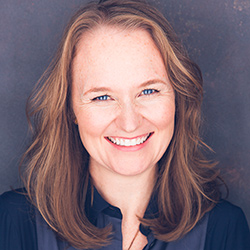 "Jews of the Wild West" is a feature length documentary currently in production. The independent film is produced by Electric Yolk Media and directed by award-winning filmmaker Amanda Kinsey. Through on-camera interviews, archival footage and images, the film will preserve this dynamic chapter of Jewish history and the role it played in shaping the United States. The hope is to also shed a positive light on the importance of immigrants in forming America as we know it. The film is expected to be completed in 2020.
"Jews of the Wild West" is a feature length documentary currently in production. The independent film is produced by Electric Yolk Media and directed by award-winning filmmaker Amanda Kinsey. Through on-camera interviews, archival footage and images, the film will preserve this dynamic chapter of Jewish history and the role it played in shaping the United States. The hope is to also shed a positive light on the importance of immigrants in forming America as we know it. The film is expected to be completed in 2020.
Amanda is an independent filmmaker, five-time Emmy Award winning producer and fourth-generation photojournalist. Prior to founding her own production company Electric Yolk Media in 2013, she spent over a decade writing and producing for NBC News. During that time, she was also awarded with several Edward R. Murrow Awards, National Headliner Awards and a Gracie Allen Award.
In 2010, Amanda won an Emmy for her Today Show story “The Fighting Grossmans” about a Jewish American family with eight soldier sons in WWII. Her most recent productions are an hour long documentary for PBS’s “Treasures of New York” and a docuseries for VICE Sports. She is a graduate of both Barnard College and Columbia Business School.
Amanda recently relocated from Brooklyn to Denver with her family. Her passion for the Wild West is personal. Amanda's grandmother was born in Denver and once jumped out of an airplane for $100, her great-grandparents ran a photography studio in Butte, Montana at the turn of the 19th Century and her great-great-grandfather owned a San Francisco saloon during the California Gold Rush.
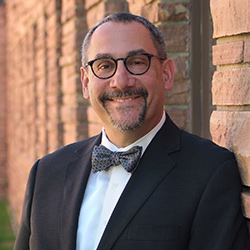 A nationally recognized musician, writer, and poet, Joseph Black (moderator) has served as Senior Rabbi of Temple Emanuel in Denver, CO since July 2010. Before moving to Denver, he served in Albuquerque, New Mexico and Minneapolis, Minnesota. He received his Rabbinic Ordination from Cincinati’s Hebrew Union College - Jewish Institute of Religion (HUC-JIR) in 1987 and in 2012 he received an honorary Doctorate of Divinity from HUC-JIR. Rabbi Black serves as a Chaplain in the Colorado House of Representatives and is Past President of the Rocky Mountain Rabbinical Council. A frequent contributor to anthologies and collections of Jewish writing, Rabbi Black has also recorded five critically-acclaimed albums of Jewish music, a songbook, and two videos. Two of his songs, Boker Tov and The Afikoman Mambo, have been made into children’s books and distributed by the PJ Library. Rabbi Black and his wife Sue have two children: Elana and Ethan.
A nationally recognized musician, writer, and poet, Joseph Black (moderator) has served as Senior Rabbi of Temple Emanuel in Denver, CO since July 2010. Before moving to Denver, he served in Albuquerque, New Mexico and Minneapolis, Minnesota. He received his Rabbinic Ordination from Cincinati’s Hebrew Union College - Jewish Institute of Religion (HUC-JIR) in 1987 and in 2012 he received an honorary Doctorate of Divinity from HUC-JIR. Rabbi Black serves as a Chaplain in the Colorado House of Representatives and is Past President of the Rocky Mountain Rabbinical Council. A frequent contributor to anthologies and collections of Jewish writing, Rabbi Black has also recorded five critically-acclaimed albums of Jewish music, a songbook, and two videos. Two of his songs, Boker Tov and The Afikoman Mambo, have been made into children’s books and distributed by the PJ Library. Rabbi Black and his wife Sue have two children: Elana and Ethan.
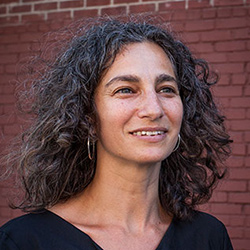 Dr. Annie Polland is a public historian, author, and Executive Director of the American Jewish Historical Society. Previously, she served as the Vice President for Programs & Education at the Lower East Side Tenement Museum, where she oversaw exhibits and interpretation. She is the co-author, with Daniel Soyer, of Emerging Metropolis: New York Jews in the Age of Immigration, winner of the 2012 National Jewish Book Award. She received her Ph.D. in History from Columbia University, and served as Vice President of Education at the Museum at Eldridge Street, where she wrote Landmark of the Spirit (Yale University). Polland has taught at New York University and serves as an educator for the Bronfman Fellowship. She grew up in Milwaukee, WI and lives in Brooklyn with her husband and daughter.
Dr. Annie Polland is a public historian, author, and Executive Director of the American Jewish Historical Society. Previously, she served as the Vice President for Programs & Education at the Lower East Side Tenement Museum, where she oversaw exhibits and interpretation. She is the co-author, with Daniel Soyer, of Emerging Metropolis: New York Jews in the Age of Immigration, winner of the 2012 National Jewish Book Award. She received her Ph.D. in History from Columbia University, and served as Vice President of Education at the Museum at Eldridge Street, where she wrote Landmark of the Spirit (Yale University). Polland has taught at New York University and serves as an educator for the Bronfman Fellowship. She grew up in Milwaukee, WI and lives in Brooklyn with her husband and daughter.
Ticket Info: $15 general; $12 seniors; $10 CJH/Partner members, students at jewsofwildwest.bpt.me or 800-838-3006; $18 at the door
Presented by:


panel discussion
lecture
Emancipation, Then and Now
For all their unquestionable importance, the Holocaust and the founding of the State of Israel now loom so large in modern Jewish history that we have mostly lost sight of the fact that they are only part of—and indeed reactions to—the central event of that history: emancipation. In his new book and in this lecture, David Sorkin (Yale) seeks to reorient Jewish history by offering the first comprehensive account in any language of the process by which Jews became citizens with civil and political rights in the modern world. Ranging from the mid-sixteenth century to the beginning of the twenty-first, Jewish Emancipation tells the ongoing story of how Jews have gained, kept, lost, and recovered rights in Europe, North Africa, the Middle East, the United States, and Israel.
This is the 62nd Leo Baeck Memorial Lecture, which is endowed by Marianne C. Dreyfus and Family, the descendants of Rabbi Leo Baeck.
Ticket Info: Free; reservations required at emancipation.bpt.me or 800-8383-3006
Presented by:

lecture
concert
The Israeli Songbook: Ofra, Izhar, Gali & Co - Celebrating Yemenite Singers
Elad Kabilio and the MusicTalks ensemble featuring Ariella Edvy celebrate the music of Yemenite Israeli singers including Ofra Haza, Izhar Cohen and Gali Atari.
Ticket Info: $15 general; $10 YUM, ASF members, YU students, faculty, staff at musictalksdecember.bpt.me or 800-838-3006
Presented by:


concert
conference
The End of Jewish Communal Life in the Arab Lands
Scholars, students, and performers from Israel, the US, and Canada will explore the history and culture of the Jews from Islamic lands, their displacement, and resettlement in Israel and elsewhere.
Ticket Info: $10 general, $30 VIP at bpt.me/4333895 or 800-838-3006
Presented by:

conference
book talk
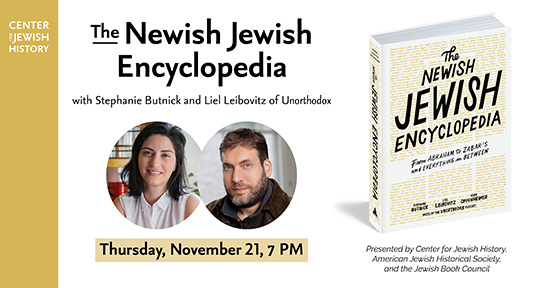
Deeply knowing, highly entertaining, and just a little bit irreverent, The Newish Jewish Encyclopedia is an unputdownable encyclopedia of all things Jewish and Jew-ish covering culture, religion, history, habits, language, and more. Readers will refresh their knowledge of the Patriarchs and Matriarchs, the artistry of Barbra Streisand, the significance of the Oslo Accords, the meaning of words like balaboosta,balagan, bashert, and bageling. Understand all the major and minor holidays. Learn how the Jews invented Hollywood. Remind themselves why they need to read Hannah Arendt, watch Seinfeld, listen to Leonard Cohen. Even discover the secret of happiness (see "Latkes"). Join two of the authors, Stephanie Butnick and Liel Leibovitz, for the newish-Jewish story behind this concise compendium. Reception and book signing follow the program.
About the Speakers:
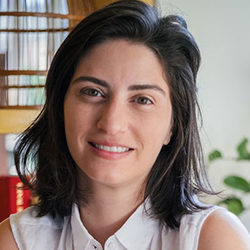 Stephanie Butnick is the deputy editor of Tablet and has written for the New York Times and the Wall Street Journal. She has a bachelor’s degree in religion from Duke and a master’s in religious studies from NYU. She lives in New York with her husband and their cat, Cat Stevens.
Stephanie Butnick is the deputy editor of Tablet and has written for the New York Times and the Wall Street Journal. She has a bachelor’s degree in religion from Duke and a master’s in religious studies from NYU. She lives in New York with her husband and their cat, Cat Stevens.
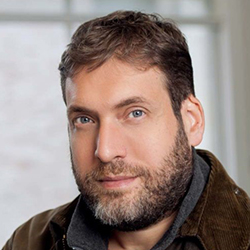 Liel Leibovitz is a senior writer for Tablet and the author of several books, including, most recently, A Broken Hallelujah, a spiritual biography of Leonard Cohen. He has a PhD in video games from Columbia, a fact that makes his seven-year-old self very happy. He lives in New York with his wife and their two children.
Liel Leibovitz is a senior writer for Tablet and the author of several books, including, most recently, A Broken Hallelujah, a spiritual biography of Leonard Cohen. He has a PhD in video games from Columbia, a fact that makes his seven-year-old self very happy. He lives in New York with his wife and their two children.
Ticket Info: $15 general; $12 seniors; $10 CJH/Partner members, students at encyclopedia.bpt.me or 800-838-3006; $18 at the door
Presented by:




book talk
film screening
The Righteous Gypsy
Directed by Jakov & Dominik Sedlar and Pravednica Ciganka, this 2016 short film tells the story of the only Gypsy woman honored by Israel as a "Righteous amongst the Nations."
Please note: This film will also be screened at 8:00pm.
Ticket Info: $10 general at bpt.me/4333932 or 800-838-3006
Presented by:

film screening
discussion
POSTPONED: Rembrandt’s Legacy: A Personal Conversation
Please note: This event has been postponed.
Commemorating the 350th anniversary of Rembrandt’s death, Rabbi Meir Soloveichik and Thomas Kaplan, philanthropist and private collector of the Dutch master’s works, discuss Rembrandt’s legacy.
Presented by:

discussion
film screening
The Righteous Gypsy
Directed by Jakov & Dominik Sedlar and Pravednica Ciganka, this 2016 short film tells the story of the only Gypsy woman honored by Israel as a "Righteous amongst the Nations."
Ticket Info: $10 general at bpt.me/4333932 or 800-838-3006
Presented by:

film screening
conference
Philistines - Rehabilitating a Biblical Foe
Drawing on recent archaeological, textual, and scientific research, an international group of scholars will challenge the common misconception that the biblical Philistines were . . . philistine.
Ticket Info: Free; reservations required at philistine.bpt.me or 800-838-3006
Presented by:

conference
walking tour
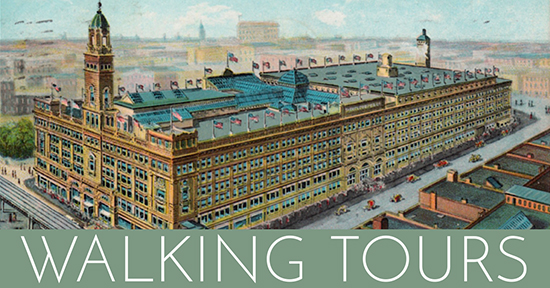
PLEASE NOTE: This event has been cancelled: Soap Box Walks: Art & Politics
This installment of Soapbox Walks features Professor Daniel Soyer on politics and art on Union Square, from the International Ladies Garment Workers Union, the Rand School and Fourteenth Street School of Art. This program is made possible through The National Endowment for the Humanities.
Presented by:

walking tour
panel discussion
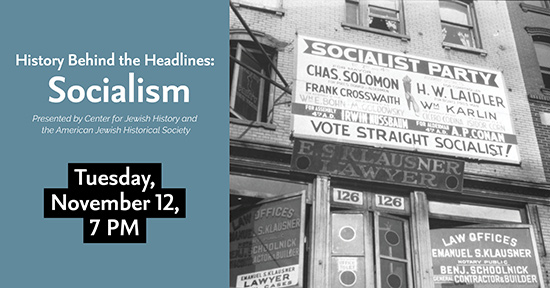
Embraced by some, deplored by others, misunderstood by many, socialism is back and it’s a hot topic in presidential politics. With younger voters increasingly supporting socialism, the growing movement is changing the national conversation and potentially, the Democratic party. But when a recent Gallup poll asked Americans what socialism actually is, answers varied wildly. Columbia Journalism School Director of Academic Affairs, and former Editor-in-Chief of The Forward Jane Eisner sits down with an all-star panel to discuss socialism today, its complicated past, and how New York’s predominantly Jewish socialist movement paved the way for change a century ago. She is joined by University of Wisconsin-Madison Professor of American Jewish History, Tony Michels; Washington Post columnist, Catherine Rampell; New York Post columnist, Karol Markowicz; and former Deputy Director of the Democratic Socialists of America, David Duhalde.
As we approach the 2020 presidential election, History Behind the Headlines: Socialism is the first in a series of programs designed to look at today’s political issues against the backdrop of history.
About the Speakers:
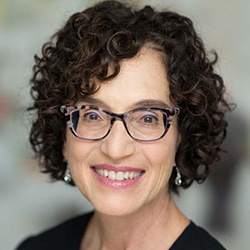 Journalist, educator, non-profit leader and public speaker, Jane Eisner (moderator) is currently director of academic affairs at the Graduate School of Journalism at Columbia University, overseeing the Masters of Arts program. For more than a decade, she was The Forward’s editor-in-chief, and the first woman to hold the position at America’s foremost national Jewish news organization. Under her leadership, the publication dramatically expanded its digital reach and won numerous regional and national awards. Eisner is known for her interviews of notable figures including President Barack Obama, Justice Ruth Bader Ginsburg, and Prime Minister Benjamin Netanyahu and her editorials have been repeatedly honored by the Society of Professional Journalists and other media groups.
Journalist, educator, non-profit leader and public speaker, Jane Eisner (moderator) is currently director of academic affairs at the Graduate School of Journalism at Columbia University, overseeing the Masters of Arts program. For more than a decade, she was The Forward’s editor-in-chief, and the first woman to hold the position at America’s foremost national Jewish news organization. Under her leadership, the publication dramatically expanded its digital reach and won numerous regional and national awards. Eisner is known for her interviews of notable figures including President Barack Obama, Justice Ruth Bader Ginsburg, and Prime Minister Benjamin Netanyahu and her editorials have been repeatedly honored by the Society of Professional Journalists and other media groups.
Prior to her work at The Forward, Eisner held executive editorial and news positions at The Philadelphia Inquirer for 25 years. She served as vice president of the National Constitution Center from 2006 to 2008, and has taught at Wesleyan University and the University of Pennsylvania, where she is a senior fellow at Penn’s Program for Research and Religion in Urban Civil Society. Eisner frequently contributes to The Washington Post, the Los Angeles Times, TIME, NPR, and other major news outlets, and is the author of Taking Back the Vote: Getting American Youth Involved in Our Democracy, (Beacon Press, 2004). A graduate of Wesleyan University and Columbia Journalism School, Eisner lives in New York City with her husband, Dr. Mark Berger.
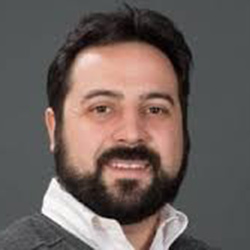 David Duhalde is a NYC-based political and socialist activist. He holds a bachelor’s degree in political science and East Asian studies from Bowdoin College and masters degrees in public policy and nonprofit business administration from The Heller School at Brandeis University. He currently serves on the Democratic Socialists of America Fund board, a c3 sister educational nonprofit to the membership-based Democratic Socialists of America (DSA). Duhalde has previously held roles at Our Revolution, the Bernie Sanders-inspired grassroots organization, and deputy director of DSA.
David Duhalde is a NYC-based political and socialist activist. He holds a bachelor’s degree in political science and East Asian studies from Bowdoin College and masters degrees in public policy and nonprofit business administration from The Heller School at Brandeis University. He currently serves on the Democratic Socialists of America Fund board, a c3 sister educational nonprofit to the membership-based Democratic Socialists of America (DSA). Duhalde has previously held roles at Our Revolution, the Bernie Sanders-inspired grassroots organization, and deputy director of DSA.
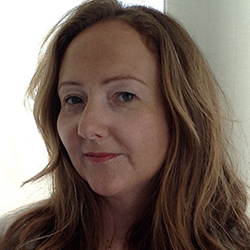 Karol Markowicz is a weekly columnist at the New York Post. She has also contributed to USA Today, Time, Washington Examiner, Jewish Forward, National Review, Daily Beast, Business Insider, Haaretz, US Spectator and many others. Karol was born in the Soviet Union and grew up in Brooklyn where she still lives with her husband and three children.
Karol Markowicz is a weekly columnist at the New York Post. She has also contributed to USA Today, Time, Washington Examiner, Jewish Forward, National Review, Daily Beast, Business Insider, Haaretz, US Spectator and many others. Karol was born in the Soviet Union and grew up in Brooklyn where she still lives with her husband and three children.
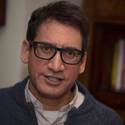 Tony Michels is the George L. Mosse Professor of American Jewish History and Director of the Mosse/Weinstein Center for Jewish Studies at the University of Wisconsin. His research and teaching interests include American Jewish history, Yiddish culture, Russian Jewish history, socialism, working-class history, and nationalism. He is the editor of Jewish Radicals: A Documentary History (New York Univ. Press) and co-editor of The Cambridge History of Judaism. Volume Eight: The Modern World, 1815-2000 (Cambridge Univ. Press). Professor Michels’ first book, A Fire in Their Hearts: Yiddish Socialists in New York (Harvard Univ. Press), won the Salo Baron Prize from the American Academy for Jewish Research. His articles have appeared in The Forward, Jacobin, Jewish Currents, Guilt & Pleasure Quarterly, and other publications.
Tony Michels is the George L. Mosse Professor of American Jewish History and Director of the Mosse/Weinstein Center for Jewish Studies at the University of Wisconsin. His research and teaching interests include American Jewish history, Yiddish culture, Russian Jewish history, socialism, working-class history, and nationalism. He is the editor of Jewish Radicals: A Documentary History (New York Univ. Press) and co-editor of The Cambridge History of Judaism. Volume Eight: The Modern World, 1815-2000 (Cambridge Univ. Press). Professor Michels’ first book, A Fire in Their Hearts: Yiddish Socialists in New York (Harvard Univ. Press), won the Salo Baron Prize from the American Academy for Jewish Research. His articles have appeared in The Forward, Jacobin, Jewish Currents, Guilt & Pleasure Quarterly, and other publications.
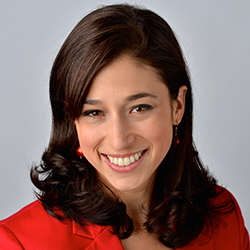 Catherine Rampell writes a twice-weekly syndicated opinion column for The Washington Post. She is a politics and economics commentator for CNN and a special correspondent for PBS Newshour’s Making Sen$e series. She frequently covers economics, public policy, politics, and culture, with a special emphasis on data-driven journalism. Catherine previously worked at The New York Times as an economics reporter, founding editor of the award-winning Economix blog, and columnist for the New York Times Magazine’s “It’s the Economy” column. She also moonlit as a theater critic for the Times, reviewing Off-Broadway and Off-Off-Broadway plays. She is a regular guest on Marketplace and has appeared on many other radio and TV shows. Catherine received the Weidenbaum Center Award for Evidence-Based Journalism and is a four-time Gerald Loeb Award finalist. She grew up in Florida and graduated Phi Beta Kappa from Princeton.
Catherine Rampell writes a twice-weekly syndicated opinion column for The Washington Post. She is a politics and economics commentator for CNN and a special correspondent for PBS Newshour’s Making Sen$e series. She frequently covers economics, public policy, politics, and culture, with a special emphasis on data-driven journalism. Catherine previously worked at The New York Times as an economics reporter, founding editor of the award-winning Economix blog, and columnist for the New York Times Magazine’s “It’s the Economy” column. She also moonlit as a theater critic for the Times, reviewing Off-Broadway and Off-Off-Broadway plays. She is a regular guest on Marketplace and has appeared on many other radio and TV shows. Catherine received the Weidenbaum Center Award for Evidence-Based Journalism and is a four-time Gerald Loeb Award finalist. She grew up in Florida and graduated Phi Beta Kappa from Princeton.
Ticket Info: $18 general; $15 seniors; $12 CJH/Partner members, students at socialism.bpt.me or 800-838-3006; $20 at the door
Presented by:



panel discussion
family program
Prose & Pose: Circle the Square
A part of our new family program series, families will work together to discover the untold stories of Union Square through this activity-based walking tour!
Ticket Info: $10 per family at bpt.me/4309884 or 800-838-3006
Presented by:

family program
book talk
Antisemitism and the Russian Revolution
When the Bolsheviks came to power in 1917, they announced the overthrow of a world scarred by exploitation and domination. In the very moment of revolution, these sentiments were put to the test as antisemitic pogroms swept the former Pale of Settlement. The pogroms posed fundamental questions of the Bolshevik project, revealing the depth of antisemitism within sections of the working class, peasantry and Red Army.
Brendan McGeever’s new book Antisemitism and the Russian Revolution offers the first book-length analysis of the Bolshevik response to antisemitism. Contrary to existing understandings, it reveals this campaign to have been led not by the Party leadership, as is often assumed, but by a loosely connected group of radicals who mobilized around a Jewish political subjectivity. By examining pogroms committed by the Red Army, McGeever also reveals the explosive overlap between revolutionary politics and antisemitism, and the capacity for class to become racialized in a moment of crisis.
Join YIVO for a presentation on this new book by Brendan McGeever. The evening will include an introduction by Jack Jacobs, and be capped off with a panel discussion with McGeever, Jacobs, Andrew Sloin, Polly Zavadivker, and YIVO’s Jonathan Brent.
Ticket Info: Free; reservations at yivo.org/Antisemitism-and-the-Russian-Revolution or 917-606-8290
Presented by:

book talk
conversation
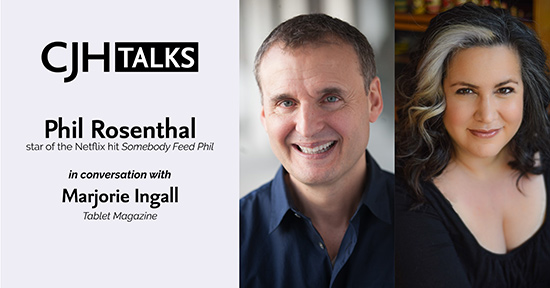
Everyone knows Phil Rosenthal loves to eat. The star of the hit series, Somebody Feed Phil, and co-creator of Everybody Loves Raymond, travels the world to taste the best local cuisine. So, what will we feed Phil at the Center for Jewish History? With hundreds of vintage Jewish cookbooks here in the archives, we have a few recipes in mind. (Crisco Recipes for the Jewish Housewife, anyone?) Tablet’s Marjorie Ingall joins Phil for a mouthwatering conversation about his fabulous food forays, his German-Jewish family, and the two key ingredients in his phenomenal show-biz success.
Bonus! Phil loves Russ & Daughters and we do too. See the American Jewish Historical Society's fabulous new exhibit about this iconic eatery before or after CJHTalks!
About the Speakers:
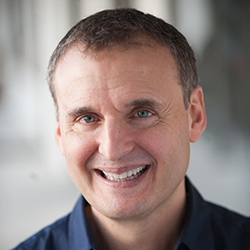 Phil Rosenthal is the creator and host of “Somebody Feed Phil,” an Emmy Award nominated series on Netflix that combines Phil’s love of food and travel with his unique brand of humor. The son of Holocaust survivors, Phil was born in Queens, New York and grew up in New City, New York. After graduating from Hofstra University on Long Island, where he majored in theater, he embarked on a career as an actor, writer and director in New York City. In 1989, he relocated to Los Angeles and in 1995, he and Ray Romano created the hit CBS comedy, “Everybody Loves Raymond,” which aired from 1996-2005. The program was nominated for over 70 Emmy awards, and won 15 awards, including 2 for Best Comedy Series in 2003 and 2005.
Phil Rosenthal is the creator and host of “Somebody Feed Phil,” an Emmy Award nominated series on Netflix that combines Phil’s love of food and travel with his unique brand of humor. The son of Holocaust survivors, Phil was born in Queens, New York and grew up in New City, New York. After graduating from Hofstra University on Long Island, where he majored in theater, he embarked on a career as an actor, writer and director in New York City. In 1989, he relocated to Los Angeles and in 1995, he and Ray Romano created the hit CBS comedy, “Everybody Loves Raymond,” which aired from 1996-2005. The program was nominated for over 70 Emmy awards, and won 15 awards, including 2 for Best Comedy Series in 2003 and 2005.
The author of You’re Lucky You’re Funny: How Life Becomes a Sitcom, Phil also co-wrote “America: A Tribute to Heroes,” the 9/11 telethon which aired in September 2001, for which he won a Peabody Award and an Emmy nomination for Outstanding Writing. In April 2011, Rosenthal wrote, directed and starred in his first feature film, "Exporting Raymond,” the true story about the attempt to turn "Everybody Loves Raymond" into a Russian sitcom
Among his numerous awards and nominations, Phil also received the 2016 James Beard Award for Best Television Program, on Location for his first travel food series, “I’ll have What Phil’s Having.” He lives in Los Angeles, with his wife, actress Monica Horan (who played Amy on “Everybody Loves Raymond”), and their two children.
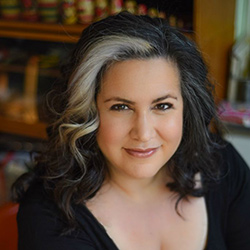 Marjorie Ingall is a columnist for Tablet Magazine and the author of Mamaleh Knows Best: What Jewish Mothers Do to Raise Successful, Creative, Empathetic, Independent Children. She often writes about children’s books for the New York Times Book Review, and has written for many other magazines and newspapers, including Self (where she was a contributing writer), Glamour (where she was a contributing editor), The Jewish Forward (where for seven biblical years she was the “East Village Mamele”), New York, Ms., Food & Wine, and the late, lamented Sassy (where she was the senior writer and books editor). She has consulted for Scholastic, Nickelodeon, MTV Books, and The Exploratorium Museum; she's also been a ghostwriter. For a short while she was a news and talk show writer/producer for the Oxygen TV network, where she learned that her perkiness levels were not up to a job in daytime television. She lives in NYC's East Village with her husband Jonathan Steuer, two daughters, and two extremely vocal cats.
Marjorie Ingall is a columnist for Tablet Magazine and the author of Mamaleh Knows Best: What Jewish Mothers Do to Raise Successful, Creative, Empathetic, Independent Children. She often writes about children’s books for the New York Times Book Review, and has written for many other magazines and newspapers, including Self (where she was a contributing writer), Glamour (where she was a contributing editor), The Jewish Forward (where for seven biblical years she was the “East Village Mamele”), New York, Ms., Food & Wine, and the late, lamented Sassy (where she was the senior writer and books editor). She has consulted for Scholastic, Nickelodeon, MTV Books, and The Exploratorium Museum; she's also been a ghostwriter. For a short while she was a news and talk show writer/producer for the Oxygen TV network, where she learned that her perkiness levels were not up to a job in daytime television. She lives in NYC's East Village with her husband Jonathan Steuer, two daughters, and two extremely vocal cats.
Arrangements for the appearance of Phil Rosenthal made through Greater Talent Network, LLC., New York, NY
Ticket Info: Holiday Sale: $18 tickets while supplies last
$20 general at rosenthal.bpt.me or 800-838-3006; $25 at the door
Presented by:





conversation
walking tour

Soap Box Walks: African American History
This installment of Soapbox Walks features Professor Leslie Harrisand illuminates how African American history and US history intersected on Union Square, from Civil War demonstrations, Frederick Douglass’s 1878 Memorial Day Speech, and early 20th century socialism. This program is made possible through The National Endowment for the Humanities.
Ticket Info: $20 general, $15 CJH/Partner members, seniors, students at soapboxwalks.bpt.me or 800-838-3006
Presented by:

walking tour
celebration
The 10th Annual SIGD Celebration 2019
Join us for NY’s only Sigd celebration, featuring celebratory meals, traditional Ethiopian music, dancing, and crafts in commemoration of the Ethiopian Jewish community’s commitment to the Torah. Since 2008, Sigd is observed as a national holiday in Israel.
Ticket Info: $45 general; weekend pass $75, $85 VIP at sigd2019.bpt.me or 800-838-3006
Presented by:

celebration
shabbat dinner
The 10th Annual SIGD Celebration: Traditional Kosher Ethiopian Shabbat Dinner
Ticket Info: $45 general; weekend pass $75, $85 VIP at sigd2019.bpt.me or 800-838-3006
Presented by:

shabbat dinner
concert
The Places of Israel – in Song
Elad Kabilio and the MusicTalks ensemble embark on a musical journey across Israel’s diverse sites with a concert of music inspired by the landscapes of Israel.
Ticket Info: $15 general; $10 YUM members & YU students, faculty, staff at musictalksplaces.bpt.me or 800-838-3006
Presented by:

concert
family history today
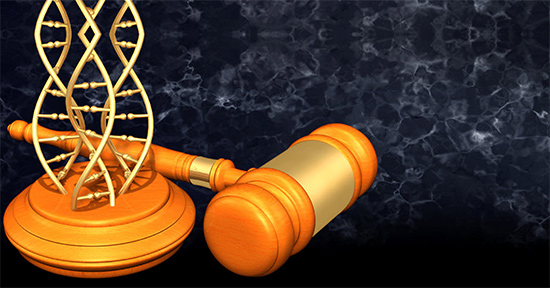
DNA and the Golden Rule – The Law and Ethics of Genetic Genealogy
Whose permission is needed to test a child or an adult unable to consent? Who owns our DNA? What can we disclose about a cousin who has tested? The rules of the road for the ethical challenges facing genealogists interested in using DNA evidence as part of their family history research. Learn how applying the Golden Rule can guide us through many if not most of the situations in which we as genetic genealogists find ourselves.
About the Speaker: The Legal Genealogist Judy G. Russell is a genealogist with a law degree who writes and lectures on topics ranging from using court records in family history to understanding DNA testing. On the faculty of numerous genealogy institutes, she is a member of the Board of Trustees of the Board for Certification of Genealogists, from which she holds credentials as a Certified Genealogist® and Certified Genealogical Lecturer?. Her award-winning blog is at http://www.legalgenealogist.com.
An ASL interpreter may be made available if requested in advance.
Ticket Info: $10 general; $5 CJH/Partner members, seniors, students at geneticgenealogy.bpt.me or 800-838-3006
Presented by:

family history today
film
Who Will Write Our History
With a wealth of archival footage and detailed re-enactments, this film recounts the incredible story of Emanuel Ringelblum, who secretly led a team of writers and intellectuals to preserve a vibrant Jewish culture in the Warsaw Ghetto shortly after the Nazis took over. What resulted was a startlingly deep and diverse portrait of European Jewish life, as the Oyneg Shabes Archive made an invaluable contribution to the historical record. Based on the book by Samuel Kassow. An Abramorama release.
96 minutes. In English, Yiddish, and Polish with English subtitles.
Ticket Info: $15 general; $10 YIVO members, students at yivo.org/WWWOH-Screening or 917-606-8290
Presented by:

film
lecture
The Wedding Photo: Genealogy Comes Alive!
Contrary to dusty first impressions, genealogy can be an adventure. In Dan Oren's book, The Wedding Photo, a visit to an abandoned Polish Jewish cemetery in 1993 launches a 20-year search to solve the mystery of "Who is Buried in Sarah's Tomb?" A visit with a cousin unearths a breathtaking photo of a Berlin family wedding from 1926 and leads to discovering their unimaginable post-wedding history. An archivist in Prague discovers a secret uncle whose life takes the reader from the Metropolitan Museum of Art in New York to the Vatican in Rome. A memoir by Philip Roth shocks a daughter into unlocking a father's concealed past. In this talk, Dr. Oren will share his genealogical research strategies.
Born and raised in Milwaukee, Wisconsin, Dan A. Oren, M.D. has worked for thirty years as a psychiatrist and faculty member at Yale Universtiy, the US National Institute of Mental Health, and the Univesity of Rzeszow, Poland. The author of Joining the Club: A History of Jews and Yale, he is the founder and president of the Friends of Jewish Heritage in Poland.
Ticket Info: $5 general at weddingphoto.bpt.me or 800-838-3006; free for CJH/JGS members (tickets not required)
Presented by:


lecture
book talk
Tehran Children: A Holocaust Refugee Odyssey
Join Mikhal Dekel in conversation with Natalia Aleksiun about a family story that complicates our understanding of refuge, displacement, new homes, and the unexpected fate of child refugees.
Tehran Children: A Holocaust Refugee Odyssey tracks the fates of those Polish Jews who during WWII were "saved by deportation.” It follows them alongside other Polish nationals from their Polish hometowns, into the Soviet interior, Central Asia, Iran, India and Mandatory Palestine. Dekel travels these paths of escape, refuge, exile and new home, probing archives and people - from Polish nationalists to Russian oligarchs to Korean Uzbeks - and painting a dynamic, situational history of Jews and Catholics, refugees and evacuees, natives and newcomers, the millions and the one - her father - a former child refugee. Tehran Children is also a history of the present: of ways in which complex pasts have been obliterated from but nonetheless have bled into present-day Poland, Russia, Uzbekistan, Iran, and Israel, of the limited frameworks at our disposal for understanding these pasts and of the possibility of expansion
A reception and book signing will follow the program.
This event is co-sponsored by the CCNY Foundations.
About the Speakers:
Mikhal Dekel is Professor of English and Comparative Literature at City College and the CUNY Graduate Center and Director of the Rifkind Center for Humanities and the Arts She is the author of The Universal Jew: Masculinity, Modernity and the Zionist Moment and Oedipus in Kishinev.
Natalia Aleksiun is Professor of Modern Jewish History at Touro College, Graduate School of Jewish Studies, New York. She is the author of Where to? The Zionist Movement in Poland, 1944-1950 and Conscious History: Polish Jewish Historians before the Holocaust.
Ticket Info: $10 general; $7 seniors; $5 CJH/Partner members; free for students at tehranchildren.bpt.me or 800-838-3006
Presented by:

book talk
walking tour

Sold out: Soapbox Walks: Jewish Radicals
Tony Michels traces how the Yiddish socialist movement influenced NY politics and culture. Co-sponsored by Jewish Currents.
This series pairs a wonderful roster of scholars to co-lead tours with AJHS ED Annie Polland.
The Soapbox Walks Series has been made possible in part by a major grant from the National Endowment for the Humanities: Exploring the Human Endeavor.
Ticket Info: This event is sold out.
Presented by:

walking tour
film and discussion
Joseph Pulitzer: Voice of the People
Join AJHS and CJH for a film screening followed by a conversation with Director Oren Rudavsky about the fascinating life and legacy of Joseph Pulitzer.
Joseph Pulitzer: Voice of the People explores the remarkable man behind the prestigious prizes. A Jewish immigrant from Hungary, Joseph Pulitzer began as a gifted journalist before becoming a successful publisher and businessman. Pulitzer was famous in his own time for his outspoken and cantankerous editorial voice and his newspapers’ striking illustrations, visual style, national circulation and financial success. Against the context of America’s explosive growth as a world force during the Gilded Age, Pulitzer emerges as the country’s first media titan, reshaping the newspaper to bear witness to and even propel that transformation. Joseph Pulitzer championed what he regarded as the sacred role of the free press in a democracy.
Narrated by Adam Driver, the documentary tells the story of Pulitzer’s life and accomplishments through a combination of archival footage, reenactments and interviews with authors, journalists and scholars. Liev Schreiber is the voice of Pulitzer, Tim Blake Nelson is the voice of Roosevelt and Rachel Brosnahan is the voice of investigative journalist Nellie Bly.
Ticket Info: $15 general; $12 CJH/Partner members, seniors, students; $20 at the door at bpt.me/4309891 or 800-838-3006
Presented by:


film and discussion
lecture
North African French Resistance:A Well Kept Secret
The Vichy Regime, the Allies, and the Camps
by Dr. Nicole Cohen-Addad
They were hundreds, they were a thousand. French citizenship had been confiscated from most through discriminatory Vichy laws. Nevertheless, they fought as “patriots,” neutralizing the Vichy forces and paving the way for American and the British landings on the coasts of Morocco and Algeria in 1942, the first successful Allied landings on Axis soil. This was a major turning point in the Second World War. And, then, inexplicably, they were sent to camps in North Africa. Join us as we explore this little-known aspect of World War II history.
Dr. Nicole Cohen-Addad has been building an array of oral archives over since 2002, with various actors and witnesses of this very special time around 8 November 1942. The video interviews are readily available for viewing on the website of the US Holocaust Memorial Museum under her name.
Ticket Info: $15 general at bpt.me/4330256 or 800-838-3006
Presented by:

lecture
walking tour

Sold out: Soapbox Walks: Overlooked Landmarks
This installment, featuring professor of historic preservation Andrew Dolkart, explores the architecture and development of the surrounding neighborhood.
This series pairs a wonderful roster of scholars to co-lead tours with AJHS ED Annie Polland.
The Soapbox Walks Series has been made possible in part by a major grant from the National Endowment for the Humanities: Exploring the Human Endeavor.
Ticket Info: This event is sold out.
Presented by:

walking tour
exhibit opening
Nosotros 3.0: Strengthening Bonds Between Jewish and Latino Communities
The Philos Project and the American Sephardi Federation cordially invite you to the third edition of our Latin American classic art exhibit: Nosotros 2019.
This year’s exhibit explores the justice of Zionism through the lens of Jewish and Latino national liberation struggles for independence from European colonialism. A new collection of art pieces will be revealed, including pieces from master artists Norma Lithgow and Deyvi Pérez. It will be a night of celebration of the shared history and culture of the Jewish and Latin communities.
Light refreshments will be served
Ticket Info: $15 at /nosotros.bpt.me/
Presented by:

exhibit opening
exhibit opening
The Art of Exile: Paintings by German-Jewish Refugees
Opening celebration for this exhibition that tells the personal stories of artists uprooted from their homelands, whose work is linked by a sense of loss and displacement.
Ticket Info: Free; reservations at art-exile.bpt.me or 800-838-3006
Presented by:

exhibit opening
concert
All in the Family: Songs and Trios by the Schumanns and the Mendelssohns
On September 26, the Phoenix Chamber Ensemble (Vassa Shevel and Inessa Zaretsky, pianists) will celebrate the 200th anniversary of Clara Schumann's birth by joining with Anna Elashvili (violin), Andrew Janss (cello) and Pavel Sulyandziga (tenor) to present an evening of Songs and Trios from Clara and Robert Schumann and Fanny and Felix Mendelssohn.
Robert Schumann: selection of songs from Dichterliebe (A Poets Love)
Clara Schumann: Piano Trio in G Minor, Op.17
Fanny Mendelssohn: selection of songs
Felix Mendelssohn: Piano Trio in D Minor, Op.49
Made possible by Stravinsky Institute Foundation through the generous support of Blavatnik Family Foundation.
Ticket Info: $15 general; $12 seniors; $10 CJH/Partner members, students at allinthefamily.bpt.me or 800-838-3006
Presented by:

concert
lecture
A Jewish King of Poland for One Night: On the Polish-Jewish Royal Dynasty that Never Was
In 2014, in an official visit to Poland, Israeli President Reuven Rivlin shared a curious personal anecdote: that he was the heir of the Polish throne. According to a family tradition, one of his ancestors, Saul Wahl, was elected King of Poland for one night.
Rivlin’s speech is just one example of an oft-repeated legend, which has persisted since the 18th century among the descendants of Saul Wahl (d. 1617). Most scholarship has focused on locating a “grain of truth” in the legend, but,historians have established that Wahl was never appointed king.
Ofer Dynes examines how this legend has informed the perspectives of those who considered themselves part of this Polish-Jewish royal dynasty. What, for example, can we glean from the legend’s political insights? How did Jews make sense of their place in the Polish political landscape? How did they imagine the possibilities and complexities of a Jew becoming the king of Poland? Second, on the basis of archival evidence, Dynes will reconstruct what the legend meant for Saul Wahl’s descendants, the prominent Katzenellenbogen rabbinic family, who considered themselves claimants for the Polish throne. Finally, Dynes will explore what it means – for both Poland and Israel – that the current Israeli President considers himself as a legitimate heir of a Polish royal dynasty.
Ticket Info: Free; reservations required at yivo.org/Jewish-King or 917-606-8290
Presented by:

lecture
concert
A Tribute to Oded Halahmy and the Music of Babylon
Elad Kabilio and MusicTalks offer a vibrant musical tribute to the work and spirit of artist Oded Halahmy, celebrating the launch of a catalogue of YUM’s Hey, Wow! exhibition.
Ticket Info: $15 general; $10 YUM/ASF members & YU students, faculty, staff at odedconcert.bpt.me or 800-838-3006
Presented by:


concert
book talk
Anneliese Landau’s Life in Music: Nazi Germany to Émigré California, with Dr. Lily E. Hirsch
The subject of her new book, Lily E. Hirsch introduces us to a woman who truly persisted. Anneliese Landau pushed past bias to earn a PhD in musicology in 1930. She then lectured on early German radio, breaking new ground in a developing medium. After the Nazis forced the firing of all Jews in broadcasting in early 1933, Landau worked in the Berlin Jewish Culture League (Jüdischer Kulturbund), a closed cultural organization created by and for Jews in negotiation with Hitler's regime. Although Rabbi Leo Baeck tried to help Landau’s parents leave Germany, in 1939, she would emigrate alone, the fate of her family members tied separately to the Kindertransport and to the Terezín concentration camp.
Landau settled in Los Angeles, assuming duties as music director of the Jewish Centers Association in 1944. In this role and those that came before, she knew and worked with many significant historical figures, among them Arnold Schoenberg, Bruno Walter, and Leo Baeck.
Anneliese Landau's Life in Music offers fresh perspective on the Nazi period in Germany as well as on music in southern California, impacted as it was by the many notable émigrés from German-speaking lands who settled in the area. Landau's story is ultimately one of stubborn survival: an account of one woman's confrontation with other people's expectations of her, as a woman and a Jew.
Ticket Info: Free; RSVP at jewishmusicforum.org or 800-838-3006
Presented by:

book talk
walking tour

Sold out: Soapbox Walks: Firebrand Women
Lara Vapnek features the powerful women speakers--Elizabeth Gurley Flynn, Harriet Stanton Blatch, Emma Goldman--who captured audiences atop the soapboxes of Union Square.
This series pairs a wonderful roster of scholars to co-lead tours with AJHS ED Annie Polland.
The Soapbox Walks Series has been made possible in part by a major grant from the National Endowment for the Humanities: Exploring the Human Endeavor.
Ticket Info: This event is sold out.
Presented by:

walking tour
walking tour
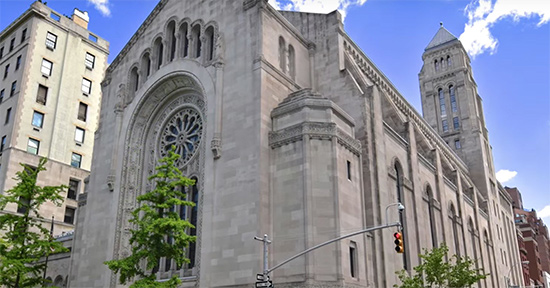
Sold out: Jews on the Upper East Side Walking Tour
Jews have been a presence on the Upper East Side (UES) since the Gilded Age of the late 19th century, when the Guggenheims, Schiffs, and Warburgs built urban mansions along the “Gold Coast” of 5th Avenue. Set against the rich array of architecture, galleries, museums, and parks that distinguish the UES, this tour will explore the history of the neighborhood’s Jewry, discussing patterns of settlement, prominent Jewish residents, and Jewish contributions to commerce and art. Visits to active synagogues, including the Manhattan Sephardic Congregation and Temple Emanu-El, will offer insights into the historic and continued diversity of Jewish life in the neighborhood.
About the Tour Guide: Barry Feldman is a licensed New York City tour guide and a senior docent and educator in residence at the Museum on Eldridge Street. While Barry lives on the UES, his interest in urban history, architecture, and Jewish ethnography take him to all neighborhoods of the city
Location and other details: This tour will begin at the Manhattan Sephardic Congregation (325 East 75th Street). Please plan to arrive at 10:45 AM to check in. We will not wait more than a few minutes for late arrivals. This tour will take place rain or shine. Please dress modestly and bring water, hat/sunglasses, and sunscreen. Note: Some tour stops are not wheelchair accessible.
Ticket Info: This event is sold out.
Presented by:


walking tour
commemoration
Nusakh Vilne Memorial
Join us for our annual event commemorating the Jewish community of Vilna through poetry, music, and presentation including readings and performances by Rivka Augenfeld, Michael Fox, Ellen Perecman, Ruth Baran-Gerold, and Mikhl Baran. Chaired by Elliot Palevsky, the program will include a presentation on YIVO’s forthcoming YIVO Bruce and Francesca Cernia Slovin Online Museum by YIVO’s Executive Director Jonathan Brent and the museum's Chief Curator, Karolina Ziulkoski. The presentation will showcase material from YIVO’s Edward Blank YIVO Vilna Online Collections project, including newly discovered material and the story of Bebe Epstein.
A reception will follow the presentations.
Ticket Info: Free; reservations at yivo.org/NusakhVilne2019 or 917-606-8290
Presented by:

commemoration
talk
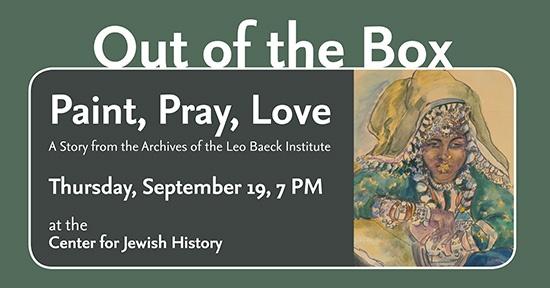
Known for her paintings of erotic female nudes, Lene Schneider-Kainer divorced her husband in 1926 and set off on an artistic odyssey across Asia. Retracing Marco Polo’s journey, the intrepid artist travelled from opium dens in Isfahan to Buddhist temples in the Himalayas and from brothels in Agra to the Peking Opera.
When she died, Schneider-Kainer left her travel diary, photographs, scrapbooks, and over 100 watercolors and sketches to the Leo Baeck Institute. Archivist Michael Simonson takes these rarely seen treasures Out of the Box and reveals the enchanting art and surprising story of a German-Jewish artist who defied the male art world and broke the boundaries set for women in her time.
Come early or stay late to see paintings by 11 other artists forced by the Nazi regime to leave Germany and Austria (as Schneider-Kainer would be, as well) on display in the Katherine and Clifford H. Goldsmith Gallery as part of LBI’s current exhibition, The Art of Exile: Paintings by German-Jewish Refugees.
About the Series
At the Center for Jewish History, there are tens of thousands of boxes in our partners’ archival collections. Boxes filled with photographs, journals, letters, and documents. Boxes filled with stories. We take these treasures Out of the Box in our new series. Join us!
About the Speaker:
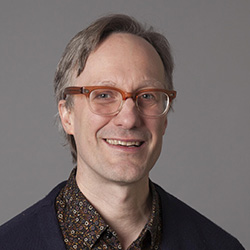 Archivist and Director of Public Outreach at the Leo Baeck Institute, Michael Simonson discovered the story of Lene Schneider-Kainer when he was asked to translate her diary from German to English for greater research use. Drawn to her creativity and independence, Michael also began to explore a broader story of how Europeans, especially European Jews, viewed the Middle East and Asia in the 19th and early 20th century. Originally from Minnesota, Michael studied German history and German language before attending Pratt Institute for archival studies. A former President of the Archivist Roundtable of Metropolitan New York, Michael has worked at LBI for the last seventeen years.
Archivist and Director of Public Outreach at the Leo Baeck Institute, Michael Simonson discovered the story of Lene Schneider-Kainer when he was asked to translate her diary from German to English for greater research use. Drawn to her creativity and independence, Michael also began to explore a broader story of how Europeans, especially European Jews, viewed the Middle East and Asia in the 19th and early 20th century. Originally from Minnesota, Michael studied German history and German language before attending Pratt Institute for archival studies. A former President of the Archivist Roundtable of Metropolitan New York, Michael has worked at LBI for the last seventeen years.
Ticket Info: $10 general; $7 seniors; $5 CJH/Partner members, students at paintpraylove.bpt.me or 800-838-3006
Presented by:


talk
book talk
Kugel and Frijoles: Latino Jews in the United States
How do Latino Jews identify? Can they choose their identity or is it assigned to them? What is it like to be both Latino and Jewish in the United States? Join author Laura Limonic in conversation with Eric Lach of The New Yorker about her fascinating book.
Laura Limonic analyzes the changing construction of race and ethnicity in the United States through the lens of contemporary Jewish immigrants from Latin America. Not easily classifiable in U.S. society, Latino Jews challenge racial and ethnic categories on many levels. Limonic introduces the stories of Latino Jewish immigrants offering new insight with which to understand the diversity of Latinos, the incorporation of contemporary Jewish immigrants, and the effect of ethnicity and race on immigrant assimilation in the United States.
A reception and book signing will follow the program.
About the Speakers:
Laura Limonic is an Assistant Professor of Sociology at the College of Old Westbury of the State University of New York. Her research is in the area of contemporary immigration to the United States and the integration trajectories of ethnic and ethno-religious groups. Her work has been supported by the Berman Foundation, the Association for Jewish Studies and the Templeton Trust. In addition to academic research, Laura has an extensive background in public policy research and advocacy.
Eric Lach writes for The New Yorker, where he covers politics. He previously served as the deputy news editor of newyorker.com.
Ticket Info: $10 general; $7 seniors; $5 CJH/Partner members; free for students at latinojews.bpt.me or 800-838-3006
Presented by:

book talk
book talk
Harold Poor, Kurt Tucholsky, and the Ordeal of Germany
Harold L. Poor’s biography of Kurt Tucholsky is the most important and thorough work on the famed German-Jewish author in English: a still unmatched labor of love by the Rutgers history professor. For this book—originally published as Kurt Tucholsky and the Ordeal of Germany 1914–1935 in 1968, Poor spent years of research. He also visited Tucholsky’s widow Mary Gerold in her home in Rottach-Egern in Germany and unearthed letters, pictures, and other previously unknown materials. The result was an an entertaining and well-written gem that has finally been rediscovered—it is available in a new editionfrom the Berlin/New York-based Berlinica Publishing.
Harold Poor was born in 1935 in Missouri, grew up in Birmingham, Alabama, and attended Harvard College. He held a Ph.D. in German and European history at Columbia University. In 1966, he became a professor at the Rutgers College History Department as one of the most gifted and charismatic teachers. He also was the co-author of a music drama Tickles by Tucholsky, which was first produced at Brandeis University and then Off Broadway at Theater Four in 1976. Poor died on January 24, 1992 in New York City.
Eva Schweitzer, the principal of Berlinica Publishing, will discuss Tucholsky's role in Weimar-era letters and politics. Atina Grossmann (Cooper Union) will comment on how Poor's work fits in the historiography of Germany in the late 1960's and early 1970s, when a fascination with the cultural and intellectual life of the Weimar Republic produced influential works like Peter Gay's Weimar Culture: The Outsider as Insider. Among those scholars, Poor was an outsider himself—neither Jewish, nor a refugee, but an American from the South.
Ticket Info: $10 general; $5 LBI/CJH/Partner members, seniors, students at tucholsky.bpt.me or 800-838-3006
Presented by:

book talk
panel discussion
Bundism’s Influence Today
Today we are witnessing a revival of the ideas of the Jewish Labor Bund, an organization which had been a powerful force in Russian and Polish Jewish communities during the first half of the 20th century. The Bund focused on doikayt (“hereness”), libertarian socialism, and support for secular Jewish culture and the Yiddish language. The activity of those with this new interest, sometimes called "neo-Bundism," alongside those with unbroken links to prewar Bundists, has led to a new visibility of interest in Bundist ideas in both political and cultural circles. And because Bundism offers an alternate historical vision of Jewish identity to Zionism, this development is sometimes a controversial one.
This panel, made up of activists and cultural workers ranging in age from their 20s to their 80s, will discuss what they see in Bundist ideas, and how it affects their current political and cultural practices. Jack Jacobs, a historian of the Bund, will introduce the evening with brief overview of the history of the Bund and its major political tenets and then will moderate a discussion with Molly Crabapple, Irena Klepfisz, Jenny Romaine, and Jacob Plitman, looking at how Bundist ideas are influencing the Jewish community today.
Ticket Info: Free; reservations at yivo.org/Dinezon or 917-606-8290
Presented by:

panel discussion
lecture
Searching for Paterson Roots Remembered and Forgotten in Heritage Tourism Abroad
The extended Walkowitz family arrived in Paterson from Lodz, Poland as early as 1910. It was a Jewish World of Yiddishkeit in which Daniel Walkowitz was raised. As a radical student activist in the late 1950s and 1960s, he imagined himself walking in the footsteps of his Paterson grandparents who fought to improve the living and working conditions in the Lodz and Paterson mills. Professor Walkowitz will recount the genealogical and archival research that allowed him to uncover the stories of this past in the US and in Eastern and Central Europe where he seeks to see and hear what of these roots appear in walking tours, Jewish museums and memorial sites. Illustrated with slides, the lecture will illustrate the disappointments and surprises that frame the robust and changing terrain of Jewish heritage tourism today.
Daniel Walkowitz, Emeritus Professor of Social and Cultural Analysis and Professor of History at NYU, has specialized in labor history, urban history and public history. In nearly a dozen books, many articles and four films for public television, he has worked to bring America's past to both academic and broad public audiences.In 2010 he published Rethinking U.S. Labor History, co-edited with Donna Haverty-Stacke, a collection of new work on work and labor published to mark the 25th anniversary of his 1984 collection (edited with Michael Frisch), Working-Class-America. His most recent work includes a monograph, The Remembered and Forgotten Jewish World: Jewish Heritage in Europe and the United States (Rutgers, 2018).
Ticket Info: $5 at the door; free for JGS members
Presented by:

lecture
exhibit opening
Sold out: Russ & Daughters, An Appetizing Story
Join AJHS for an appetizing evening of stories and noshes as we celebrate the opening of our new exhibition Russ & Daughters: An Appetizing Story. Hannah Goldfield, food critic for The New Yorker,will interview two generations of the Russ family.
Ticket Info: This event is sold out.
Presented by:

exhibit opening
book talk
The World of Aufbau: Hitler’s refugees in America
Aufbau—a German-language weekly published in New York and circulated worldwide—was an essential platform for the generation of refugees from Hitler and the displaced people and concentration camp survivors who arrived in the United States after the war. The publication served to link thousands of readers looking for friends and loved ones in every part of the world. In its pages Aufbau focused on concerns that strongly impacted this community in the aftermath of World War II: antisemitism in the United States and in Europe, the ever-changing immigration and naturalization procedures, debates about the designation of Hitler refugees as enemy aliens, questions about punishment for the Holocaust and other Nazi crimes, the struggle for compensation and restitution, and the fight for a Jewish homeland.
Author Peter Schrag is the first to present a definitive account of the influential publication that brought postwar refugees together and into the American mainstream. Schrag's new study, The World of Aufbau: Hitler's Refugees in America, examines the columns and advertisements that chronicled the social and cultural life of that generation and maintained a detailed account of German-speaking cultures in exile.
About the Speakers:
Peter Schrag is a writer, educator, and former Guggenheim Fellow based in Davis, California. He is a refugee from Nazi Germany and has written extensively about the history and conflicts over American immigration.
Commentator Shira Kohn is a member of the Upper School History Faculty at The Dalton School. She received her doctorate in history and Hebrew & Judaic Studies from New York University and is currently working on a monograph focusing on Jewish college sororities and civil rights in postwar America. She, along with Hasia Diner and Rachel Kranson, co-edited A Jewish Feminine Mystique? Jewish Women in Postwar America (Rutgers University Press, 2010) and recently published an article on German-Jewish student refugees in 1930s America.
Ticket Info: $10 general; $5 LBI/CJH/Partner members, seniors, students at aufbau.bpt.me or 800-838-3006
Presented by:

book talk
lecture
Desire, Envy & the Jewish-Christian Borderzone
Are the borders and boundaries between religions any more secure than those between nations? Working with major Jewish modernist writers such as Sholem Asch and Henry Roth, Maeera Shreiber (University of Utah) questions and examines our assumptions about religious differences and explores the high-voltage emotional consequences of trafficking in that volatile space of interfaith encounters she calls the Jewish-Christian Borderzone.
Ticket Info: $5 general; free for students at shreiber.bpt.me or 800-838-3006
Presented by:

lecture
workshop
New Year’s Cards in the Style of Illuminated Hebrew Manuscripts
Join artist Deborah Ugoretz in a hands-on workshop incorporating techniques of medieval illuminated manuscripts to create 2019 Rosh Hashanah greeting cards (ages 12 to adult).
Ticket Info: $10 general; $8 YUM/CJH/Partner members, YU faculty/staff at illuminate.bpt.me or 800-838-3006
Presented by:

workshop
conversation
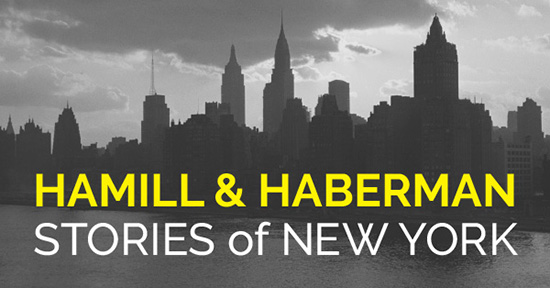
Growing up in Brooklyn, legendary journalist Pete Hamill was an altar boy in church and helped out a rabbi on Saturdays in a nearby synagogue. “He tried to teach me Yiddish,” Hamill remembers, “and I did my little part trying to explain to him that the Cincinnati Reds were not Socialists. They were a baseball team.” The experience shaped a credo the renowned reporter and best-selling novelist lives and writes by. “New York City,” Hamill says, “is the capital of people who are not like you. Absorb as much as you can.”
In a career spanning six decades, Pete Hamill has absorbed his city, written its stories, and imagined still more in his eleven novels. On September 8th at 3 pm at the Center for Jewish History, the celebrated storyteller sits down with another notable New Yorker and his former New York Post colleague: Bronx native and acclaimed New York Times reporter Clyde Haberman. Both sons of immigrants, Hamill and Haberman will talk about the Irish and Jewish neighborhoods they came from, the immigrant experience then and now, the tabloid that launched their careers, and the ever-changing city that continues to inspire.
Program will be followed by a reception.
About the Speakers:
 A journalist, novelist, essayist, editor and educator, as well as a cartoonist and artist, Pete Hamill was born in Brooklyn, New York, in 1935. The first of seven children of Catholic immigrants from Belfast, Hamill left school at 16 to work in the Brooklyn Navy Yard, and completed his high school education while serving in the Navy. He studied painting and writing in college on the GI Bill and joined the New York Post as a reporter in 1960. His newspaper career spanned decades and included positions at the Post, the New York Daily News, the Village Voice, and New York Newsday. He was also editor of the Post, and editor-in-chief of the New York Daily News and wrote longer pieces for New York magazine, the New Yorker, Esquire, Playboy, Rolling Stone, and other periodicals. The author of both nonfiction and fiction, Hamill has written eleven novels, including the national bestseller Snow in August; a story about the unlikely friendship between a young Irish Catholic boy and an elderly Jewish rabbi in Brooklyn. He is the recipient of numerous awards, among them the Columbia Journalism Award for Lifetime Achievement, the George Polk Career Award, and the Irish American Writers & Artists Eugene O’Neill Lifetime Achievement Award.
A journalist, novelist, essayist, editor and educator, as well as a cartoonist and artist, Pete Hamill was born in Brooklyn, New York, in 1935. The first of seven children of Catholic immigrants from Belfast, Hamill left school at 16 to work in the Brooklyn Navy Yard, and completed his high school education while serving in the Navy. He studied painting and writing in college on the GI Bill and joined the New York Post as a reporter in 1960. His newspaper career spanned decades and included positions at the Post, the New York Daily News, the Village Voice, and New York Newsday. He was also editor of the Post, and editor-in-chief of the New York Daily News and wrote longer pieces for New York magazine, the New Yorker, Esquire, Playboy, Rolling Stone, and other periodicals. The author of both nonfiction and fiction, Hamill has written eleven novels, including the national bestseller Snow in August; a story about the unlikely friendship between a young Irish Catholic boy and an elderly Jewish rabbi in Brooklyn. He is the recipient of numerous awards, among them the Columbia Journalism Award for Lifetime Achievement, the George Polk Career Award, and the Irish American Writers & Artists Eugene O’Neill Lifetime Achievement Award.
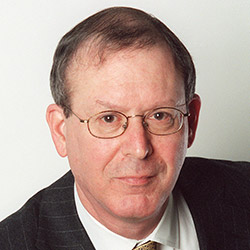 Clyde Haberman first worked at The New York Times as a copy boy in 1964, then as a campus correspondent at City College of New York. In 1966, he began reporting for the New York Post, ultimately returning to the Times in 1977 as an editor in the Week in Review section. He went on to become a Metro reporter, City Hall Bureau chief and, from 1982 to 1995, a foreign correspondent based successively in Tokyo, Rome and Jerusalem. Returning home, he wrote NYC, his twice-a-week column on New York, from 1995 to 2011. In 2009, he was part of a Times team that won the Pulitzer Prize for Breaking News, awarded for coverage of the prostitution scandal that led to Gov. Eliot Spitzer's resignation. Since 2014 he written a regular Times column accompanying Retro Report, a series of video documentaries exploring major news stories of the past and their continuing resonance. Haberman is the writer and editor of The Times of the Seventies: The Culture, Politics, and Personalities That Shape the Decade published in 2013 by Black Dog & Leventhal. Among other journalistic honors, he was inducted into the New York Press Club's Hall of Fame in 2015.
Clyde Haberman first worked at The New York Times as a copy boy in 1964, then as a campus correspondent at City College of New York. In 1966, he began reporting for the New York Post, ultimately returning to the Times in 1977 as an editor in the Week in Review section. He went on to become a Metro reporter, City Hall Bureau chief and, from 1982 to 1995, a foreign correspondent based successively in Tokyo, Rome and Jerusalem. Returning home, he wrote NYC, his twice-a-week column on New York, from 1995 to 2011. In 2009, he was part of a Times team that won the Pulitzer Prize for Breaking News, awarded for coverage of the prostitution scandal that led to Gov. Eliot Spitzer's resignation. Since 2014 he written a regular Times column accompanying Retro Report, a series of video documentaries exploring major news stories of the past and their continuing resonance. Haberman is the writer and editor of The Times of the Seventies: The Culture, Politics, and Personalities That Shape the Decade published in 2013 by Black Dog & Leventhal. Among other journalistic honors, he was inducted into the New York Press Club's Hall of Fame in 2015.
Ticket Info: This event is sold out.
Presented by:


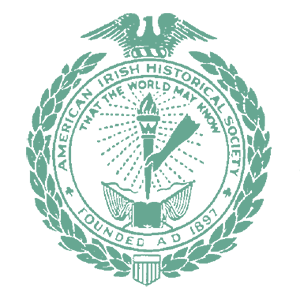
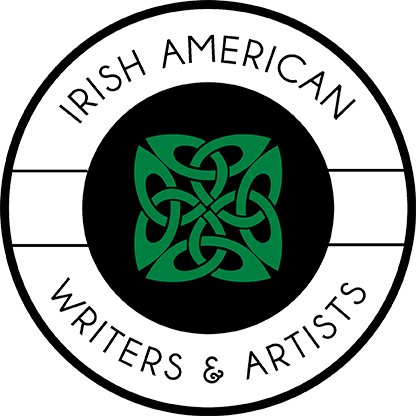

conversation
panel discussion
The Challenges of Multiculturalism in Contemporary Lithuania
Under the auspices of Litvak Days NYC, a celebration of Lithuanian Jewish heritage, Professor Tomas Venclova (Yale University, Emeritus) will give a presentation titled, "Lithuanians and Jews: What’s Changed and What Hasn’t over the last Forty Years?” Professor Venclova will then be joined by Jonathan Brent (Executive Director of YIVO), Professor Saulius Sužiedelis (Millersville University, Emeritus) and Rabbi Andrew Baker (American Jewish Committee, Director of International Jewish Affairs) for a discussion about the challenges of rebuilding a multicultural society in Lithuania in the Post-Soviet era including the difficulties of confronting the complexities of Lithuanian Jewish history, and taking lessons from it for today.
Ticket Info: Free; reservations at yivo.org/LitvakDays2019 or 917-606-8290
Presented by:

panel discussion
lecture
The Greatest Yiddish Writer You’ve Never Heard of: Yankev Dinezon
The 19th-century author Jacob Dinezon, as well-known in his day as his close friends I. L. Peretz and Sholem Aleichem, wrote the first bestselling novel in Yiddish. His heartrending works vividly portrayed difficult issues confronting Jewish communities in the Russian Empire: arranged marriages, rigid gender roles, corporal punishment in childhood education, and assimilation. His poignant and realistic depictions of the effects of modernity on traditional Jewish life elicited copious tears from his devoted readers.
Yet, as popular as Dinezon was during his lifetime, by the turn of the 21st century, he had essentially been forgotten. Not one of his major works had been translated into English. That all changed in 2003, when Scott Hilton Davis, who was teaching teenagers in a religious-school classroom, rediscovered this once-beloved Yiddish author. Today, English versions of Dinezon’s three most popular novels, a collection of short stories, a literary biography, and an extensive website (www.jacobdinezon.com) provide readers and researchers with opportunities to encounter Dinezon’s significant contributions to Jewish literature.
In this image-filled presentation commemorating the 100th anniversary of Jacob Dinezon’s passing, Davis, an Emmy Award-winning filmmaker, author, and publisher, will share his 16-year journey to uncover the facts about Jacob Dinezon’s life and literary career and his ongoing efforts to restore this revered Jewish author to his rightful place in Yiddish literature.
Also participating in the commemoration of Jacob Dinezon’s 100th yortsayt will be Tina Lunson, the English translator of Dinezon’s Der shvartser yungermantshik and Zichroynes un bilder, and the noted Yiddishist and teacher Sheva Zucker.
Ticket Info: $10 general; $5 YIVO members, students at yivo.org/Dinezon or 917-606-8290
Presented by:

lecture
family history today: genealogy programs at the center
Sold out: Researching your Ancestral Town
Are you interested in learning more about the day-to-day lives of your ancestors? Find out how you can investigate the history and culture of the Jewish community in your ancestral town(s) at the Center for Jewish History and beyond. Presented by Moriah Amit, the Center’s Senior Genealogy Reference Librarian. An ASL interpreter may be made available if requested in advance.
Ticket Info: This event is sold out.
Presented by:


family history today: genealogy programs at the center
film premiere and discussion
Eleanor Roosevelt and the Jewish Refugees She Saved: The Story of the S. S. Quanza
In August of 1940, a ship called the S.S. Quanza left the port of Lisbon carrying several hundred Jewish refugees -- most of whom held Sousa Mendes visas -- to freedom. But events went terribly wrong, and the passengers became trapped on the ship because no country would take them in. The new documentary Nobody Wants Us (Laura Seltzer-Duny, 2019) tells the gripping true story of how Eleanor Roosevelt herself stepped in to save the passengers on board because of her moral conviction that they were not “undesirables” (as the US State Department labeled them) but rather were “future patriotic Americans.”This is an episode in American history that everyone needs to know. The film, which is 35 minutes in length, will be followed by a panel discussion featuring Blanche Wiesen Cook, the leading world expert on Eleanor Roosevelt and the author of her three-volume biography; Michael Dobbs of the United States Holocaust Memorial Museum and author of The Unwanted (2019), and other experts and eyewitnesses, including a passenger who was on the ship in 1940.
Ticket Info: $20 general; $120 sponsorship ticket including VIP lunch at storyofthessquanza.bpt.me or 800-838-3006
Presented by:


film premiere and discussion
walking tour

Sold out: Happy Birthday, Emma Lazarus
Enjoy a festive evening stroll in honor of Emma Lazarus’s 170th birthday! Born on July 22, 1849, Lazarus is best known for writing The New Colossus, the poem emblazoned on the pedestal of the Statue of Liberty. Friend to Ralph Waldo Emerson, cousin of Supreme Court Justice Benjamin Cardozo, Emma Lazarus grew up in a prominent Sephardic-Jewish family, was educated by private tutors, and called Union Square home. Our twilight tour will pass by the gorgeous brownstone home where she wrote her most famous poem, the art studios and publication houses of her literary friends, and the almost-hidden cemetery of her family’s congregation. Along the way, Annie Polland, Executive Director of the American Jewish Historical Society will tell the story of this gifted and fascinating woman and the changing city that inspired and motivated her. We’ll end at the Center for Jewish History, where we’ll see Emma Lazarus’s handwritten manuscript of The New Colossus and celebrate her life with birthday cake.
Ticket Info: This event is sold out.
Presented by:


walking tour
walking tour

Sold out: Ladies Mile Walking Tour with Ephemeral New York’s Esther Crain
Our popular walking tour is back! Enjoy a storied stroll along Ladies Mile, a nine-block stretch once known for posh department stores and architectural grandeur. Join Esther Crain, writer of the award-winning Ephemeral New York blog, and author of The Gilded Age in New York, 1870-1910, as she weaves in Jewish stories and Gilded Age tales about the people and places that once populated these historic blocks.
About the Speaker:
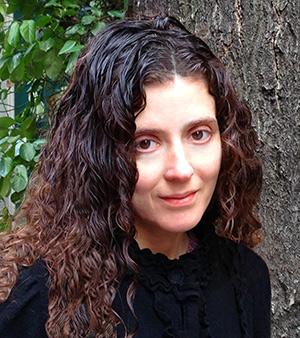 Esther Crain, a native New Yorker, is the author of The Gilded Age in New York, 1870-1910 (Hachette Books, 2016) and New York City in 3D in the Gilded Age (Black Dog and Leventhal, 2014). In 2008 she launched Ephemeral New York, a website that chronicles the city's past. Ephemeral New York has been featured in The New York Times, New York Daily News, New York Post, and other publications. She speaks regularly on topics relating to New York City history and conducts walking tours that explore New York's hidden pockets and little-known stories.
Esther Crain, a native New Yorker, is the author of The Gilded Age in New York, 1870-1910 (Hachette Books, 2016) and New York City in 3D in the Gilded Age (Black Dog and Leventhal, 2014). In 2008 she launched Ephemeral New York, a website that chronicles the city's past. Ephemeral New York has been featured in The New York Times, New York Daily News, New York Post, and other publications. She speaks regularly on topics relating to New York City history and conducts walking tours that explore New York's hidden pockets and little-known stories.
Ticket Info: This event is sold out.
Presented by:


walking tour
theatrical performance
Breach of Promise
On July 31st, YIVO will present another of its Treasures from the Archives: a rehearsed reading of Leon Kobrin’s 1912 play Breach of Promise—a tragicomic slice of tenement life in New York City.
Kobrin's play follows protagonist Katie Tsimbel—an unmarried 28-year-old—who has gotten herself “in trouble.” At her mother’s urging, she tries to force their recent-immigrant boarder--a Jewish ex-soldier in the Tsar’s army, whose fiancé is expected to arrive in America soon—to marry her by framing him with a Breach of Promise charge.
The reading will be in English, in a newly commissioned translation by director and translator Allen Lewis Rickman, and will feature a cast of professional actors.
“It’s about time Kobrin was rediscovered — he was one of the most interesting Yiddish playwrights of his time,” said Rickman. “And BREACH OF PROMISE was a play he was very proud of. It’s a story of simple immigrants trying to adjust to the realities of an alien civilization; the characters are multi-sided, the humor in the play comes out of naturalistic situations, and the whole thing feels like a snapshot of the old Lower East Side.”
Ticket Info: $15 general; $10 YIVO members, students; free for Uriel Weinreich Summer Program students at yivo.org/Breach-of-Promise
Presented by:

theatrical performance
yiddish civilization lecture series
Coming of Age: Jewish Youth in Poland between the Wars
During the 1930s, the YIVO Institute for Jewish Research organized three competitions for youth autobiographies. These extraordinary documents – more than 600 of them were submitted – are unique testimony to the hopes and dreams, as well as to the reality of those who were growing up in Poland at the time. Mayer Kirshenblatt, who was born in Opatów (Yiddish: Apt) in 1916, could well have been one of those autobiographers. Although he did not enter the competition, he did recall his youth much later during interviews recorded by his daughter during the last forty years of his life.
This illustrated lecture will relate the youth autobiographies written in real time, by youth who had no idea of what the future would hold, with Mayer’s recollections in words and paintings many years later. The talk will include a short film about Mayer’s return to his hometown and how he was received by those living there today. Finally, the talk will consider the role of the youth autobiographies and Mayer’s childhood memories in POLIN Museum’s Core Exhibition.
Delivered in English.
About the Speaker:
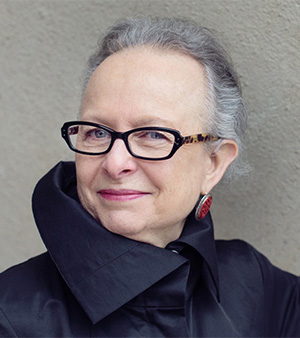 Barbara Kirshenblatt-Gimblett is Chief Curator of the Core Exhibition at POLIN Museum of the History of Polish Jews and University Professor Emerita and Professor Emerita of Performance Studies at New York University. Her books include Destination Culture: Tourism, Museums, and Heritage; Image before My Eyes: A Photographic History of Jewish Life in Poland, 1864–1939 (with Lucjan Dobroszycki); and They Called Me Mayer July: Painted Memories of a Jewish Childhood in Poland Before the Holocaust (with Mayer Kirshenblatt). She was honored for lifetime achievement by the Foundation for Jewish Culture, received the Mlotek Prize for Yiddish and Yiddish Culture, and honorary doctorates from the Jewish Theological Seminary of America, University of Haifa, and Indiana University. She was decorated with the Officer’s Cross of the Order of Merit of the Republic of Poland and was elected to the American Academy of Arts and Sciences. She serves on the Advisory Board for the Council of American Jewish Museums and is an adviser for Jewish museum and exhibition projects in Vienna, Berlin, Moscow, Jerusalem, Paris, Seduva, and Tirana.
Barbara Kirshenblatt-Gimblett is Chief Curator of the Core Exhibition at POLIN Museum of the History of Polish Jews and University Professor Emerita and Professor Emerita of Performance Studies at New York University. Her books include Destination Culture: Tourism, Museums, and Heritage; Image before My Eyes: A Photographic History of Jewish Life in Poland, 1864–1939 (with Lucjan Dobroszycki); and They Called Me Mayer July: Painted Memories of a Jewish Childhood in Poland Before the Holocaust (with Mayer Kirshenblatt). She was honored for lifetime achievement by the Foundation for Jewish Culture, received the Mlotek Prize for Yiddish and Yiddish Culture, and honorary doctorates from the Jewish Theological Seminary of America, University of Haifa, and Indiana University. She was decorated with the Officer’s Cross of the Order of Merit of the Republic of Poland and was elected to the American Academy of Arts and Sciences. She serves on the Advisory Board for the Council of American Jewish Museums and is an adviser for Jewish museum and exhibition projects in Vienna, Berlin, Moscow, Jerusalem, Paris, Seduva, and Tirana.
Ticket Info: $10 general; $5 YIVO members, students; free for Uriel Weinreich Summer Program students at yivo.org/YCLS2019-BKG
Presented by:

yiddish civilization lecture series
yiddish civilization lecture series
What Yiddish is That?
Varieties of Yiddish are distinguished – some in professional but some only in informal usage. This lecture will identify what the several terms refer to and bust some myths where the terminology is misleading.
Delivered in Yiddish.
Ticket Info: $10 general; $5 YIVO members, students; free for Uriel Weinreich Summer Program students at yivo.org/YCLS2019-Braun
Presented by:

yiddish civilization lecture series
family history today: genealogy programs at the center
"A person is only forgotten when their name is forgotten" - The German Stolpersteine
In this talk, Michael Simonson, Archivist and the Director of Public Outreach at the Leo Baeck Institute, will introduce us to the history and current practice of laying Stolpersteine (literally “stumbling stone”) memorials in Germany. Drawing on his personal experiences working with those who wish to remember former Jewish citizens, Michael will highlight the stories of some of the Jewish families being remembered, elucidate the steps he took to track down living descendants, and discuss the reactions of those in the communities where these stones have been placed. An ASL interpreter may be made available if requested in advance.
Ticket Info: $10 general; $5 CJH/Partner members, seniors, students at stolpersteine.bpt.me or 800-838-3006
Presented by:


family history today: genealogy programs at the center
yiddish civilization lecture series
Yiddish Theater in America – An Overview
This lecture will review the American Yiddish theater’s formative years, its performance style, and the intense bond between auditorium and stage.
Delivered in English.
Ticket Info: $10 general; $5 YIVO members, students; free for Uriel Weinreich Summer Program students at yivo.org/YCLS2019-Nahshon
Presented by:

yiddish civilization lecture series
walking tour

Sold out: Happy Birthday, Emma Lazarus
Enjoy a festive evening stroll in honor of Emma Lazarus’s 170th birthday! Born on July 22, 1849, Lazarus is best known for writing The New Colossus, the poem emblazoned on the pedestal of the Statue of Liberty. Friend to Ralph Waldo Emerson, cousin of Supreme Court Justice Benjamin Cardozo, Emma Lazarus grew up in a prominent Sephardic-Jewish family, was educated by private tutors, and called Union Square home. Our twilight tour will pass by the gorgeous brownstone home where she wrote her most famous poem, the art studios and publication houses of her literary friends, and the almost-hidden cemetery of her family’s congregation. Along the way, Annie Polland, Executive Director of the American Jewish Historical Society will tell the story of this gifted and fascinating woman and the changing city that inspired and motivated her. We’ll end at the Center for Jewish History, where we’ll see Emma Lazarus’s handwritten manuscript of The New Colossus and celebrate her life with birthday cake.
Ticket Info: This event is sold out.
Presented by:


walking tour
opera
The Marriage of Figaro
A comic opera composed in 1786 by Wolfgang Amadeus Mozart, with an Italian libretto by Lorenzo Da Ponte, Figaro tells how the servants Figaro and Susanna succeed in getting married, foiling the efforts of their philandering employer, Count Almaviva, to seduce Susanna and teaching him a lesson in fidelity. This world premiere production will feature the Sephardic origins of Lorenzo Da Ponte and will be directed and adapted by David Serero. Starring David Serero as Figaro.
Ticket Info: $26 general; $36 VIP seating at asffigaro.bpt.me/ or 800-838-3006
Presented by:

opera
yiddish civilization lecture series
Yiddish New York
Between the 1870s and the 1920s, perhaps a million and a half East European Jewish immigrants settled in New York City. This lecture will examine the mutual influence of New York on Yiddish and Yiddish on New York in the years around the turn of the twentieth century.
Delivered in Yiddish.
Ticket Info: $10 general; $5 YIVO members, students; free for Uriel Weinreich Summer Program students at yivo.org/YCLS2019-Soyer
Presented by:

yiddish civilization lecture series
opera
The Marriage of Figaro
A comic opera composed in 1786 by Wolfgang Amadeus Mozart, with an Italian libretto by Lorenzo Da Ponte, Figaro tells how the servants Figaro and Susanna succeed in getting married, foiling the efforts of their philandering employer, Count Almaviva, to seduce Susanna and teaching him a lesson in fidelity. This world premiere production will feature the Sephardic origins of Lorenzo Da Ponte and will be directed and adapted by David Serero. Starring David Serero as Figaro.
Ticket Info: $26 general; $36 VIP seating at asffigaro.bpt.me/ or 800-838-3006
Presented by:

opera
yiddish civilization lecture series
The Rise of Yiddish Scholarship and the History of YIVO
This talk will explore the origins of Yiddish scholarship and why YIVO's work was seen as crucial to constructing a modern Jewish identity in the Diaspora.
Delivered in English.
Ticket Info: $10 general; $5 YIVO members, students; free for Uriel Weinreich Summer Program students at yivo.org/YCLS2019-Kuznitz
Presented by:

yiddish civilization lecture series
opera
The Marriage of Figaro
A comic opera composed in 1786 by Wolfgang Amadeus Mozart, with an Italian libretto by Lorenzo Da Ponte, Figaro tells how the servants Figaro and Susanna succeed in getting married, foiling the efforts of their philandering employer, Count Almaviva, to seduce Susanna and teaching him a lesson in fidelity. This world premiere production will feature the Sephardic origins of Lorenzo Da Ponte and will be directed and adapted by David Serero. Starring David Serero as Figaro.
Ticket Info: $26 general; $36 VIP seating at asffigaro.bpt.me/ or 800-838-3006
Presented by:

opera
yiddish civilization lecture series
Myth and History in the Russian Jewish Past
The word “pogrom” has come to serve as a sturdy coda for all that transpired to the Jews of Eastern Europe and Russia at the turn of the 20th century. How consistent these assumptions are with history, how they surfaced and with such persistence and resonance and what else transpired in this culturally diverse, singularly fertile community will be the subject of this talk.
Delivered in English.
Ticket Info: $10 general; $5 YIVO members, students; free for Uriel Weinreich Summer Program students at yivo.org/YCLS2019-Zipperstein
Presented by:

yiddish civilization lecture series
opera
The Marriage of Figaro
A comic opera composed in 1786 by Wolfgang Amadeus Mozart, with an Italian libretto by Lorenzo Da Ponte, Figaro tells how the servants Figaro and Susanna succeed in getting married, foiling the efforts of their philandering employer, Count Almaviva, to seduce Susanna and teaching him a lesson in fidelity. This world premiere production will feature the Sephardic origins of Lorenzo Da Ponte and will be directed and adapted by David Serero. Starring David Serero as Figaro.
Ticket Info: $26 general; $36 VIP seating at asffigaro.bpt.me/ or 800-838-3006
Presented by:

opera
opera
The Marriage of Figaro
A comic opera composed in 1786 by Wolfgang Amadeus Mozart, with an Italian libretto by Lorenzo Da Ponte, Figaro tells how the servants Figaro and Susanna succeed in getting married, foiling the efforts of their philandering employer, Count Almaviva, to seduce Susanna and teaching him a lesson in fidelity. This world premiere production will feature the Sephardic origins of Lorenzo Da Ponte and will be directed and adapted by David Serero. Starring David Serero as Figaro.
Ticket Info: $26 general; $36 VIP seating at asffigaro.bpt.me/ or 800-838-3006
Presented by:

opera
yiddish civilization lecture series
The Folklore of Ashkenaz
This talk will examine how Jewish folklore, and Ashkenazic (Yiddish) Jewish folklore in particular is different from other folklores around the world, while at the same time, discussing how it shares many of the same characteristics.
Delivered in Yiddish.
Ticket Info: $10 general; $5 YIVO members, students; free for Uriel Weinreich Summer Program students at yivo.org/YCLS2019-Gottesman
Presented by:

yiddish civilization lecture series
yiddish civilization lecture series
Radical Traditions of Yiddish Poetry
This talk will survey the radical traditions of Yiddish poetry, focusing on anarchist poetics and the press.
Delivered in English.
Ticket Info: $10 general; $5 YIVO members, students; free for Uriel Weinreich Summer Program students at yivo.org/YCLS2019-Torres
Presented by:

yiddish civilization lecture series
yiddish civilization lecture series
A Birdseye View of the Development of Yiddish Literature and Culture
Eugene Orenstein | Delivered in Yiddish
Beginning with the first complete Yiddish sentence found in the Worms Mahzor (1272), this lecture will discuss the chief features of Old Yiddish literature (14th-16th century), and the role of women in its creation. The impact of the migration of Ashkenazim to Eastern Europe will be highlighted. Modern Yiddish literature was born in the late 18th and early 19th century in Eastern Europe as a result of the struggle between the Haskalah (Jewish Enlightenment) and the Hasidic movement. The role of the three classic writers, Mendele Moykher Sforim, Y. L. Peretz and Sholem Aleichem and the rise of modernism will be discussed. This talk highlights the creation of cultural institutions such as the Yiddish press and the Yiddish theater and will analyse the role of the Jewish revolutionary movement, Zionism and Diaspora nationalism in the creation of modern Yiddish culture.
Ticket Info: $10 general; $5 YIVO members, students; free for Uriel Weinreich Summer Program students at yivo.org/YCLS2019-Orenstein
Presented by:

yiddish civilization lecture series
yiddish civilization lecture series
In the “Freud Laboratory”: The Yiddish Translation and Reception of Psychoanalysis
Naomi Seidman | Delivered in English
This talk will explore the intersection between the linguistic architecture of modern Jewish psyche, in which Yiddish and other Jewish languages lie "deeper" than European tongues, and Freud's stratified notion of the psyche. It is this intersection that accounts for the formulation that Yiddish is the language of the unconscious (by Max Kohn), or that YIVO is the collective unconscious of American Jewry (Max Weinreich). This paper will explore this ideology and the ways it worked itself out in the translation and reception of psychoanalysis in Yiddish.
Ticket Info: $10 general; $5 YIVO members, students; free for Uriel Weinreich Summer Program students at yivo.org/YCLS2019-Seidman
Presented by:

yiddish civilization lecture series
lecture
Death Records for Genealogical Research
Speaker: Phyllis Kramer
Records generated when a person dies are a great resource for the family genealogist. This presentation will cover in depth each type of record beginning with the death certificate and continuing with cemeteries, landsmanshaftn, gravestones, Social Security records, medical records, undertakers, newspaper obituaries and probate.
Phyllis Kramer is a practicing genealogist with primary interest in Eastern European Jewish research. As Vice President of Education at JewishGen.org, Phyllis created the Education Program and teaches courses and maintains 15 Kehilalinks for her ancestral shtetls.
Ticket Info: $5 general admission; free for JGS/CJH members at bpt.me/4263743
Presented by:


lecture
play with music
Romeo and Juliet
Shakespeare’s classic tale of love and loss reconceived as the story of two Jewish lovers, one from a Sephardi family and one from an Ashkenazi family. Featuring Ladino and Yiddish songs. Original Jewish adaption by David Serero.
Ticket Info: $26 general; $36 VIP at asfromeoandjuliet.brownpapertickets.com/ or 800-838-3006
Presented by:

play with music
play with music
Romeo and Juliet
Shakespeare’s classic tale of love and loss reconceived as the story of two Jewish lovers, one from a Sephardi family and one from an Ashkenazi family. Featuring Ladino and Yiddish songs. Original Jewish adaption by David Serero.
Ticket Info: $26 general; $36 VIP at asfromeoandjuliet.brownpapertickets.com/ or 800-838-3006
Presented by:

play with music
conference
Uncommon Commonalities: Jews and Muslims of Morocco: Sessions
The American Sephardi Federation’s Institute of Jewish Experience in partnership with Association Mimouna present a three-day scholarly and cultural conference dedicated to exploring the uncommon commonalities shared by Moroccan Jews and Muslims. The Morocco Conference is bringing together 40 of the world’s leading academics and artists to explore the historical, spiritual, and cultural expressions of Morocco’s exceptional culture of coexistence. Scholars, dignitaries, and communal leaders will convene to share research, knowledge, and experiences to foster enhanced understanding and engagement with Morocco’s tradition of tolerance and interconnectedness as a model for other Muslim nations and, moreover, the entire world.
Ticket Info: $100 and up at americansephardi.org/event/uncommon-commonalities/ or 800-838-3006
Presented by:

conference
conference
Uncommon Commonalities: Jews and Muslims of Morocco: Closing Night
The American Sephardi Federation’s Institute of Jewish Experience in partnership with Association Mimouna present a three-day scholarly and cultural conference dedicated to exploring the uncommon commonalities shared by Moroccan Jews and Muslims. The Morocco Conference is bringing together 40 of the world’s leading academics and artists to explore the historical, spiritual, and cultural expressions of Morocco’s exceptional culture of coexistence. Scholars, dignitaries, and communal leaders will convene to share research, knowledge, and experiences to foster enhanced understanding and engagement with Morocco’s tradition of tolerance and interconnectedness as a model for other Muslim nations and, moreover, the entire world.
Ticket Info: $100 and up at americansephardi.org/event/uncommon-commonalities/ or 800-838-3006
Presented by:

conference
conference
Uncommon Commonalities: Jews and Muslims of Morocco: Sessions
The American Sephardi Federation’s Institute of Jewish Experience in partnership with Association Mimouna present a three-day scholarly and cultural conference dedicated to exploring the uncommon commonalities shared by Moroccan Jews and Muslims. The Morocco Conference is bringing together 40 of the world’s leading academics and artists to explore the historical, spiritual, and cultural expressions of Morocco’s exceptional culture of coexistence. Scholars, dignitaries, and communal leaders will convene to share research, knowledge, and experiences to foster enhanced understanding and engagement with Morocco’s tradition of tolerance and interconnectedness as a model for other Muslim nations and, moreover, the entire world.
Ticket Info: $100 and up at americansephardi.org/event/uncommon-commonalities/ or 800-838-3006
Presented by:

conference
play with music
Romeo and Juliet
Shakespeare’s classic tale of love and loss reconceived as the story of two Jewish lovers, one from a Sephardi family and one from an Ashkenazi family. Featuring Ladino and Yiddish songs. Original Jewish adaption by David Serero.
Ticket Info: $26 general; $36 VIP at asfromeoandjuliet.brownpapertickets.com/ or 800-838-3006
Presented by:

play with music
conference
Uncommon Commonalities: Jews and Muslims of Morocco: Opening Cultural Night
The American Sephardi Federation’s Institute of Jewish Experience in partnership with Association Mimouna present a three-day scholarly and cultural conference dedicated to exploring the uncommon commonalities shared by Moroccan Jews and Muslims. The Morocco Conference is bringing together 40 of the world’s leading academics and artists to explore the historical, spiritual, and cultural expressions of Morocco’s exceptional culture of coexistence. Scholars, dignitaries, and communal leaders will convene to share research, knowledge, and experiences to foster enhanced understanding and engagement with Morocco’s tradition of tolerance and interconnectedness as a model for other Muslim nations and, moreover, the entire world.
Ticket Info: $100 and up at americansephardi.org/event/uncommon-commonalities/ or 800-838-3006
Presented by:

conference
play with music
Romeo and Juliet
Shakespeare’s classic tale of love and loss reconceived as the story of two Jewish lovers, one from a Sephardi family and one from an Ashkenazi family. Featuring Ladino and Yiddish songs. Original Jewish adaption by David Serero.
Ticket Info: $26 general; $36 VIP at asfromeoandjuliet.brownpapertickets.com/ or 800-838-3006
Presented by:

play with music
play with music
Romeo and Juliet
Shakespeare’s classic tale of love and loss reconceived as the story of two Jewish lovers, one from a Sephardi family and one from an Ashkenazi family. Featuring Ladino and Yiddish songs. Original Jewish adaption by David Serero.
Ticket Info: $26 general; $36 VIP at asfromeoandjuliet.brownpapertickets.com/ or 800-838-3006
Presented by:

play with music
lecture
For Young Professionals (20s-30s): Genealogy Happy Hour
Want to put your online snooping habits to good use? Join us for a unique after-hours opportunity to learn from our expert genealogy librarians. We’ll show you how to find out where your grandparents and great-grandparents lived, what kind of work they did, when they arrived in the U.S., and more. Then, you’ll dig into our treasure trove of online genealogy records. Afterwards, share your discoveries with your fellow family history sleuths. Wine and light refreshments will be served.
An ASL interpreter may be made available if requested in advance.
Ticket Info: $10 general; $5 CJH/Partner members and students at genealogy.bpt.me or 800-838-3006
Presented by:

lecture
exhibit opening
Visas for Freedom
The history of the Holocaust is not merely one of villains and their victims. There were also those who did not want to stand idly by in the face of tragedy; driven by their conscience, they decided to take action. Among these are the heroes, those who risked, or even sacrificed, their own lives to save others. However, there is also another group of individuals, whose actions behind the scenes, albeit more modest, are no less deserving of remembrance and tribute. They took advantage of the scope of Influence offered by their position or profession to protect and help, as far as was at all possible, Jews condemned to extermination in Europe.
Ticket Info: Free; RSVP required
Presented by:

exhibit opening
talk
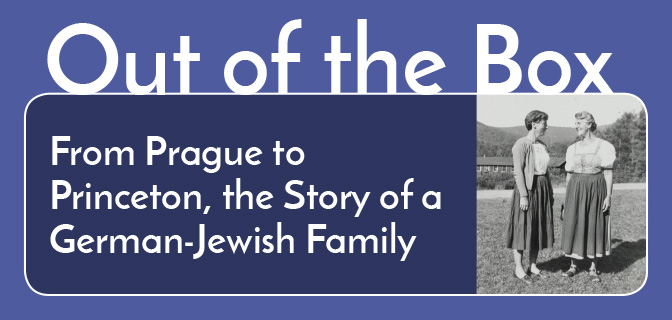
A story from the Archives of the Leo Baeck Institute
Devotion, heartache, intrigue, New Age spiritualism, the von Trapp family, a love triangle, and even Matthew Broderick! The Kulbach family had it all. Once members of the German Jewish intellectual elite, the Kulbachs survived wartime Germany, endured the trauma of immigration, and established new lives in the United States. Piecing together photos, letters, and other archival materials, Sarah Glover, Archivist at the Center for Jewish History, brings the Kulbach story Out of the Box and back to life.
About the Series
At the Center for Jewish History, there are tens of thousands of boxes in our partners’ archival collections. Boxes filled with photographs, journals, letters, and documents. Boxes filled with stories. Come see what we find! Join us for our new series, Out of the Box.
About the Speaker:
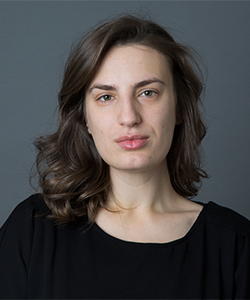 Sarah Glover is an Archivist and Digitization Projects Liaison at the Center for Jewish History, where she has worked since 2015. She received her undergraduate degree from the University of Illinois at Urbana-Champaign where she studied English, History, and Jewish Studies and her Master of Science in Information from the University of Michigan. Sarah uses her knowledge of German, Hebrew, and Yiddish in her archival work.
Sarah Glover is an Archivist and Digitization Projects Liaison at the Center for Jewish History, where she has worked since 2015. She received her undergraduate degree from the University of Illinois at Urbana-Champaign where she studied English, History, and Jewish Studies and her Master of Science in Information from the University of Michigan. Sarah uses her knowledge of German, Hebrew, and Yiddish in her archival work.
Ticket Info: $10 general; $7 seniors; $5 CJH/Partner members, students at kulbachfamily.bpt.me or 800-838-3006
Presented by:


talk
book talk
An Innocent Bystander: The Killing of Leon Klinghoffer
This talk with author Julie Salamon and Warren Bass, Senior Editor at The Wall Street Journal, revisits the 1985 hijacking of the Achille Lauro and the brutal murder of passenger Leon Klinghoffer, which became a flashpoint in the intractable struggle between Israelis and Palestinians. Come learn about the geopolitical and personal consequences flowing from this shocking act of international terrorism that thrust an ordinary man into history and reshaped the destiny of three families.
Ticket Info: $10 general; $5 AJHS members, seniors, students at bpt.me/4051839 or 800-838-3006; $12 at the door
Presented by:

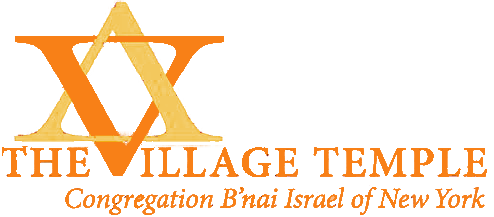
book talk
holidays and closures
The Center is closed Monday, June 10 for Shavuot.
holidays and closures
holidays and closures
The Center is closed Sunday, June 9 for Shavuot.
holidays and closures
book launch
This Land is Our Land: An Immigrant’s Manifesto
In this book, Suketu Mehta (NYU) in conversation with Nancy Foner (CUNY Hunter College), juxtaposes the phony narratives of populist ideologues with the ordinary heroism of laborers, nannies and others, from Dubai to Queens, and explains why more people are on the move today than ever before.
Ticket Info: $10 general; $5 AJHS members, seniors, students at bpt.me/4051835 or 800-838-3006; $12 at the door
Presented by:

book launch
concert
Songs of Jerusalem
In honor of Jerusalem Day, Israeli singer Omer Shaish and the MusicTalks Ensemble offer a musical tribute to the City of David. Host Elad Kabilio provides background on a wide array of songs – from traditional to modern songs, liturgical to pop – celebrating the city in its historic and contemporary context.
Ticket Info: $15 general, $10 YUM members, YU students, faculty, staff at musictalksjune.bpt.me or 800-838-3006
Presented by:


concert
concert and lecture
A Hebrew Liederabend – An Evening of Hebrew Song
An elegant illuminating retrospective program devoted to classic treasures of secular Hebrew song and the poetry that has inspired this rich variety of musical expression for more than a century.
Ticket Info: $15 general; $10 members, students at https://yivo.org/Liederabend2019 or 917-606-8290
Presented by:

concert and lecture
talk
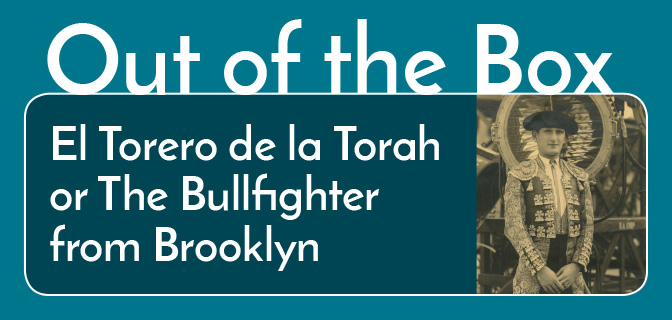
A story from the Archives of the American Jewish Historical Society
Stepping into a bullfighting ring in Mexico for the first time in 1923, Sidney Franklin launched a decades-long career as the world’s first Jewish matador. Secretly gay, celebrated and befriended by the likes of Ernest Hemingway and starring alongside Paulette Goddard and Eddie Cantor, “El Torero de la Torah” traveled a long way from his upbringing as the fifth of nine children of Russian-born, Orthodox Jewish parents in Brooklyn. Rachel Miller, Director of Archive and Library Services at the Center for Jewish History, brings Franklin’s fascinating story Out of the Box.
About the Series
At the Center for Jewish History, there are tens of thousands of boxes in our partners’ archival collections. Boxes filled with photographs, journals, letters, and documents. Boxes filled with stories. Come see what we find! Join us for our new series, Out of the Box.
About the Speaker:
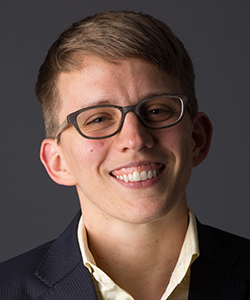 Rachel Miller is the Director of Archive and Library Services at the Center for Jewish History. After receiving her Masters in Library and Information Science from Rutgers University, she became an archivist at the Center for Jewish History in 2008 and worked on the Sidney Franklin collection in 2010. Rachel holds a BA in English from Barnard College and has translated contemporary Hungarian literature.
Rachel Miller is the Director of Archive and Library Services at the Center for Jewish History. After receiving her Masters in Library and Information Science from Rutgers University, she became an archivist at the Center for Jewish History in 2008 and worked on the Sidney Franklin collection in 2010. Rachel holds a BA in English from Barnard College and has translated contemporary Hungarian literature.
Ticket Info: $10 general; $7 seniors; $5 CJH/Partner members, students at torero.bpt.me or 800-838-3006
Presented by:


talk
art workshop
Papercuts for Shavuot with artist Deborah Ugoretz
Jews in late-19th century Poland and Russia developed a practice of making decorative papercuts for Shavuot, often representing flowers and animals. Continue this folk tradition by creating your own decorative papercut for the holiday. Artist Deborah Ugoretz will discuss the history of this craft, show examples of her own designs and teach techniques for incorporating traditional flower and animal shapes into your own work. For ages 12 through adult.
Ticket Info: $10 general; $8 YUM/CJH/Partner members, YU faculty/staff at papercuts.bpt.me or 800-838-3006
Presented by:

art workshop
opera
Nabucco
An opera by Giuseppe Verdi, adapted by and starring David Serero as Nabucco. Building on the Biblical accounts of the Babylonian Exile found in Jeremiah and Daniel, Verdi's Nabucco (Nebuchadnezzar) combines political and love intrigues with some of the greatest songs ever written (including “Va, pensiero, The Chorus of the Hebrew Slaves”).
Ticket Info: $26 general; $36 VIP at brownpapertickets.com/event/2102424 or 800-838-3006
Presented by:

opera
lecture
The Exile-Film Jew Süss / Power (1934) and the Nazi Propaganda Film Jud Süss (1940)
Power/Jew Süss (UK, 1934), directed by Lothar Mendes with Conrad Veidt in the leading role is the first important film of the German-Jewish exiles. The film is based on the novel by Lion Feuchtwanger who cooperated, though in a critical vain, with the efforts to transfer his work to the screen. The film was intended to give an answer to the rise of German antisemitism. It was in many ways innovative and the Nazi film minister Goebbels was infuriated. The racist idea to transform the original story and the film into a visual piece of murderous antisemitism and to steal as much visuals as possible from the exiles` film was born at this time but it took years until the Nazi filmmaker Veit Harlan directed his antisemitic film Jew Süss.
The talk will illustrate the production, the ensuing discussion about the 1934 film, Feuchtwangers reaction and the Nazi endeavors to use the film of 1934 as supportive means for mass murder. The talk will compare film sequences and try to answer the question why the Nazi film today is much more known than the anti-Nazi film.
About the Speaker:
Frank Stern studied at the Free University Berlin, the Hebrew University in Jerusalem, and received his PhD from Tel-Aviv University where he taught Modern History and Culture. From 1997 to 2004 Professor for Modern German History and Culture and director of the Center for German Studies and the Austrian-German Studies Program at Ben-Gurion University in Beer-Sheva, Israel, and 2002 Acting Chair at the Department of Film and Television at Sapir College, Sederot. Visiting Professor at Columbia University in the City of New York, at Georgetown University, Washington DC, at Humboldt University Berlin, and at Vienna University. Since 2004 teaching cinema and cultural history at the Institute for Contemporary History at Vienna University. He published widely on postwar Germany, on problems of philosemitism and anti-Semitism (the Whitewashing of the Yellow Badge), on American-German-Israeli relations, on German-Jewish issues, and particularly on German, Austrian and US-American film.
Ticket Info: $10 general; $5 LBI/CJH/Partner members, seniors, students at https://jew-suess-films.bpt.me or 800-838-3006
Presented by:

lecture
opera
Nabucco
An opera by Giuseppe Verdi, adapted by and starring David Serero as Nabucco. Building on the Biblical accounts of the Babylonian Exile found in Jeremiah and Daniel, Verdi's Nabucco (Nebuchadnezzar) combines political and love intrigues with some of the greatest songs ever written (including “Va, pensiero, The Chorus of the Hebrew Slaves”).
Ticket Info: $26 general; $36 VIP at brownpapertickets.com/event/2102424 or 800-838-3006
Presented by:

opera
holidays and closures
The Center is closed Monday, May 27th in honor of Memorial Day.
holidays and closures
holidays and closures
The Center is closed Sunday, May 26 and Monday, May 27 in honor of Memorial Day.
holidays and closures
conversation
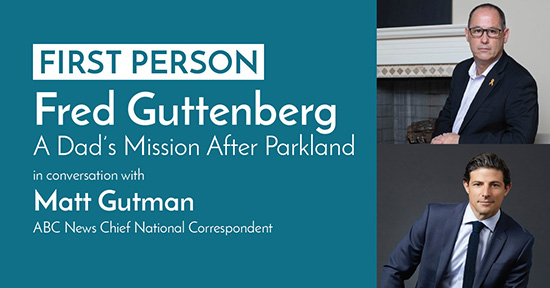
Fred Guttenberg never planned on leading a public life. He didn’t envision himself giving interviews on national news programs or announcing legislation on Capitol Hill. “I was not a politically involved person before February 14th,” Fred said. But that day in 2018, his 14-year-old daughter Jaime was one of 17 people killed by a gunman at Marjory Stoneman Douglas High School in Parkland, Florida. Fred is now devoting his life to urgently advocating for stricter gun control and public safety laws. A native of Long Island, Fred says his Jewish upbringing instilled in him a commitment to family, service, and standing up for others. Matt Gutman, an ABC News Chief National Correspondent joins Fred for a conversation about speaking out, fighting back, and challenging elected officials to do more.
ASL interpretation will be provided at this event.
About the Speakers:
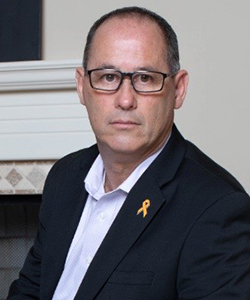 Fred Guttenberg moved to Florida from Long Island in 1989 shortly after graduating from Skidmore College in New York in 1988. His brother Michael Guttenberg, a first responder during 9/11, died from cancer in 2017 as a result of ground zero exposure. After his daughter’s death, Fred founded Orange Ribbons For Jaime a 501(C)(3) foundation that supports causes important to Jaime in life, as well as those that deal with the way her life was tragically cut short. Donations are made to organizations in the world of dance and to organizations that deal with bullying and children with special needs. Fred, his wife Jennifer, and their son Jesse currently reside in Parkland, Florida.
Fred Guttenberg moved to Florida from Long Island in 1989 shortly after graduating from Skidmore College in New York in 1988. His brother Michael Guttenberg, a first responder during 9/11, died from cancer in 2017 as a result of ground zero exposure. After his daughter’s death, Fred founded Orange Ribbons For Jaime a 501(C)(3) foundation that supports causes important to Jaime in life, as well as those that deal with the way her life was tragically cut short. Donations are made to organizations in the world of dance and to organizations that deal with bullying and children with special needs. Fred, his wife Jennifer, and their son Jesse currently reside in Parkland, Florida.
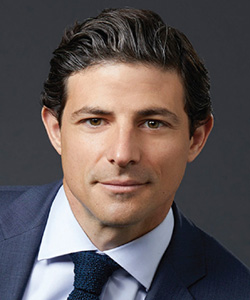 Matt Gutman is an award winning ABC News Chief National Correspondent. He appears on all ABC News broadcasts and platforms, including World News Tonight with David Muir, 20/20, Good Morning America, and Nightline. Reporting for ABC from nearly 50 countries across the globe, Matt has covered many of the major stories of the past decade including the miraculous rescue of the boys’ soccer team from a cave in Thailand about which he wrote the 2018 book The Boys in the Cave: Deep Inside the Impossible Rescue in Thailand. In 2016, while reporting on the upheaval in Venezuela, he was detained for five days by the country’s secret police for “the crime” of reporting on the fatal shortages of medicine and food in the country’s hospitals. Experiencing the inside of one of Venezuela’s dreaded intelligence agency’s prisons further opened his eyes to the corrosive power of repressive governments. Before joining ABC News in 2008, Matt was a Jerusalem-based reporter for seven years, covering every major conflict in the Middle East, from the Palestinian uprising to the invasion of Iraq. He lives in California with his wife and two children.
Matt Gutman is an award winning ABC News Chief National Correspondent. He appears on all ABC News broadcasts and platforms, including World News Tonight with David Muir, 20/20, Good Morning America, and Nightline. Reporting for ABC from nearly 50 countries across the globe, Matt has covered many of the major stories of the past decade including the miraculous rescue of the boys’ soccer team from a cave in Thailand about which he wrote the 2018 book The Boys in the Cave: Deep Inside the Impossible Rescue in Thailand. In 2016, while reporting on the upheaval in Venezuela, he was detained for five days by the country’s secret police for “the crime” of reporting on the fatal shortages of medicine and food in the country’s hospitals. Experiencing the inside of one of Venezuela’s dreaded intelligence agency’s prisons further opened his eyes to the corrosive power of repressive governments. Before joining ABC News in 2008, Matt was a Jerusalem-based reporter for seven years, covering every major conflict in the Middle East, from the Palestinian uprising to the invasion of Iraq. He lives in California with his wife and two children.
Ticket Info: $15 general; $12 seniors; $10 CJH/Partner members at bpt.me/4103496
Presented by:


conversation
curator's tour
Kindertransport – Rescuing Children on the Brink of War
Join curator Ilona Moradof on a tour of Kindertransport – Rescuing Children on the Brink of War, illuminating the organized rescue efforts that brought thousands of children from Nazi Europe to Great Britain in the late 1930s. Explore the children’s difficult and often heartbreaking journeys through personal stories, artifacts and engaging media.
Ticket Info: $10 general; $5 seniors, students; free for YUM members, YU students, faculty, staff at ktcurator.brownpapertickets.com or 800-838-3006
Presented by:


curator's tour
opera
Nabucco
An opera by Giuseppe Verdi, adapted by and starring David Serero as Nabucco. Building on the Biblical accounts of the Babylonian Exile found in Jeremiah and Daniel, Verdi's Nabucco (Nebuchadnezzar) combines political and love intrigues with some of the greatest songs ever written (including “Va, pensiero, The Chorus of the Hebrew Slaves”).
Ticket Info: $26 general; $36 VIP at brownpapertickets.com/event/2102424 or 800-838-3006
Presented by:

opera
panel discussion
Child Separation and Refugee Crises from the Kindertransport to Today
Mark Hetfield, CEO of the Hebrew Immigrant Aid Society, and Alex Aleinikoff, Director of the New School’s Zolberg Institute on Migration & Mobility and the former UN Deputy High Commissioner for Refugees, discuss the history of popular opposition to refugees and especially how it has impacted children, from the Kindertransport to the Trump Administration’s child separation policy. NPR’s international correspondent Deborah Amos, who has reported extensively on refugees in the Middle East and across the globe, will moderate the discussion.
Ticket Info: $10 general; $5 LBI/CJH/Partner members, seniors, students at https://kindertransport-refugees.bpt.me or 800-838-3006
Presented by:


panel discussion
book talk
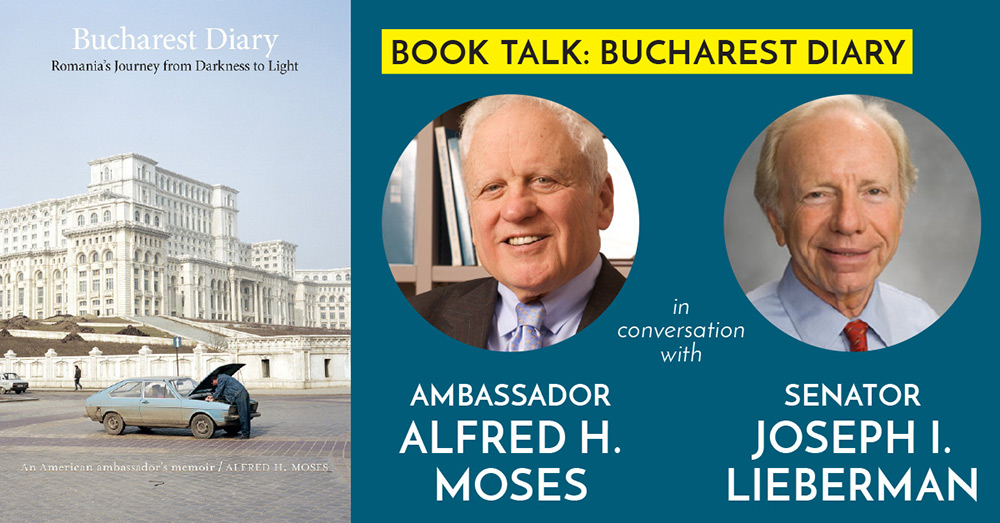
In the 1970s, American attorney Alfred H. Moses was approached on the streets of Bucharest by young Jews desperate to emigrate from Communist Romania to Israel. Helping them became his mission. In recognition of his work, Moses was appointed President Clinton’s first ambassador to Romania in 1994. In his compelling memoir, Bucharest Diary Romania’s Journey from Darkness to Light, Moses writes about his fascinating career and the previously untold story of the exodus of Jews from Communist Romania to Israel. Senator Joseph Lieberman joins Ambassador Moses to discuss his historic work and key diplomatic role in Romania’s transition from its Communist past to democracy - and from “darkness to light.” Book sale, signing and reception follow the program.
About the Speakers:
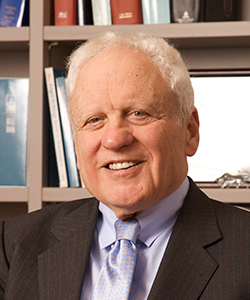 Alfred H. Moses, was appointed by President Clinton as the ambassador to Romania from 1994 to 1997 in recognition of his historic work on behalf of Romanian Jewry. In this role, Moses was instrumental in helping Romania move from its communist past to democracy, and in establishing a free economy, the fastest growing in East Europe. Ambassador Moses also facilitated negotiations between Romania and its neighbors, Hungary and Ukraine, resulting in treaties resolving border and other disputes and leading to Romania‘s invitation to join NATO and the European Union. Moses is the only American to receive the Romanian Government‘s Marc Cruce medal. An attorney and co-founder of Promontory LLC, Moses is past president of AJC , chairman of UN Watch, and co-chair of Beit Hatfutsot‘s Board of Governors.
Alfred H. Moses, was appointed by President Clinton as the ambassador to Romania from 1994 to 1997 in recognition of his historic work on behalf of Romanian Jewry. In this role, Moses was instrumental in helping Romania move from its communist past to democracy, and in establishing a free economy, the fastest growing in East Europe. Ambassador Moses also facilitated negotiations between Romania and its neighbors, Hungary and Ukraine, resulting in treaties resolving border and other disputes and leading to Romania‘s invitation to join NATO and the European Union. Moses is the only American to receive the Romanian Government‘s Marc Cruce medal. An attorney and co-founder of Promontory LLC, Moses is past president of AJC , chairman of UN Watch, and co-chair of Beit Hatfutsot‘s Board of Governors.
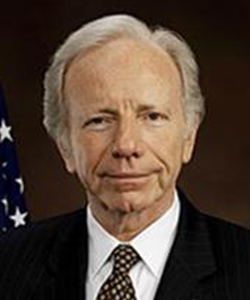 Joseph I. Lieberman is a former Connecticut State Senator and Attorney General and the first Orthodox Jew to serve as U.S. Senator. During his tenure as Senator, he led the efforts to create the Department of Homeland Security. In 2000, Senator Lieberman was the Democratic candidate for Vice President alongside Al Gore, and the first Jew named to an American national ticket. Senator Lieberman is senior counsel at Kasowitz Benson Torres LLP. He is the author of five books, including In Praise of Public Life and An Amazing Adventure. Chair in Public Policy and Public Service at Yeshiva University, Senator Lieberman is Honorary Chair of Beit Hatfutsot‘s Board of Governors.
Joseph I. Lieberman is a former Connecticut State Senator and Attorney General and the first Orthodox Jew to serve as U.S. Senator. During his tenure as Senator, he led the efforts to create the Department of Homeland Security. In 2000, Senator Lieberman was the Democratic candidate for Vice President alongside Al Gore, and the first Jew named to an American national ticket. Senator Lieberman is senior counsel at Kasowitz Benson Torres LLP. He is the author of five books, including In Praise of Public Life and An Amazing Adventure. Chair in Public Policy and Public Service at Yeshiva University, Senator Lieberman is Honorary Chair of Beit Hatfutsot‘s Board of Governors.
Ticket Info: With book: $30 general; $27 seniors; $25 CJH/Partner members, students. Without book: $15 general; $12 seniors; $10 CJH/Partner members, students at bucharestdiary.bpt.me or 800-838-3006
Presented by:




book talk
conference
Legacies of Violence: The Pogroms of the Russian Civil War at 100
Join a group of distinguished scholars to commemorate the centennial of the 1919 wave of anti-Jewish violence unleashed by the Russian Civil War.They will discuss the pogroms through the lenses of the specific geopolitical context where the violence erupted, as well as in a comparative framework in relation to anti-Black violence. The presenters will also explore the power of literary responses to anti-Jewish violence and reassess the role that pogroms play in Jewish memory and history.
10:00 am– 11:30 am:
On Literature and Pogroms
Chair: Anita Norich, University of Michigan
Presenter: Amelia Glaser, UC San Diego
Presenter: Harriet Murav, University of Illinois
Discussant: Val Vinokur, The new School
11:30 am – 11:45 am: Coffee break
11:45 am – 1:15 pm:
Toward a Comparative Approach
Chair: Eugene Avrutin, University of Illinois
Presenter: Michele Mitchell, New York University
Presenter: Benjamin Gampel, Jewish Theological Seminary
Discussant: Bob Weinberg, Swarthmore College
1:15 pm – 2:30 pm: Lunch (on your own)
2:30 pm – 4:30 pm:
Pogroms in Context: Russia and Poland
Chair: Faith Hillis, University of Chicago
Presenter: Glenn Dynner, Sarah Lawrence College
Presenter: Polly Zavadivker, University of Delaware
Presenter: Anna Cichopek-Gajraj, Arizona State University
Presenter: Bob Weinberg, Swarthmore College
4:30 pm – 5:30 pm: Coffee break
5:00 pm – 6:30 pm:
Pogroms in History and Memory: A Conversation
Elissa Bemporad, Queens College and the Graduate Center, CUNY
Jeffrey Veidlinger, University of Michigan
Steve Zipperstein, Stanford University
The conference is organized thanks to the generous support of the Nevzlin Research Center for Russian and East European Jews, Hebrew University of Jerusalem, and The Blavatnik Family Foundation.
Ticket Info: This event is SOLD OUT.
Presented by:

conference
walking tour

Union Square Walking Tour with Annie Polland
Union Square is where two major roads intersected and where labor unions gathered energy, and it is also the place where Jewish history and American history intertwined in fascinating and diverse ways. Come analyze the buildings, Macy's, Tammany Hall, Margaret Sangers Planned Parenthood townhouse and come hear what Emma Goldman, Emma Lazarus and others had to say about immigration, suffrage and free love. This special walking tour ends with a behind-the-scenes look at the objects and primary sources including Emma Lazarus' handwritten manuscript of the New Colossus that inspired the tour.
Ticket Info: $20 general; $15 AJHS/CJH/LBI members, seniors, students at bpt.me/4051824 or 800-838-3006
Presented by:



walking tour
walking tour

Washington Heights Walking Tour
Rob Snyder, author of the book Crossing Broadway, Washington Heights and the Promise of New York City, and Professor of Journalism and American Studies at Rutgers University-Newark, leads a walking tour and panel discussion in the northern Manhattan neighborhood once known as “Frankfurt on the Hudson” for its large population of German-Jewish refugees. Eight decades later, the neighborhood is still a vibrant home for new immigrant communities. Purchase tickets for location information.
Ticket Info: This event is SOLD OUT.
Presented by:



walking tour
lecture
WHAT'S IN A NAME? A case study of (Re)Discovering Jewish Identity on (and off) an Unlikely African Archipelago
From Poland to Brazil to New Mexico, individuals, families and communities around the world are discovering that they have Jewish ancestors who renounced and/or suppressed their religious identity. What happens when Christians today learn that some of their long-ago relatives were Jewish? The West African nation of Cabo Verde offers an especially compelling place from which to explore this intriguing process because of the unexpected convergence of Jews and Africans on a remote archipelago in the North Atlantic.
Professor Alma Gottlieb, an award-winning cultural anthropologist , will discuss her research with the Cabo Verdeans who are reconnecting with their Jewish heritage.
Ticket Info: $5 at the door; free for JGS and ASF members
Presented by:


lecture
concert
Rothko’s Chapel, Little Match Girl Passion, and an Adam Roberts Premiere: Secular Sacred Music
Ticket Info: $15 general; $10 YIVO members, students at https://yivo.org/Secular-Sacred-Music
Presented by:

concert
opera
Nabucco
An opera by Giuseppe Verdi, adapted by and starring David Serero as Nabucco. Building on the Biblical accounts of the Babylonian Exile found in Jeremiah and Daniel, Verdi's Nabucco (Nebuchadnezzar) combines political and love intrigues with some of the greatest songs ever written (including “Va, pensiero, The Chorus of the Hebrew Slaves”).
Ticket Info: $26 general; $36 VIP at brownpapertickets.com/event/2102424 or 800-838-3006
Presented by:

opera
lecture
Saving Monticello: The Little-Known Story of the Levy Family’s Stewardship of Thomas Jefferson’s ‘Essay in Architecture.’
Marc Leepson will present a lively talk on U.S. Navy Commodore Uriah Phillips Levy and Representative Jefferson Monroe Levy, the Sephardic saviors of Jefferson’s iconic house at Charlottesville, Virginia, including the history of one of the most accomplished Jewish-American families (Levy-Phillips-Nunez).
Ticket Info: $10 general at brownpapertickets.com/event/4208502 or 800-838-3006
Presented by:

lecture
lecture
Urban Genealogy - Researching New York City’s Buildings
Who built my building? When? Who designed it? Has it changed? What did it used to look like? Who’s lived there over the decades? Has it been written about or photographed? New York City enjoys unrivalled resources for hunting down answers to those questions. In the past, such research meant visiting archives, city offices, libraries and historical societies, but in recent decades vast amounts of material have migrated to the cloud. For more than 30 years, Anthony Robins has taught New Yorkers the secrets of uncovering the city’s history in an annual seminar at the Municipal Art Society. This one-hour introduction synthesizes the highlights of that seminar, focusing on some of the most useful on-line resources — from New York City property records to newspaper databases to public library collections to photo research — and demonstrates their use.
About the Speaker: Architectural historian and author Anthony W. Robins (AnthonyWRobins.com) spent 20 years on staff at the New York Landmarks Commission, supervising the work of historians researching the city's landmarks and historic districts. Now in private practice, he continues to research the history of the city's buildings, while writing, teaching and leading walking tours. His books include Grand Central Terminal: 100 Years of a New York Landmark; Classics of American Architecture: The World Trade Center; Subway Style: 100 Years of Architecture & Design in the New York City Subway; and New York Art Deco: A Guide to Gotham’s Jazz Age Architecture, winner of a 2017-2018 New York City Book Award from the New York Society Library.
An ASL interpreter may be made available if requested in advance.
This program is supported, in part, by public funds from the New York City Department of Cultural Affairs in partnership with the City Council.
Ticket Info: $10 general; $5 CJH/Partner members, seniors, students at urbangenealogy.bpt.me or 800-838-3006
Presented by:

lecture
opera
Nabucco
An opera by Giuseppe Verdi, adapted by and starring David Serero as Nabucco. Building on the Biblical accounts of the Babylonian Exile found in Jeremiah and Daniel, Verdi's Nabucco (Nebuchadnezzar) combines political and love intrigues with some of the greatest songs ever written (including “Va, pensiero, The Chorus of the Hebrew Slaves”).
Ticket Info: $26 general; $36 VIP at brownpapertickets.com/event/2102424 or 800-838-3006
Presented by:

opera
curator's tour
Kindertransport – Rescuing Children on the Brink of War
Join curator Ilona Moradof on a tour of Kindertransport – Rescuing Children on the Brink of War, illuminating the organized rescue efforts that brought thousands of children from Nazi Europe to Great Britain in the late 1930s. Explore the children’s difficult and often heartbreaking journeys through personal stories, artifacts and engaging media.
Ticket Info: This event is SOLD OUT.
Presented by:


curator's tour
opera
Nabucco
An opera by Giuseppe Verdi, adapted by and starring David Serero as Nabucco. Building on the Biblical accounts of the Babylonian Exile found in Jeremiah and Daniel, Verdi's Nabucco (Nebuchadnezzar) combines political and love intrigues with some of the greatest songs ever written (including “Va, pensiero, The Chorus of the Hebrew Slaves”).
Ticket Info: $26 general; $36 VIP at brownpapertickets.com/event/2102424 or 800-838-3006
Presented by:

opera
lecture
Leaving Mother Russia
Between 1881 and 1914, about two million Jews left the Tsarist Empire and departed westward, primarily for the United States. What were the logistics of this often-difficult process? This presentation will highlight the complex decision-making and border-crossing processes that individual Jews went through on their journeys to America.
Ticket Info: Free; reservations required at yivo.org/Leaving-Mother-Russia or 917-606-8290
Presented by:

lecture
staged reading
Three Suitcases—An Encounter with Ernst Toller & William S. Burroughs
True story: In 1937, future Beat Generation icon William Burroughs was 23 years old. He married a German Jewish woman named Ilse Herzfeld Klapper to help her obtain a visa to avoid repatriation to Germany. She was 37 years old at the time.
Ilse Burroughs arrived in New York in 1939. She was hired as a secretary by exiled anti-fascist German writer and activist Ernst Toller.
A poet and war veteran, Toller came to prominence in 1919 as a leader of the short-lived Worker’s Republic (Räterepublik) in Munich. This revolutionary government in Bavaria was brutally suppressed in two months. Toller was sentenced to five years in prison.
The plays and poems Toller wrote in jail—including a play that prophesied the rise of Hitler—made him an international luminary. He was an immediate target of the Nazi regime when it took power in 1933. His apartment in Berlin was raided in the first waves of arrests after the Reichstag fire, but Toller was in Switzerland. He never returned to Germany.
Toller’s books were burned on Berlin's Opernplatz in May 1933. He quickly became one of the leading figures in anti-fascist resistance. He gave speeches, wrote articles, raised money for the hungry in Spain. He even wrote film scripts in Hollywood.
Richard Byrne’s new play Three Suitcases imagines two meetings between these three characters in the Mayflower Hotel in 1939. It's a landscape of refugees and exiles, growing fascism, and attempts to erase and rewrite history.
Three Suitcases also asks hard questions about the artist and politics. Can writers change the world with words? Or should authors stand apart from power?
With a post-reading discussion featuring playwright Richard Byrne and Lisa Marie Anderson, professor of German at Hunter College.
Ticket Info: Free, reservations required at three-suitcases.bpt.me or 800-838-3006
Presented by:

staged reading
concert
Army Bands – A Tribute
In celebration of Yom Ha’atzmaut, former army band singers Ariella Edvy and Omer Shaish, along with the MusicTalks ensemble, pay musical tribute to the Israeli army band phenomenon of the 60’s and 70’s. Through vivid stories and background, host Elad Kabilio contextualizes the music that helped inspire the young nation of Israel during and after times of war.
Ticket Info: $15 general, $10 YUM members, YU students, faculty & staff at musictalksmay.bpt.me or 800-838-3006
Presented by:


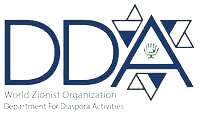
concert
lecture
Reimagining the History of the Kovno Ghetto
For decades, scholarship on the Holocaust in Kovno has been dominated by the writings of ghetto elites, relegating the testimonies of Jews who did not occupy positions of authority during the war to the margins. This talk will highlight Yiddish and Hebrew accounts of the Kovno ghetto whose evidentiary value has been minimized or ignored.
Ticket Info: Free; reservations required at yivo.org/Kovno-Ghetto or 917-606-8290
Presented by:

lecture
panel discussion
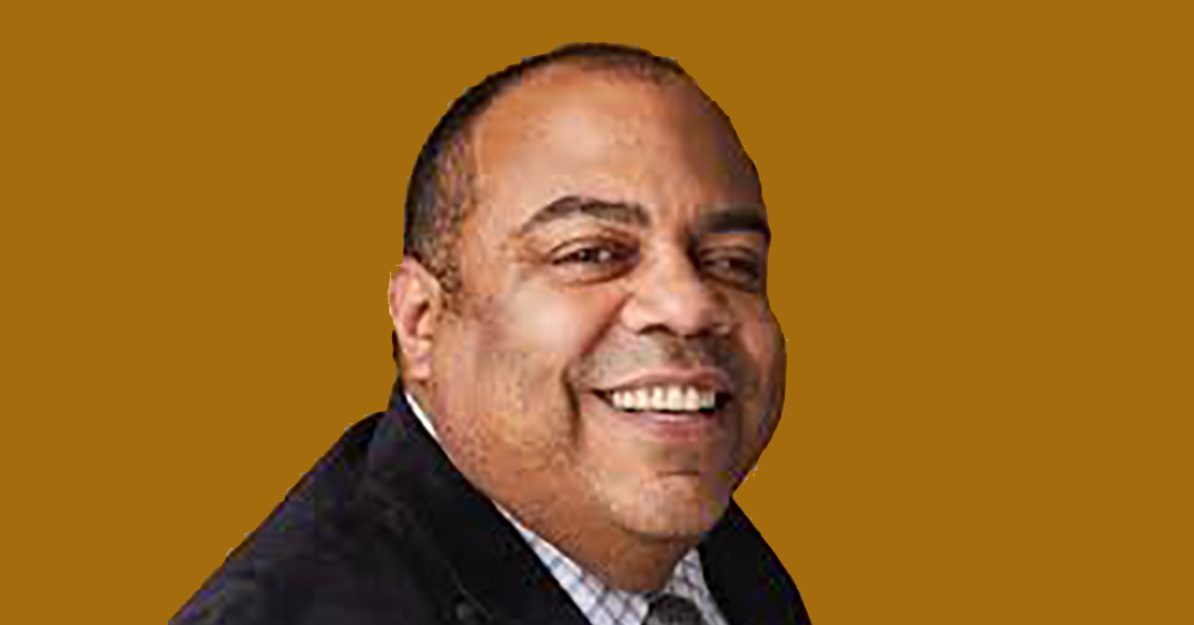
Antisemitism, Identity Politics and American Identity: Historical and Contemporary Perspectives
Considering current events, historians and the public are motivated to re-examine the history of antisemitism in the U.S. Join us for a panel discussion on antisemitism, and how it is woven into our national conversations around identity politics, intercultural relations, and national identity. Featuring Christina Greer, Tony Michels and Eric Ward.
Part of the Jack Coleman and Lawrence Kanter, MD Lecture Series.
Ticket Info: $15 general; $10 AJHS members, seniors, students at bpt.me/4193644 or 800-838-3006; $18 at the door
Presented by:

panel discussion
lecture
Jewish Religious Music in 19th-Century America
Drawing on material in his new book Jewish Religious Music in Nineteenth-Century America: Restoring the Synagogue Soundtrack, Judah M. Cohen (Indiana University) presents a new side to the story of American Jewish music, including important sonic innovations of the 19thcentury.
Ticket Info: Free; registration required at jewishmusicforum.org
Presented by:

lecture
lecture
Memory of the Past and the Battle for a Promising Future
Join us for a talk by founder and president of Yahad-In Unum, Catholic priest Father Patrick Desbois. Yahad-In Unum identifies mass Jewish killing sites and collects forensic evidence of the executions and conducts international workshops and graduate-level seminars to contribute to Holocaust scholarship and the study of genocide.
Ticket Info: $15 general; $10 YIVO members, students at https://yivo.org/Father-Desbois or 917-606-8290
Presented by:

lecture
conference
In Dialogue: Polish Jewish Relations
The 2018-19 “In Dialogue” series culminates in this daylong conference discussing Polish Jewish relations in the post-war era, including contemporary issues such as Poland’s controversial Holocaust law.
Ticket Info: Free; reservations required at yivo.org/InDialogueConference or 917-606-8290
Presented by:

conference
book launch
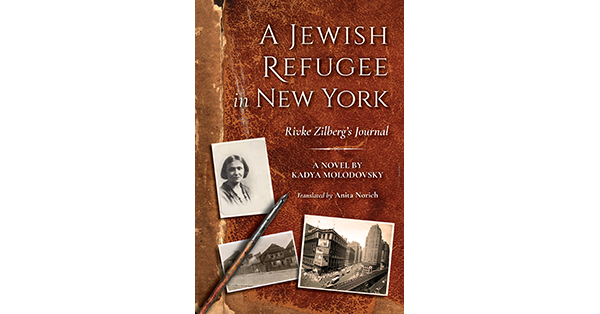
Join Anita Norich in conversation with Joseph Berger about Jewish refugees in America, female authors, Yiddish novels, translation and more to celebrate the launch of Professor Norich’s translation of Kadya Molodovsky’s novel.
Rivke Zilberg, a 20-year-old Jewish woman, arrives in New York shortly after the Nazi invasion of Poland, her home country. In this fictionalized journal originally published in Yiddish, author Kadya Molodovsky provides keen insight into the day-to-day activities of the large immigrant Jewish community of New York. By depicting one woman's struggles as a Jewish refugee in the US during WWII, Molodovsky points readers to the social, political, and cultural tensions of that time and place. A reception and book signing will follow the program.
A limited number of seats are available for this event; reservations are required.
This event is generously supported by the Covenant Foundation.
About the Speakers:
Anita Norich is Collegiate Professor Emerita of English and Judaic Studies at the University of Michigan, and currently the National Endowment for the Humanities Senior Scholar at the Center for Jewish History. Her recent publications include Writing in Tongues: Yiddish Translation in the 20th Century and Discovering Exile: Yiddish and Jewish American Literature in America During the Holocaust.
Joseph Berger is a renowned journalist, author, and speaker. For many years he was a staff reporter of The New York Times. His books include Displaced Persons: Growing Up American After the Holocaust, and The World in a City: Traveling the Globe through the Neighborhoods of the New York.
Ticket Info: Please note: This event is sold out.
Presented by:



book launch
concert
Love Letters to Clara: Phoenix Chamber Ensemble and Tesla Quartet Perform Schumann and Brahms
Brahms and Schumann shared their love for Clara Schumann. Both pieces at this concert, Brahms Piano Quartet in G minor, Op.25 and Schumann Piano Quintet in E-Flat Major, Op.44, were composed for her. She performed at the premiere of the Brahms Quartet, and was to perform at the premiere of the Schumann Quintet as well, but fell ill, so Felix Mendelssohn stepped in her place, sight-reading the piano part.
Made possible by Stravinsky Institute Foundation through the generous support of Blavatnik Family Foundation.
Ticket Info: $15 general; $12 seniors; $10 CJH/Partner members, students at bpt.me/4203293 or 800-838-3006
Presented by:

concert
music and discussion
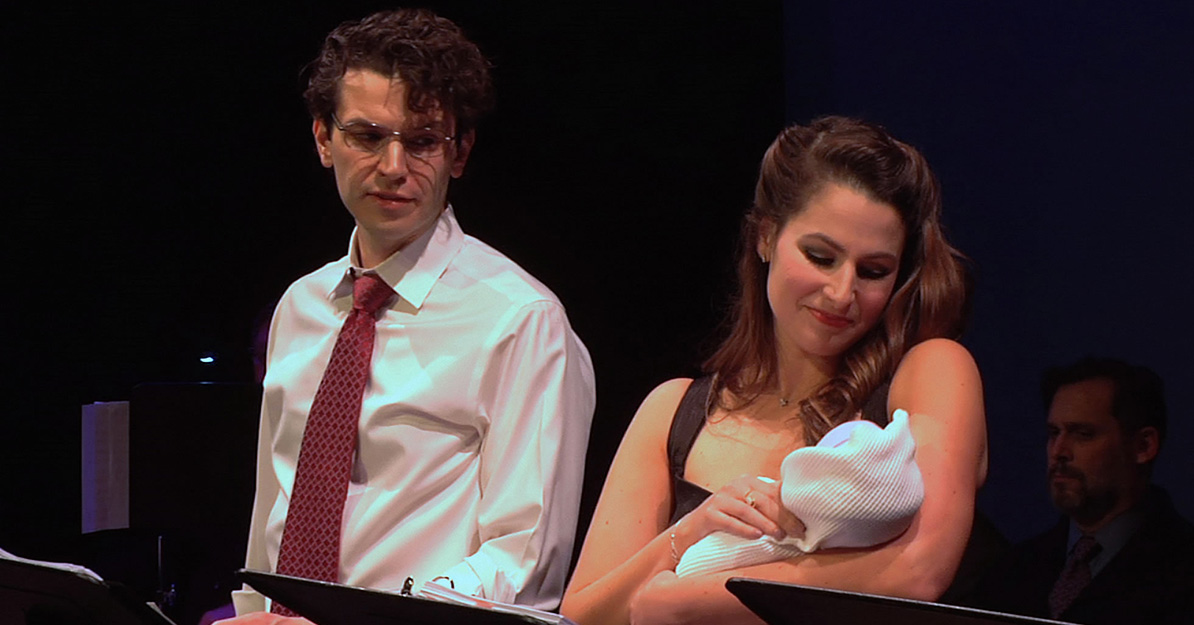
Dear Erich: A Jazz Opera by Ted Rosenthal
Dear Erich is inspired by 200 newly discovered letters written in Germany between 1938 and 1941 by Herta Rosenthal to her son Erich, the composer's father. Dear Erich tells a refugee story for our times. How can a family cope as the walls of their nation's hatred close in around them? For those who escape, what lies ahead? Even in the land of the free, are they ever really free? What if they never learn the fate of loved ones left behind and the communications just stopped? What does closure mean, why does remembrance matter, where does hope come from?
Erich, a Jewish academic, escaped Nazi Germany to the U.S. shortly before Kristallnacht. The opera tells the story of a family's dual fates. Erich's journey to a new life in the new world - his studies, jazz and love - while the situation deteriorates in Germany and his family ultimately meets their cruel demise at the hands of the Nazis. Frustrated and powerless to help them emigrate, Erich must live with deep survivor guilt which affects him in his relationships with his wife and children.
Dear Erich addresses these themes – walls and wars, refugees and immigrants, survivors and victims, the promise of a new world. Dear Erich asks what is found when a survivor forms a new family, and what gets lost when the next generation is untethered to the past? The opera's scenes of immigration and refugees in crisis raise moral dilemmas that resound to this day. Finally, Dear Erich stands for the power of remembrance, not just to honor the past but also to root us in the present and chart our future.
Ticket Info: $15 general; $10 CJH/Partner members, seniors, students at bpt.me/4051831; $18 at the door
Presented by:



music and discussion
walking tour

Union Square Walking Tour with Annie Polland
Union Square is where two major roads intersected and where labor unions gathered energy, and it is also the place where Jewish history and American history intertwined in fascinating and diverse ways. Come analyze the buildings, Macy's, Tammany Hall, Margaret Sangers Planned Parenthood townhouse and come hear what Emma Goldman, Emma Lazarus and others had to say about immigration, suffrage and free love. This special walking tour ends with a behind-the-scenes look at the objects and primary sources including Emma Lazarus' handwritten manuscript of the New Colossus that inspired the tour.
Ticket Info: $20 general; $15 CJH/Partner members, seniors, students at brownpapertickets.com/event/4051817 or 800-838-3006
Presented by:



walking tour
lecture
Using FamilySearch.org for Jewish Research
We live in a time when the availability of genealogical records appears to be almost endless. Every day, a new database becomes available or new records are added to an existing database. This growth has enabled people worldwide to make large strides in searching for their ancestors from the comfort of their own homes. FamilySearch.org is one of the leading online providers of free international genealogical records, but its vast website can be difficult to navigate. In this presentation, W. Todd Knowles will provide an overview of the most effective methods for using FamilySearch.org to locate records of Jewish ancestors.
Before the lecture, join us for a tour of the Ackman & Ziff Family Genealogy Institute, a FamilySearch affiliate library, beginning at 12:30 PM.
About the Speaker:
W. Todd Knowles is a professional genealogist on the staff of the Family History Library in Salt Lake City, Utah. After being introduced to family history at the age of 12, he soon discovered his Jewish roots. His journey to learn more about his Polish-Jewish great-great-grandfather led to the creation of the Knowles Collection (knowlescollection.blogspot.com). Knowles has spoken throughout the world and his articles have been widely published. He currently serves as President of the Jewish Genealogical Society of Utah.
Ticket Info: Free; no reservations required
Presented by:


lecture
holidays and closures
The Center is closed Friday, April 26 for Passover.
holidays and closures
holidays and closures
The Center will close at 2pm Thursday, April 25 for Erev Passover.
holidays and closures
workshop
Passover Objects Up Close and Personal
Join Collections Curator Bonni-Dara Michaels as she handles and sheds light on unique Passover objects from the Museum’s collection, which are currently not on view to the public. See an array of historic holiday artifacts up close – and while they are not behind glass – including traditional and modern Seder plates, Miriam cups, beautiful fabric items, and whimsical artworks.
Ticket Info: Free, registration required at https://passoverday.brownpapertickets.com or 800-838-3006
Presented by:

workshop
workshop
Passover Objects Up Close and Personal
Join Collections Curator Bonni-Dara Michaels as she handles and sheds light on unique Passover objects from the Museum’s collection, which are currently not on view to the public. See an array of historic holiday artifacts up close – and while they are not behind glass – including traditional and modern Seder plates, Miriam cups, beautiful fabric items, and whimsical artworks.
Ticket Info: Free, registration required at https://passoverday.brownpapertickets.com or 800-838-3006
Presented by:

workshop
workshop
Passover Objects Up Close and Personal
Join Collections Curator Bonni-Dara Michaels as she handles and sheds light on unique Passover objects from the Museum’s collection, which are currently not on view to the public. See an array of historic holiday artifacts up close – and while they are not behind glass – including traditional and modern Seder plates, Miriam cups, beautiful fabric items, and whimsical artworks.
Ticket Info: Free, registration required at https://passoverday.brownpapertickets.com or 800-838-3006
Presented by:

workshop
workshop
Passover Objects Up Close and Personal
Join Collections Curator Bonni-Dara Michaels as she handles and sheds light on unique Passover objects from the Museum’s collection, which are currently not on view to the public. See an array of historic holiday artifacts up close – and while they are not behind glass – including traditional and modern Seder plates, Miriam cups, beautiful fabric items, and whimsical artworks.
Ticket Info: Free, registration required at https://passoverday.brownpapertickets.com or 800-838-3006
Presented by:

workshop
concert reading
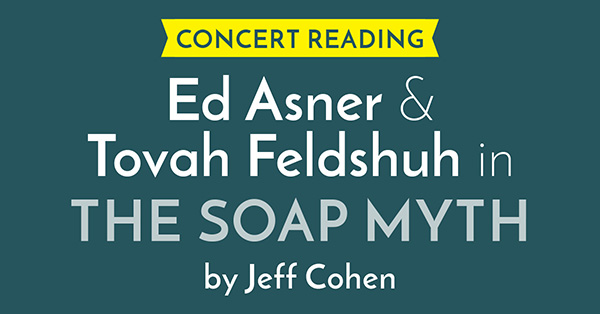
Award winning actors Ed Asner and Tovah Feldshuh star in a concert reading of The Soap Myth, a powerful play about survival, memory, and truth. Set more than fifty years after WWII, a young Jewish reporter grapples with different versions of the same story - did the Nazis make soap from the corpses of murdered Jews? Ed Asner portrays Milton Saltzman, a Holocaust survivor committed to proving that this atrocity happened while Tovah Feldshuh plays dual roles of a Holocaust scholar and a Holocaust denier - both of whom reject Saltzman’s memory. Performed in tribute to Yom HaShoah, The Soap Myth dramatizes the painful confrontation between survivors, scholars, and Holocaust deniers, and questions who has the right to write history. Written by Jeff Cohen and directed by Pam Berlin, the production features Ned Eisenberg in multiple roles including Holocaust scholar Daniel Silver and Liba Vaynberg as journalist Annie Blumberg. The concert reading at the Center for Jewish History is part of the production’s National Tour.
This performance will be filmed by ALL ARTS, a new broadcast channel and streaming platform produced and distributed by WLIW, a member of the WNET family of public media organizations. Visit allarts.org for information on how to watch.
The evening also includes a post-performance discussion with the cast, creative team, and Stefanie Halpern, Acting Director of the YIVO archives.
About the Actors and Playwright:
 ED ASNER (Milton Saltzman)
ED ASNER (Milton Saltzman)
Seven-time Emmy Award and five-time Golden Globe Winner, Ed Asner is beloved for such legendary roles as Lou Grant in “The Mary Tyler Moore Show” and “Lou Grant,” Santa Claus in the Will Farrell-comedy Elf, and Carl Fredrickson in the smash animated feature Up. This marks the third year that he will perform the role of Holocaust survivor Milton Saltzman in The Soap Myth. Mr. Asner also starred as the voice of Carl Fredricksen in Pixar's 2009 box office hit UP! and as Santa Claus in the holiday classic Elf opposite Will Ferrell. He most recently starred in the feature films Honor Amongst Men alongside Rock and Roll Hall of Fame inductee Joan Jett, Angels on Tap opposite Marion Ross, and The Parting Glass with Melissa Leo, Cynthia Nixon, Denis O’Hare, and Anna Paquin, as well as appearances in television shows “Forgive Me,” “Cobra Kai,” “Michael: Every Day,” “The Good Wife,” and “Bones,” among many others. Asner returned to Broadway in the fall of 2013 starring in the comedy drama Grace opposite Paul Rudd, Michael Shannon and Kate Arrington, written by Craig Wright and directed by Dexter Bullard. He’s also been touring the country as Franklin Delano Roosevelt in the critically acclaimed one man show FDR for over 5 years. Serving as the National President of the Screen Actors Guild for two terms, Asner was inducted into the TV Academy Hall of Fame in 1996. In 2002, he received the Screen Actors Guild Life Achievement Award for career achievement and humanitarian accomplishment, presented annually to an actor who fosters the highest ideals of the profession.
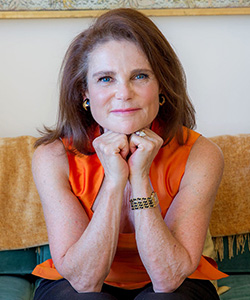 TOVAH FELDSHUH (Esther Feinman/Brenda Goodsen)
TOVAH FELDSHUH (Esther Feinman/Brenda Goodsen)
For her critically acclaimed work on the New York stage, Tovah Feldshuh has earned four Tony nominations for Best Actress and won four Drama Desks, four Outer Critics Circles, the Obie, the Theatre World and the Lucille Lortel Award. Her show, Golda’s Balcony by William Gibson, became the longest-running one-woman play in Broadway history. Her additional Broadway credits include the titular role in Yentl, Sarava, Lend Me a Tenor, Irena’s Vow, and most recently starred as Berthe in the Tony Award-winning revival of Pippin. She also has a storied career as a cabaret artist, touring her show Tovah: Out of Her Mind! internationally and selling out an eight-week run on London’s West End. On television, Ms. Feldshuh received her first Emmy nomination for Helena, the Czech freedom fighter, in the NBC mini-series "Holocaust", and her second nomination for her continuing role as defense attorney Danielle Melnick on NBC’s “Law & Order.” She is widely known for her starring roles on TV’s “The Walking Dead” and “Crazy Ex-Girlfriend.” Film credits include Kissing Jessica Stein (Golden Satellite Award), A Walk on the Moon, The Idolmaker, and Brewster’s Millions. Other recent credits include She’s Funny That Way with Jennifer Aniston and Owen Wilson, Angelica with Janet McTeer and Jena Malone, a recurring role as President of the United States on TV’s “Salvation,” and the title role in Glinda (“Best in Fest”- ‘14 Palm Beach Film Festival.) Long known for her commitment to social justice causes, Ms. Feldshuh is the recipient of the Eleanor Roosevelt Humanities Award, the Hadassah Mother of the Year Award, and the Israel Peace Medal.
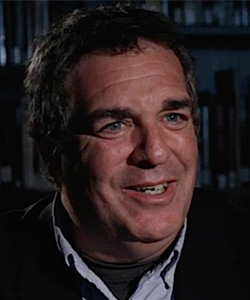 JEFF COHEN (Playwright)
JEFF COHEN (Playwright)
As a playwright, Jeff Cohen is known for original work and adaptations including The Soap Myth, Men Of Clay – a memoir about his father Stan “Squeaky” Cohen and tennis in 1970s Baltimore (Best New Play, Baltimore City Paper), The Man Who Ate Michael Rockefeller - adapted from the Christopher Stokes short story (Critics Pick, The New York Times and Time Out New York), Whoa-Jack! – his racially-charged adaptation of Woyzeck starring Golden Globe nominee Michael Ealy (AUDELCO Award), and The Seagull/The Hamptons, his highly-acclaimed American adaptation of The Seagull whose various productions have featured Tammy Grimes, D.B. Sweeney, Marin Hinkle, Lizbeth Mackay, Neil Huff, and the New York stage debut of Laura Linney (Ten Best of the Year – The Boston Globe). He has recently finished two new plays: Righteous, about a “righteous gentile” who warned the world about the Final Solution in August, 1942, and Squeaky, a sequel to Men of Clay about end-of-life events with his father Stan “Squeaky” Cohen. Mr. Cohen was founder and artistic director of three Off-Broadway theaters – the RAPP Arts Center, the Worth Street Theater Company/Tribeca Playhouse, and Dog Run Rep. Directing highlights include Christopher Shinn’s Four (New York Times Critics Pick, Lortel Award, Drama Desk nominee), Tristine Skyler’s The Moonlight Room (Critics Pick and Annual Ten Best list – New York Times, two Lortel nominations, Outer Critics nominee) and Marlene Meyer’s The Mystery of Attraction (Obie Award). Mr. Cohen is best known for his signature theatrical event responding to the Attacks of 9/11, THE TRIBECA PLAYHOUSE STAGE DOOR CANTEEN – a 10-week USO style variety show to “entertain the troops” (the rescue and recovery workers at Ground Zero) and received a special 2002 Drama Desk Award.
Ticket Info: Please note: The auditorium is sold out – a few tickets remain for the simulcast.
$25 general; $20 CJH/Partner members at thesoapmyth.bpt.me or 800-838-3006; $30 at the door
Presented by:




concert reading
holidays and closures
The Center is closed Sunday, April 21 for Passover.
holidays and closures
holidays and closures
The Center will close at 2pm Friday, April 19 for Erev Passover.
holidays and closures
film and discussion
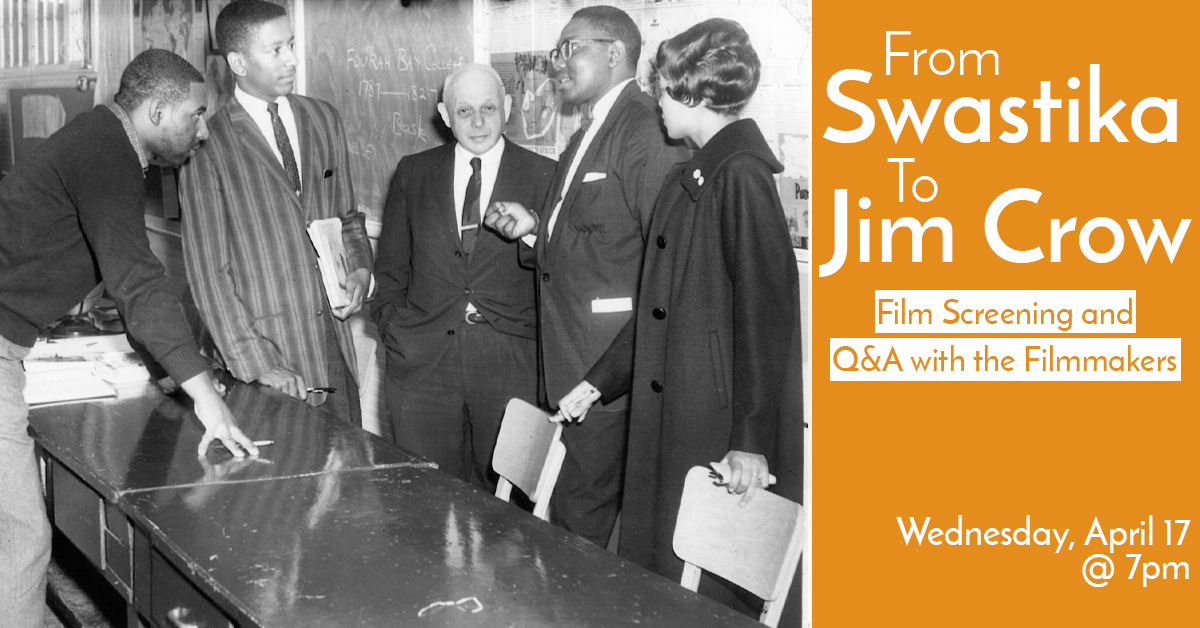
The recent uptick in antisemitic, anti-immigrant, and racist rhetoric have created a burst of new interest in the acclaimed documentary, From Swastika to Jim Crow. Based on the book by Gabrielle Simon Edgcomb, the film tells the little-known story of two very different cultures, sharing a common burden of oppression. In the 1930s, German universities were some of the first targets of Nazi activity. Jewish professors and intellectuals who were able to immigrate to the United States faced an uncertain future. Confronted with antisemitism at American universities and a public distrust of foreigners, a surprising number sought refuge in a most unlikely place – the traditionally black colleges in the then- segregated South. Securing teaching positions, these scholars came to form lasting relationships with their students, and went on to significantly impact the communities in which they lived and worked.
Nineteen years after the film was originally released, the filmmakers, Steven Fischler and Joel Sucher, feel its message –that more binds us together than separates us - must be heard. They passionately believe that as long as racism and inequality exist in our society, there will be a compelling need to bring From Swastika to Jim Crow to a wider audience. One-hour screening followed by a panel discussion with the filmmakers, historian Charles L. Chavis, Jr., and moderated by the Schomburg Center’s Brian Jones.
Center for Jewish History, American Jewish Historical Society and Leo Baeck Institute are grateful to the Schomburg Center for Research in Black Culture for its support as a promotional partner for this program..
About the Speakers:
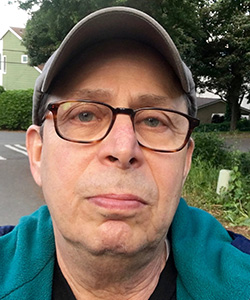 Steven FischlerSteven Fischler and Joel Sucher founded Pacific Street Films in 1971, and they have produced and directed documentary films for venues as diverse as the United Nations, the BBC and commercial and public television in the United States. These include portraits of Hollywood artists like Martin Scorsese, Oliver Stone and Jessica Lange, as well as investigations of police surveillance and misconduct. They are the recipients of numerous awards, including a Guggenheim Fellowship in Film, Emmy Awards, Cine Golden Eagles, and the John Grierson Award for Social Documentaries. Both the Museum of Modern Art and the Harvard Film Archives have honored Pacific Street Films with career retrospective programs.
Steven FischlerSteven Fischler and Joel Sucher founded Pacific Street Films in 1971, and they have produced and directed documentary films for venues as diverse as the United Nations, the BBC and commercial and public television in the United States. These include portraits of Hollywood artists like Martin Scorsese, Oliver Stone and Jessica Lange, as well as investigations of police surveillance and misconduct. They are the recipients of numerous awards, including a Guggenheim Fellowship in Film, Emmy Awards, Cine Golden Eagles, and the John Grierson Award for Social Documentaries. Both the Museum of Modern Art and the Harvard Film Archives have honored Pacific Street Films with career retrospective programs.
Steven Fischler was the director of the 2007 PBS-broadcast documentary, “Beyond Wiseguys: Italian Americans & The Movies” and the producer of “Dressing America: Tales From The Garment Center,” broadcast in 2014. Fischler wrote and directed the documentary, “Five Finger Discount: A Crooked Family History,” which had its broadcast premiere on Thirteen/WNET in March of 2017.
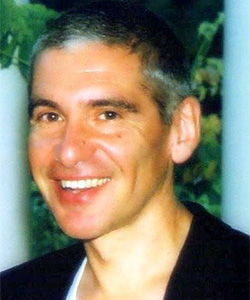 Joe SucherIn addition to his work with Pacific Street Films, Joel Sucher has written and blogged for a number of platforms including American Banker, In These Times, Huffington Post, Observer. com and medium.com/@joelsucher
Joe SucherIn addition to his work with Pacific Street Films, Joel Sucher has written and blogged for a number of platforms including American Banker, In These Times, Huffington Post, Observer. com and medium.com/@joelsucher
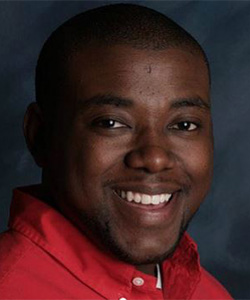 Charles L. Chavis, Jr. is Assistant Professor of Conflict Analysis and Resolution and History and Director of the Program for History, Justice and Racial Reconciliation, at the School for Conflict Analysis and Resolution at George Mason University. Before joining the S-CAR, he served as the Museum Coordinator for the Lillie Carroll Jackson Civil Rights Museum in Baltimore, Maryland. Dr. Chavis’s work focuses on the history of racial violence and civil rights activism and Black and Jewish relations in the American South. His areas of specialization include Civil Rights oral history, historical consciousness, and racial violence and reconciliation. He has received numerous grants, awards and fellowships and is the author of the upcoming book, “‘Maryland, My Maryland’: The Lynching of Matthew Williams and the Politics of Racism in the Free State” and editor of For the Sake of Peace: Africana Perspectives on Racism, Justice, and Peace in America (Rowman & Littlefield, 2019).
Charles L. Chavis, Jr. is Assistant Professor of Conflict Analysis and Resolution and History and Director of the Program for History, Justice and Racial Reconciliation, at the School for Conflict Analysis and Resolution at George Mason University. Before joining the S-CAR, he served as the Museum Coordinator for the Lillie Carroll Jackson Civil Rights Museum in Baltimore, Maryland. Dr. Chavis’s work focuses on the history of racial violence and civil rights activism and Black and Jewish relations in the American South. His areas of specialization include Civil Rights oral history, historical consciousness, and racial violence and reconciliation. He has received numerous grants, awards and fellowships and is the author of the upcoming book, “‘Maryland, My Maryland’: The Lynching of Matthew Williams and the Politics of Racism in the Free State” and editor of For the Sake of Peace: Africana Perspectives on Racism, Justice, and Peace in America (Rowman & Littlefield, 2019).
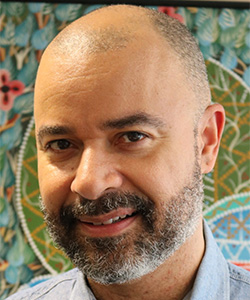 Brian Jones (moderator) is the Associate Director of Education at the Schomburg Center for Research in Black Culture. He recently completed a PhD in Urban Education at the City University of New York Graduate Center and is currently working on a book about the 1960s student uprising at Tuskegee Institute.
Brian Jones (moderator) is the Associate Director of Education at the Schomburg Center for Research in Black Culture. He recently completed a PhD in Urban Education at the City University of New York Graduate Center and is currently working on a book about the 1960s student uprising at Tuskegee Institute.
Ticket Info: $10 general;$7 seniors; $5 LBI/CJH/AJHS members at bpt.me/4100610 or 800-838-3006
Presented by:



film and discussion
lecture
Georgian Jews
At the Crossroads of Sephardic, Mizrahi, and Russian-Speaking Worlds: A Three-Part Learning and Cultural Series on the Greater Sephardic Communities of the Former Soviet Union
Back by popular demand, the American Sephardi Federation’s Young Sephardi Scholars Series is excited to once again host a 3-part learning and cultural series about the Russian-speaking Jewish (RSJ) communities of the Greater Sephardic world. The cultures and histories of Bukharian, Georgian, and Kavkazi (Mountain) Jews are situated at the fascinating, yet lesser known, intersection of RSJ, Sephardic and Mizrahi life. Led by Ruben Shimonov, this multimedia learning series will provide a unique opportunity to explore the multilayered and rich stories of the three communities.
Co-sponsored by JDC Entwine. This project was created as part of the COJECO BluePrint Fellowship, supported by COJECO and Genesis Philanthropy Group.
Light dinner reflecting the cuisine of Georgian Jews will be served
Ticket Info: $18 general; $36 for all 3 lectures at brownpapertickets.com/event/4064109 or 800-838-3006
Presented by:

lecture
panel discussion
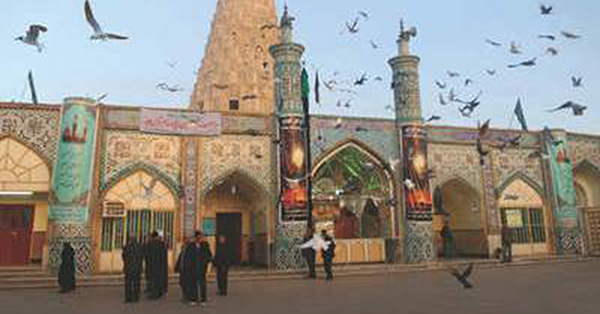
Iranian Jews Between Iran, Zion, and America
This talk with Leah Mirakhor (Yale University), Lior Sternfeld (Penn State University) and moderator Atina Grossman (Cooper Union) celebrates the new groundbreaking work of two social historians on Iranian Jewish life and community in the 20th century between immigrations and diasporas in Iran, Israel, and the U.S. The speakers will pay tribute to the work of HIAS in helping Jews immigrate and resettle in the U.S. in the years post the 1979 revolution in Iran.
About the Speakers:
Leah Mirakhor is Lecturer in Ethnicity, Race, and Migration (ER&M) and the Program in American Studies at Yale University. Mirakhor’s writing has appeared in The Yale Review, The Los Angeles Times, The Los Angeles Review of Books, African American Review, The James Baldwin Review, and Studies in American Jewish Literature. Mirakhor is the author of “After the Revolution to the War on Terror: Iranian Jewish American Literature in the United States,” which appeared in Studies in American Jewish Literature 35.1 (2016).
Lior Sternfeld is a social historian of the modern Middle East with particular interests in Jewish (and other minorities’) histories of the region. Sternfeld teaches at the Jewish Studies Program at Penn State University. Sternfeld’s new book, Between Iran and Zion: Jewish Histories of Twentieth Century Iran, examines the integration of the Jewish communities in Iran into the nation-building projects of the twentieth century. This book examines the development of the Iranian Jewish communities vis-à-vis ideologies and institutions such as Iranian nationalism, Zionism, and constitutionalism, among others.
Ticket Info: $10 general; $5 AJHS/ASF/CJH members, seniors, students at bpt.me/4051807 or 800-838-3006; $12 at the door
Presented by:



panel discussion
lecture
From Macy's to the Titanic – The Straus Family Legacy
Department store historian Michael Lisicky discusses how the Straus family rose from German-Jewish peddlers to merchant princes and major philanthropists before Isidor Straus's untimely death on the RMS Titanic.
Pop-up exhibition of Titanic memorabilia from the collections of the Straus Historical Society open from 5 pm.
Ticket Info: $10 general; $5 LBI/CJH/Partner members at straus-historical-society.bpt.me or 800-838-3006
Presented by:


lecture
art workshop
Transforming Haggadah Text into Textile
Create a fabric wall hanging or functional piece (such as a matza cover!) inspired by a favorite prayer, verse, quote – or words of your own. Class will be taught by fiber artist Heather Stoltz, whose quilted wall hangings and fabric sculptures are inspired by social justice issues and Hebrew texts.
Ticket Info: $8 general; $6 YUM/CJH/partner members, YU faculty/staff at https://artpassover.brownpapertickets.com or 800-838-3006
Presented by:

art workshop
lecture
Carnegie Hall’s Migrations Festival Comes to YIVO: The Musical Legacy of Eastern European Jews
Mark Slobin, acclaimed scholar of East European and American Jewish music, will discuss Carnegie Hall’s April 15th musical program, From Shtetl to Stage. He will use images and recordings and cover a range of Yiddish theater songs, novelty numbers, concert music and songs of social movements.
Ticket Info: $15 general; $10 YIVO members, students at yivo.org/Migrations-Festival or 917-606-8290
Presented by:

lecture
open house
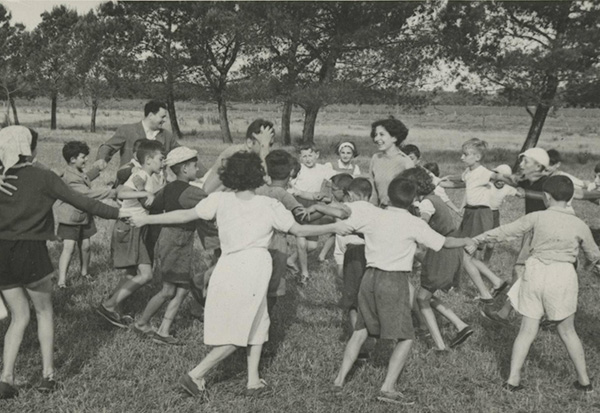
Educators Open House at the Center
Learn about educational programs for K-12 and for undergraduate students and participate in the interactive Teacher Professional Development workshops presenting method- and content-based approaches to teaching with primary sources. Get exclusive behind-the-scenes tours of our collection areas and timely exhibitions led by our expert staff.
Take home “Ready-to-Use” lesson plans and free access to online lessons and lectures. Learn how the CCSS and SSSS standards connect to the rich collections of our five partner organizations: YIVO Institute for Jewish Research, American Jewish Historical Society, Leo Baeck Institute, Yeshiva University Museum, and American Sephardi Federation.
Participation in the all activities of the Open House will be awarded with 2 CTLE credits.
Light refreshments will be served.
Ticket Info: Free; reservations required at openhouse.bpt.me or 800-838-3006
Presented by:

open house
concert
And All the Days Were Purple
Join us for the launch of and all the days were purple, a new album by composer Alex Weiser which features songs that set Yiddish and English poems to music which search for the divine while reflecting on the longing, beauty, and tumult of life.
Ticket Info: Free; reservations required at yivo.org/and-all-the-days-were-purple or 917-606-8290
Presented by:

concert
tour in yiddish
Lost & Found – A Family Photo Album
Join Yiddish literature scholar Ruth Wisse on a Yiddish-language tour of Lost & Found, exploring the remarkable story of a pre-war family photo album that was owned by a woman (Wisse’s aunt) who was deported from the Kovno Ghetto in 1943. Prior to her deportation, she smuggled the album to a non-Jewish Lithuanian family for safekeeping.
Ticket Info: $10 general; $5 seniors, students; free for YUM members, YU students, faculty, staff; registration required at https://lfyiddish.brownpapertickets.com or 800-838-3006
Presented by:



tour in yiddish
book talk
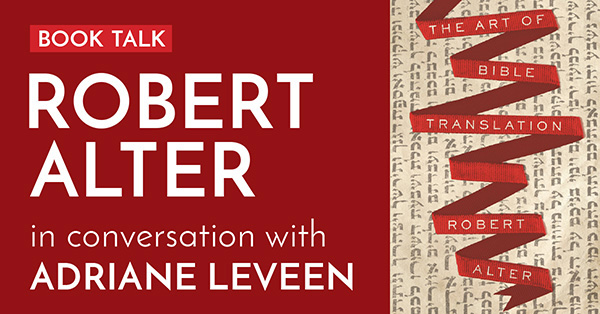
Award-winning biblical translator and acclaimed literary critic Robert Alter is the author of more than two dozen books including, most recently, The Hebrew Bible: A Translation with Commentary. A masterpiece of deep learning and fine sensibility, Robert Alter’s translation of the Hebrew Bible, now complete, reanimates one of the formative works of our culture. Capturing its brilliantly compact poetry and finely wrought, purposeful prose, Alter renews the Old Testament as a source of literary power and spiritual inspiration.
In his brief new book The Art of Bible Translation, Alter offers a personal and passionate account of what he learned about the art of Bible translation over the two decades he spent completing his own English version of the Hebrew Bible. Alter provides an illuminating and accessible introduction to biblical style that also offers insights about the art of translation far beyond the Bible. Adam Gopnik of The New Yorker called the book “hugely entertaining and irreverent.”
Alter will appear in conversation with Dr. Adriane Leveen, senior lecturer in Hebrew Bible at the Hebrew Union College Jewish Institute of Religion. Dr. Leveen received her Ph.D. in Hebrew Bible from the University of California at Berkeley under the supervision of Robert Alter. Dr. Leveen is a trained psychotherapist and practiced for 17 years in both Israel and the United States before getting her doctorate in biblical studies.
A reception, book sale, and signing will follow the program.
About the Speakers:
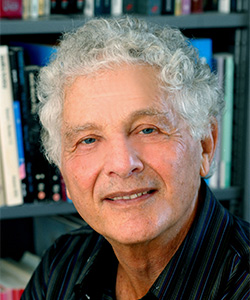 Robert Alter is professor of the Graduate School and emeritus professor of Hebrew and comparative literature at the University of California, Berkeley. He is the author of more than two dozen books, including The Hebrew Bible: A Translation with Commentary (Norton). He is the recipient of the Robert Kirsch Award for Lifetime Contribution to American Letters, among other awards, and lives in Berkeley, California.
Robert Alter is professor of the Graduate School and emeritus professor of Hebrew and comparative literature at the University of California, Berkeley. He is the author of more than two dozen books, including The Hebrew Bible: A Translation with Commentary (Norton). He is the recipient of the Robert Kirsch Award for Lifetime Contribution to American Letters, among other awards, and lives in Berkeley, California.
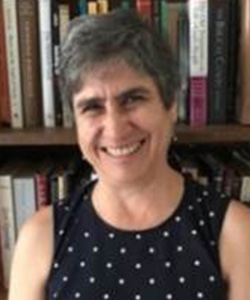 Adriane Leveen is Senior Lecturer in Hebrew Bible at Hebrew Union College-Jewish Institute of Religion, having previously taught at Stanford University. Her books include Biblical Narratives of Israelites and their Neighbors: Strangers at the Gate (2017) and Memory and Tradition in the Book of Numbers (2008). She has contributed to edited collections including The Oxford Handbook to Biblical Narrative (2016) and Torah in the Book of Numbers (2013).
Adriane Leveen is Senior Lecturer in Hebrew Bible at Hebrew Union College-Jewish Institute of Religion, having previously taught at Stanford University. Her books include Biblical Narratives of Israelites and their Neighbors: Strangers at the Gate (2017) and Memory and Tradition in the Book of Numbers (2008). She has contributed to edited collections including The Oxford Handbook to Biblical Narrative (2016) and Torah in the Book of Numbers (2013).
Presented by:

book talk
walking tour

Ladies Mile Walking Tour with Ephemeral New York’s Esther Crain
It sold out last fall, so our popular walking tour is back! Enjoy a storied stroll along Ladies Mile, a nine- block stretch once known for posh department stores and architectural grandeur. Join Esther Crain, writer of the award-winning Ephemeral New York blog, and author of The Gilded Age in New York, 1870-1910, as she weaves in Jewish stories and Gilded Age tales about the people and places that once populated these historic blocks.
About the Speaker:
 Esther Crain, a native New Yorker, is the author of The Gilded Age in New York, 1870-1910 (Hachette Books, 2016) and New York City in 3D in the Gilded Age (Black Dog and Leventhal, 2014). In 2008 she launched Ephemeral New York, a website that chronicles the city's past. Ephemeral New York has been featured in The New York Times, New York Daily News, New York Post, and other publications. She speaks regularly on topics relating to New York City history and conducts walking tours that explore New York's hidden pockets and little-known stories.
Esther Crain, a native New Yorker, is the author of The Gilded Age in New York, 1870-1910 (Hachette Books, 2016) and New York City in 3D in the Gilded Age (Black Dog and Leventhal, 2014). In 2008 she launched Ephemeral New York, a website that chronicles the city's past. Ephemeral New York has been featured in The New York Times, New York Daily News, New York Post, and other publications. She speaks regularly on topics relating to New York City history and conducts walking tours that explore New York's hidden pockets and little-known stories.
Ticket Info: $25 general; $20 CJH/Partner members, seniors, students at crain.bpt.me or 800-838-3006
Presented by:



walking tour
workshop
Family Genealogy Day: Exploring Family Photos
Session 1: 11:00am-12:30pm
Session 2: 1:30pm-3:00pm
(morning and afternoon sessions are identical)
Through a variety of hands-on activities for the whole family, find out how family photos can help you discover and document your family’s history. Search for informative clues within our family photo exhibitions, create a portrait collage of your family, color historical fashions that your ancestors may have worn, learn simple tips for preserving your family photos and scrapbooks, and more. We welcome explorers of all ages and abilities.
This program is presented in conjunction with the following exhibitions: Lost & Found – A Family Photo Album and All in the Family: Photographs from Across the Jewish World. On April 7, all Center for Jewish History exhibitions will be open from 11 AM – 5 PM. To learn more about our current exhibitions, please visit cjh.org/culture/exhibitions. Light refreshments will be served in the Great Hall. Please note that food and drinks are prohibited in all exhibition galleries.
>The Center for Jewish History and the American Jewish Historical Society are proud to partner with PJ Library for this and other upcoming family programs. PJ Library provides free books that celebrate Jewish values and culture to families with children 6 months through 8 years old. Sign up for PJ Library to receive the gift of Jewish books each month – at no cost to your family!
This program is supported, in part, by public funds from the New York City Department of Cultural Affairs in partnership with the City Council.
Ticket Info: Free; reservations required (must select Session 1 or 2) at familyday.bpt.me or 800-838-3006
Presented by:
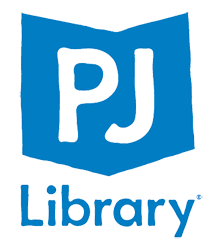




workshop
film
The City without Jews
Jews are hounded by mobs and driven from Vienna in this 1924 expressionist film based on the satirical novel by Hugo Bettauer. The sensational film that anticipated the Holocaust and cost Bettauer his life was rediscovered in 2015. With commentary by film scholar Noah Isenberg (UT Austin) and a live score.
Ticket Info: $10 general; $5 LBI/CJH/Partner members at citywithoutjews.bpt.me or 800-838-3006
Presented by:

film
book talk
A Rosenberg by Any Other Name: A History of Jewish Name Changing in America
Join author Kirsten Fermaglich in conversation with Jennifer Mendelsohn (Resistance Genealogy) to celebrate the publication of A Rosenberg by Any Other Name. A groundbreaking history of the practice of Jewish name changing in the 20th century, this book showcases just how much is in a name.
Ticket Info: $10 general; $5 AJHS/CJH members, seniors, students at bpt.me/4051795 or 800-838-3006; $12 at the door
Presented by:


book talk
concert
Israel and Eurovision 1973-2019
Featuring Israeli singers Ariella Edvy and Omer Shaish along with the MusicTalks Ensemble, this high-energy concert celebrates Israel’s participation in Europe’s iconic song competition. Host Elad Kabilio highlights Israel’s entries from past competitions, including winning songs such as “Abanibi,” “Hallelujah” and “Toy” by Netta Barzilai, last year’s winner.
Ticket Info: $15 general; $10 YUM members, other offers available at musictalksapril.brownpapertickets.com or 800-838-3006
Presented by:

concert
curator's tour
Kindertransport – Rescuing Children on the Brink of War
Join curator Ilona Moradof on a tour of Kindertransport – Rescuing Children on the Brink of War, illuminating the organized rescue efforts that brought thousands of children from Nazi Europe to Great Britain in the late 1930s. Explore the children’s difficult and often heartbreaking journeys through personal stories, artifacts and engaging media.
Ticket Info: $10 general; $5 seniors, students; free for YUM members, YU students, faculty, staff at ktcurator.brownpapertickets.com or 800-838-3006
Presented by:


curator's tour
book talk
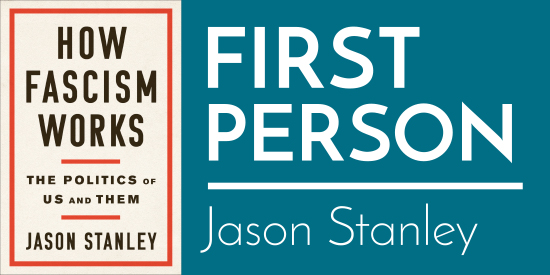
As a professor of philosophy at Yale, a scholar of propaganda, and the child of World War II Jewish Refugees, Jason Stanley understands how democratic societies can be vulnerable to fascism. Alarmed by the pervasive rise of fascist tactics both at home and around the globe, Stanley set out to analyze the language and beliefs that separate people into an “us” and a “them.” In his new book, How Fascism Works, The Politics of Us and Them, Stanley knits together reflections on history, philosophy, sociology, and critical race theory with stories from contemporary Hungary, Poland, India, Myanmar, and the United States, among other nations. In a fascinating First Person conversation, Stanley speaks with journalist Peter Beinart about the ten pillars of fascist politics, the recurring patterns he sees, and how his own family history influences his world view today.
A reception, book sale and signing follow the program.
This program is supported, in part, by public funds from the New York City Department of Cultural Affairs in partnership with the City Council.
About the Speakers:
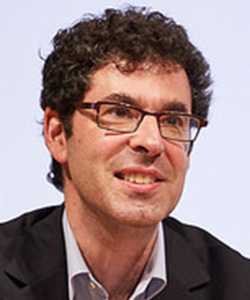 Jason Stanley is the Jacob Urowsky Professor of Philosophy at Yale University. He is the author of five books, including How Propaganda Works (Princeton, 2015), winner of the 2016 Prose Award in Philosophy from the Association of American Publishers, and How Fascism Works: The Politics of Us and Them (Random House, 2018), called by historian Jan T. Gross a “must-read for all of us who take seriously our responsibility as citizens.” Stanley serves on the board of the Prison Policy Initiative, and writes frequently about propaganda, free speech, mass incarceration, democracy, and authoritarianism for The New York Times, The Washington Post, Boston Review, The Chronicle of Higher Education, and Project Syndicate. http://www.jason-stanley.com/; @jasonintrator.
Jason Stanley is the Jacob Urowsky Professor of Philosophy at Yale University. He is the author of five books, including How Propaganda Works (Princeton, 2015), winner of the 2016 Prose Award in Philosophy from the Association of American Publishers, and How Fascism Works: The Politics of Us and Them (Random House, 2018), called by historian Jan T. Gross a “must-read for all of us who take seriously our responsibility as citizens.” Stanley serves on the board of the Prison Policy Initiative, and writes frequently about propaganda, free speech, mass incarceration, democracy, and authoritarianism for The New York Times, The Washington Post, Boston Review, The Chronicle of Higher Education, and Project Syndicate. http://www.jason-stanley.com/; @jasonintrator.
 Peter Beinart is Professor of Journalism and Political Science at the Craig Newmark Graduate School of Journalism at CUNY. He is currently a Contributor to The Atlantic, a Senior Columnist at the Forward, a CNN Political Commentator and a Non-Resident Fellow at the Foundation for Middle East Peace. Beinart has appeared on numerous television programs including Meet the Press and The Colbert Report and has written for The New York Times, The Wall Street Journal, the Financial Times, The Boston Globe, and Newsweek among other periodicals . Named Columnist of the Year by The Week Magazine in 2005, he is also author of three books: The Good Fight (HarperCollins, 2006); The Icarus Syndrome (HarperCollins, 2010); and The Crisis of Zionism, (Times Books, 2012). Editor of The New Republic from 1999-2006, Beinart graduated from Yale University and was a Rhodes Scholar.
Peter Beinart is Professor of Journalism and Political Science at the Craig Newmark Graduate School of Journalism at CUNY. He is currently a Contributor to The Atlantic, a Senior Columnist at the Forward, a CNN Political Commentator and a Non-Resident Fellow at the Foundation for Middle East Peace. Beinart has appeared on numerous television programs including Meet the Press and The Colbert Report and has written for The New York Times, The Wall Street Journal, the Financial Times, The Boston Globe, and Newsweek among other periodicals . Named Columnist of the Year by The Week Magazine in 2005, he is also author of three books: The Good Fight (HarperCollins, 2006); The Icarus Syndrome (HarperCollins, 2010); and The Crisis of Zionism, (Times Books, 2012). Editor of The New Republic from 1999-2006, Beinart graduated from Yale University and was a Rhodes Scholar.
Ticket Info: $15 general; $12 seniors; $10 CJH/Partner members at jasonstanley.bpt.me
Presented by:



book talk
conference
Immigration Matters: Jews, Other Immigrants and America
Immigration made America and its Jews. Historians will explore the Jewish stake in immigration as a historical matter and ask about the contemporary moment. Speakers include Maddalena Mariani, Joel Perlman, Randy Storch, Libby Garland, Hasia Diner and Carl Bon Tempo.
Ticket Info: Free; RSVP required at rsvp@ajhs.org
Presented by:

conference
concert
Stern College for Women New Music Ensemble-in-Residence
The Ensemble-in-Residence of Stern College for Women, Yeshiva University, performs the work of 20th-century and contemporary Jewish composers, including the premiere of Concertino No. 2 for clarinet.
Ticket Info: $10 general; $5 CJH/Partner members, seniors, students; free for YUM members, YU students, faculty, staff at sternmusic.brownpapertickets.com or 800-838-3006
Presented by:

concert
curator's talk
Lost & Found – A Family Photo Album
Join curator Jacob Wisse on a tour of Lost & Found, exploring the remarkable story of a pre-war family photo album that was owned by a woman who was deported from the Kovno Ghetto in 1943. Prior to her deportation, she smuggled the album to a non-Jewish Lithuanian family for safekeeping. After the album’s fortuitous discovery in 2013, it was reunited with the original owner’s descendants.
Ticket Info: $10 general; $5 seniors, students; free for YUM members, YU students, faculty, staff; registration required at fcurator.brownpapertickets.com or 800-838-3006
Presented by:

curator's talk
book launch
Avrom Goldfaden and the Rise of the Modern Yiddish Theater
The Rise of the Modern Yiddish Theater examines its origins, from roughly 1876 to 1883, through the works of one of its best-known and most colorful figures, Avrom Goldfaden. Join us for the launch of this book with a discussion of this rich theatrical tradition as well as the broader social life that its study sheds light on.
Ticket Info: Free; reservations required at yivo.org/Avrom-Goldfaden or 917-606-8290
Presented by:

book launch
lecture
Bukharian Jews
At the Crossroads of Sephardic, Mizrahi, and Russian-Speaking Worlds: A Three-Part Learning and Cultural Series on the Greater Sephardic Communities of the Former Soviet Union
Back by popular demand, the American Sephardi Federation’s Young Sephardi Scholars Series is excited to once again host a 3-part learning and cultural series about the Russian-speaking Jewish (RSJ) communities of the Greater Sephardic world. The cultures and histories of Bukharian, Georgian, and Kavkazi (Mountain) Jews are situated at the fascinating, yet lesser known, intersection of RSJ, Sephardic and Mizrahi life. Led by Ruben Shimonov, this multimedia learning series will provide a unique opportunity to explore the multilayered and rich stories of the three communities.
Co-sponsored by JDC Entwine. This project was created as part of the COJECO BluePrint Fellowship, supported by COJECO and Genesis Philanthropy Group.
Light dinner reflecting the cuisine of Bukharian Jews will be served.
Ticket Info: $18 general; $36 for all 3 lectures at brownpapertickets.com/event/4064109 or 800-838-3006
Presented by:

lecture
film screening and discussion
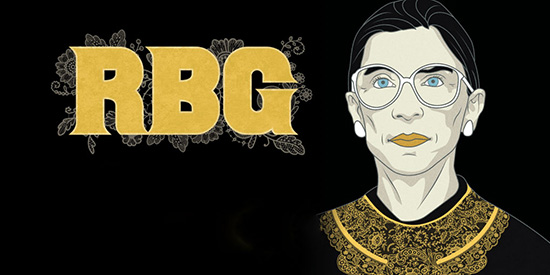
Born in 1933, U.S. Supreme Court Justice Ruth Bader Ginsburg developed a lengthy legal legacy while becoming an unexpected pop culture icon. But her unique, personal journey to a seat on the nation’s highest court was largely unknown, even to some of her biggest fans – until now. The Oscar nominated film, RBG explores Ginsberg’s fascinating life and brilliant career – from the young legal scholar who was shunned by law firms because of her gender, to the masterful appellate litigator who successfully argued before the Supreme Court for women’s rights, to the U.S. Supreme Court Justice.
Join MALA and the Center for Jewish History for a special screening and panel discussion of this critically acclaimed, award-winning documentary. Following the film, RBG Director/Producer Julie Cohen and Associate Producer Nadine Natour discuss their own fascinating journeys chronicling the life and career of Ruth Bader Ginsburg.
This program is supported, in part, by public funds from the New York City Department of Cultural Affairs in partnership with the City Council.
About the Speakers:
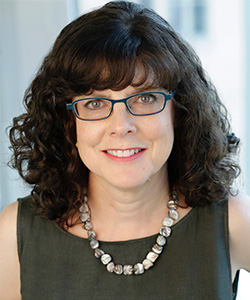 Julie Cohen has directed and produced nine feature documentaries, including RBG (Magnolia, Participant, CNN Films), The Sturgeon Queens (7th Art Releasing/PBS); and American Veteran (Freestyle). She has won a duPont Columbia Award, two Gracie Awards, three New York Emmy Awards and the 2017 Panavision Showcase Award for best New York filmmaker. Before she started making documentaries, Julie was a staff producer for Dateline NBC and the creator and producer of Supreme Court Watch on Court TV. She holds a B.A. from Colgate and masters’ degrees from Columbia Journalism School and Yale Law School.
Julie Cohen has directed and produced nine feature documentaries, including RBG (Magnolia, Participant, CNN Films), The Sturgeon Queens (7th Art Releasing/PBS); and American Veteran (Freestyle). She has won a duPont Columbia Award, two Gracie Awards, three New York Emmy Awards and the 2017 Panavision Showcase Award for best New York filmmaker. Before she started making documentaries, Julie was a staff producer for Dateline NBC and the creator and producer of Supreme Court Watch on Court TV. She holds a B.A. from Colgate and masters’ degrees from Columbia Journalism School and Yale Law School.
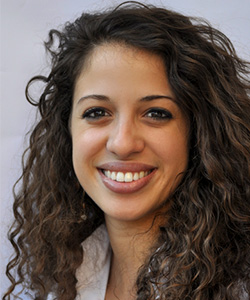 The associate producer of RBG, Nadine Natour has shot, field produced, and edited a feature-length doc, American Veteran (Freestyle Releasing; Winner of the G.I. Film Festival Founders Award and the Panavision Showcase Award), and co-edited The Sturgeon Queens (PBS: 2015 Berlinale Official Selection). She is a 2009 graduate of the University of Virginia and a 2012 graduate of the Columbia Journalism School and a 2012 – 2013 News Associate at NBC.
The associate producer of RBG, Nadine Natour has shot, field produced, and edited a feature-length doc, American Veteran (Freestyle Releasing; Winner of the G.I. Film Festival Founders Award and the Panavision Showcase Award), and co-edited The Sturgeon Queens (PBS: 2015 Berlinale Official Selection). She is a 2009 graduate of the University of Virginia and a 2012 graduate of the Columbia Journalism School and a 2012 – 2013 News Associate at NBC.
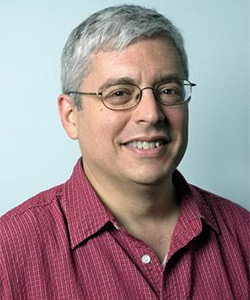 Paul M. Barrett (program moderator) joined the NYU Center for Business and Human Rights as deputy director in September 2017 after spending more than three decades as a journalist and author focusing on the intersection of business, law, and society. Most recently, Paul worked for 12 years for Bloomberg Businessweek magazine, and from 1986 to 2005, he wrote for The Wall Street Journal, serving as the newspaper’s Supreme Court correspondent and later as the page one special projects editor. He is the author of four critically acclaimed nonfiction books, the most recent of which are GLOCK: The Rise of America’s Gun (2012), a New York Times Bestseller, and Law of the Jungle: The $19 Billion Legal Battle Over Oil in the Rain Forest and the Lawyer Who’d Stop at Nothing to Win (2014). Both of those books have been optioned for Hollywood movies. An adjunct professor at New York University School of Law since 2008, Paul is married to RBG director Julie Cohen.
Paul M. Barrett (program moderator) joined the NYU Center for Business and Human Rights as deputy director in September 2017 after spending more than three decades as a journalist and author focusing on the intersection of business, law, and society. Most recently, Paul worked for 12 years for Bloomberg Businessweek magazine, and from 1986 to 2005, he wrote for The Wall Street Journal, serving as the newspaper’s Supreme Court correspondent and later as the page one special projects editor. He is the author of four critically acclaimed nonfiction books, the most recent of which are GLOCK: The Rise of America’s Gun (2012), a New York Times Bestseller, and Law of the Jungle: The $19 Billion Legal Battle Over Oil in the Rain Forest and the Lawyer Who’d Stop at Nothing to Win (2014). Both of those books have been optioned for Hollywood movies. An adjunct professor at New York University School of Law since 2008, Paul is married to RBG director Julie Cohen.
Ticket Info: $10 general; $7 senior; $5 CJH/MALA member at Eventbrite
Presented by:



film screening and discussion
workshop
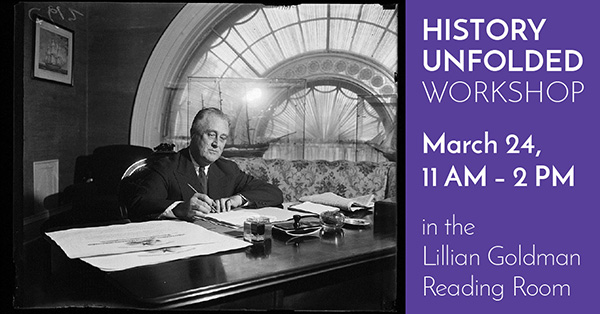
The Center for Jewish History is proud to host two History Unfolded Workshop Events on February 24th and March 24th, 2019 in collaboration with History Unfolded: US Newspapers and the Holocaust, a program of the United States Holocaust Memorial Museum (USHMM) in support of their upcoming exhibition on American reactions to the Holocaust. More on History Unfolded: https://www.ushmm.org/learn/history-unfolded
Citizen historians are invited to register for a research account on the History Unfolded website prior to visiting the Center for Jewish History to conduct research in newspaper collections and investigate US press coverage for specific Holocaust events.
Participants will gain hands-on instruction for using online tools to search for newspaper articles as well as physically handling collections. These workshops help the Holocaust Memorial Museum to discover what Americans knew and how they responded to news of Nazi persecution. Users can submit their findings to the USHMM’s online database which will be available to anyone, anywhere—from historians to curators to students.
Ticket Info: Free; reservations required at www.brownpapertickets.com/event/4069416 or 800-838-3006
Presented by:

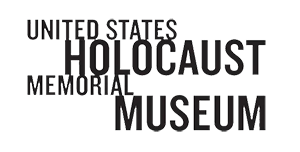
workshop
lecture
Life Under the Tsars: Registration, Residence, and Exit Routes
To help trace our families before their departure from the Russian Empire, genealogist Alan Shuchat will discuss the system of registration and residence permits under the Tsars, the different social estates, and the process of obtaining steamship tickets and travel from the shtetls to the ports.
Ticket Info: $5 at the door; free for JGS members
Presented by:

lecture
book talk
Sarah Schenirer and Bais Yaakov: A Revolution in the Name of Tradition
This program will explore the emergence of the Bais Yaakov schools in interwar Poland, when it grew from a one-room school in Sarah Schenirer's living quarters to a school system with over 200 schools, 36,000 students, and an international reach.
Ticket Info: Free; reservations required at yivo.org/Bais-Yaakov or 917-606-8290
Presented by:


book talk
concert
Bach Turns 333! Phoenix Chamber Ensemble Celebrates Bach's Birthday
The program includes two Bach keyboard concerti, in D minor (BWV 1052) and G minor (BWV 1058) with a string quartet; and the F-minor concerto (BWV 1056) - 1 piano 4-hand version; Martinu’s three Madrigals for violin and viola; and Handel’s Halvorsen Passacaglia for violin and cello.
Made possible by Stravinsky Institute Foundation through the generous support of Blavatnik Family Foundation.
Ticket Info: $15 general; $12 seniors; $10 CJH/Partner members, students at bachbirthday.bpt.me or 800-838-3006
Presented by:

concert
lecture
Searching for Survivors: the Fate of the St. Louis Passengers
On the occasion of the 80th Anniversary of the St. Louis’ fateful voyage from Hamburg, Germany, the JDC Archives and the American Jewish Historical Society invite you to a special public program:
Eighty years ago, in early June of 1939, the St. Louis, a passenger ship carrying 937 people – almost all of them Jews fleeing Nazi Germany – was denied entry into both Cuba and the United States. With no refuge in sight, the St. Louis was forced to sail back to Europe. The fates of its passengers, however, remained an unsolved mystery for over sixty years.
Scott Miller, former Director of Curatorial Affairs at the United States Holocaust Memorial Museum, will discuss his decades-long search to uncover the fate of every passenger from this tragic journey and JDC’s historic role in striving to rescue them.
Scott Miller was a founding staff member of the United States Holocaust Memorial Museum, where he worked for 30 years and now serves as a consultant on special acquisitions for the Holocaust Museum’s National Institute for Holocaust Documentation. He is the co-author with Sarah Ogilvie of Refuge Denied – The St. Louis Passengers and the Holocaust, the story of their search for the St. Louis passenger
Ticket Info: Free; reservations required at /www.eventbrite.com/e/searching-for-survivors-the-fate-of-the-st-louis-passengers-tickets-56111513046 or 800-838-3006
Presented by:

lecture
film and discussion
Black Honey: The Life and Poetry of Avraham Sutzkever
Black Honey: The Life and Poetry of Avraham Sutzkever (2018) recounts the story of one of the greatest Yiddish poets who became a symbol of national resistance and creative survival. The film, which complements YUM’s exhibition Lost & Found – A Family Photo Album, will be followed by a discussion with Yiddish literature scholar Ruth Wisse about the poet’s writing and legacy.
Ticket Info: $10 general; $5 YUM/YIVO members at sutzkever.brownpapertickets.com or 800-838-3006
Presented by:


film and discussion
family program
Children’s Day
Join us for our annual Children’s Day, where visitors of all ages will enjoy a wonderful selection of Purim-themed activities and performances. This year’s program will have something for everybody – sing-alongs of Yiddish folk staples, a magic show, and delicious treats, among other activities – to enjoy.
Ticket Info: Free; reservations required at yivo.org/ChildrensDay2019 or 917-606-8290
Presented by:

family program
film
My Knees Were Jumping—Remembering the Kindertransports
Join director Melissa Hacker and NPR journalist Uri Berliner to watch and discuss the first documentary film to tell the heart-wrenching story of the Kindertransports. After the screening, Hacker and Berliner will talk about how the Kindertransport affected their own family histories.
Ticket Info: $10 general; $5 LBI/YUM/CJH/Partner members at kindertransportfilm.bpt.me or 800-83-3006
Presented by:


film
book talk
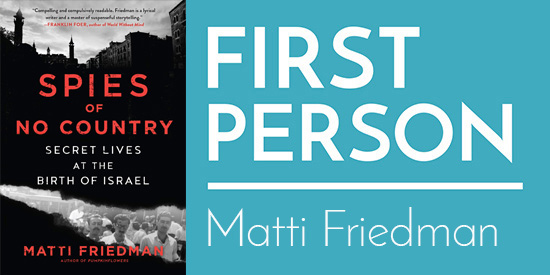
Matti Friedman’s new book, Spies of No Country: Secret Lives at the Birth of Israel tells the unknown story of four of Israel’s first spies. Recruited by a rag-tag outfit called the Arab Section before the 1948 War of Independence, they assumed Arab identities to gather intelligence and carry out sabotage and assassinations. At the height of the war the spies posed as refugees fleeing the fighting, reached Beirut, and set up what became Israel’s first foreign intelligence station. Spies not only tells a breathtaking and true espionage story, it also explores a different story about how the state was founded and raises many questions that are relevant today.
In a wide-ranging First Person conversation, Matti Friedman speaks with author Lucette Lagnado (The Man in the White Sharkskin Suit) about his journalism career, researching and writing his new book, and what Spies of No Country reveals about Israel in the 20th and 21st centuries.
A reception, book sale and signing follow the program.
This program is supported, in part, by public funds from the New York City Department of Cultural Affairs in partnership with the City Council.
About the Speakers:
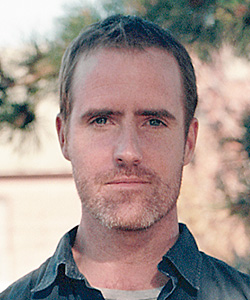 Credit: Mary AndersonMatti Friedman has reported from Israel, Lebanon, Morocco, Moscow, the Caucasus, and Washington, DC. A former Associated Press correspondent, he is a contributor to The New York Times Op-Ed Page, and his writing has appeared in publications including The Wall Street Journal, the Washington Post, and Tablet. Matti’s 2016 book Pumpkinflowers: A Soldier’s Story of a Forgotten War was chosen as a New York Times’ Notable Book and as one of Amazon’s 10 best books of the year. Pumpkinflowers was selected as one of the year’s best by Booklist, Mother Jones, Foreign Affairs, the National Post, and The Globe and Mail. It won the 2017 Vine Award for Canadian Jewish literature, the Canadian Jewish Literary Award for memoir, and was shortlisted for the 2017 RBC Taylor Prize, the Writer’s Trust Prize, and the Yitzkak Sadeh Prize for military writing (Israel). Matti’s first book, The Aleppo Codex, an investigation into the strange fate of an ancient Bible manuscript, won the 2014 Sami Rohr Prize, the ALA’s Sophie Brody Medal, and the Canadian Jewish Book Award for history. It was translated into seven languages. Matti was born in Toronto and lives in Jerusalem with his family.
Credit: Mary AndersonMatti Friedman has reported from Israel, Lebanon, Morocco, Moscow, the Caucasus, and Washington, DC. A former Associated Press correspondent, he is a contributor to The New York Times Op-Ed Page, and his writing has appeared in publications including The Wall Street Journal, the Washington Post, and Tablet. Matti’s 2016 book Pumpkinflowers: A Soldier’s Story of a Forgotten War was chosen as a New York Times’ Notable Book and as one of Amazon’s 10 best books of the year. Pumpkinflowers was selected as one of the year’s best by Booklist, Mother Jones, Foreign Affairs, the National Post, and The Globe and Mail. It won the 2017 Vine Award for Canadian Jewish literature, the Canadian Jewish Literary Award for memoir, and was shortlisted for the 2017 RBC Taylor Prize, the Writer’s Trust Prize, and the Yitzkak Sadeh Prize for military writing (Israel). Matti’s first book, The Aleppo Codex, an investigation into the strange fate of an ancient Bible manuscript, won the 2014 Sami Rohr Prize, the ALA’s Sophie Brody Medal, and the Canadian Jewish Book Award for history. It was translated into seven languages. Matti was born in Toronto and lives in Jerusalem with his family.
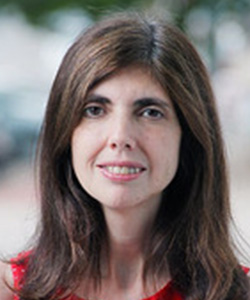 Born in Cairo, Lucette Lagnado is a cultural and investigative reporter for the Wall Street Journal, where she has received numerous prizes for her work. She and her family left Egypt as refugees when she was a small child, an experience that helped shape and inform her recent memoirs, The Arrogant Years and The Man in the White Sharkskin Suit (Ecco/HarperCollins). In 2008, she was the recipient of the Sami Rohr Prize for Jewish Literature for The Man in the White Sharkskin Suit. She is also the coauthor of Children of the Flames: Dr. Josef Mengele and the Untold Story of the Twins of Auschwitz, which has been translated into nearly a dozen languages. Lagnado resides with her husband, journalist Douglas Feiden, in Manhattan and Sag Harbor, New York.
Born in Cairo, Lucette Lagnado is a cultural and investigative reporter for the Wall Street Journal, where she has received numerous prizes for her work. She and her family left Egypt as refugees when she was a small child, an experience that helped shape and inform her recent memoirs, The Arrogant Years and The Man in the White Sharkskin Suit (Ecco/HarperCollins). In 2008, she was the recipient of the Sami Rohr Prize for Jewish Literature for The Man in the White Sharkskin Suit. She is also the coauthor of Children of the Flames: Dr. Josef Mengele and the Untold Story of the Twins of Auschwitz, which has been translated into nearly a dozen languages. Lagnado resides with her husband, journalist Douglas Feiden, in Manhattan and Sag Harbor, New York.
Ticket Info: $15 general; $12 seniors, $10 members and students at friedman.bpt.me or 800-838-3006
Presented by:




book talk
art workshop
Assemblage Portraiture in the Spirit of Purim
Multi-media artist Deborah Yasinsky will lead participants in a portraiture workshop, using recycled, non-traditional materials to create a richly textured image with hidden elements! Learn new techniques and explore the idea of hiddenness (hester panim) in the holiday of Purim.
Ticket Info: $8 general; $6 YUM/CJH/Partner members, YU faculty/staff at artpurim.brownpapertickets.com or 800-838-3006
Presented by:

art workshop
concert
Al Naharot Bavel (By the Waters of Babylon): Jewish Musicians at the Courts of England and Italy
NYC ensembles ARTEK and PARTHENIA offer a concert of music by Jewish composers of the Renaissance and early baroque, in Italy and England.
Ticket Info: $25 general; $15 YUM/CJH members at gemsny.org/events/parthenia
Presented by:

concert
curator's tour
Kindertransport – Rescuing Children on the Brink of War
Join curator Ilona Moradof on a tour of Kindertransport – Rescuing Children on the Brink of War, illuminating the organized rescue efforts that brought thousands of children from Nazi Europe to Great Britain in the late 1930s. Explore the children’s difficult and often heartbreaking journeys through personal stories, artifacts and engaging media.
Ticket Info: $10 general; $5 seniors, students; free for YUM members, YU students, faculty, staff at ktcurator.brownpapertickets.com or 800-838-3006
Presented by:


curator's tour
book launch and panel discussion
America's Jewish Women: A History from Colonial Times to Today
On the day of publication, join us in launching Pamela Nadell’s America's Jewish Women. A groundbreaking history of how Jewish women have maintained their identity and influenced social activism as they wrote themselves into American history. Panelists include author Pamela Nadell, Barbara Dobkin (Ma’yan) and Jane Eisner.
Ticket Info: $10 general; $5 AJHS members, seniors, students at bpt.me/4050766 or 800-838-3006; $12 at the door
Presented by:

book launch and panel discussion
concert
PLEASE NOTE: Cancelled due to pending extreme weather
The Land of Israel – in Song
Israeli singer Ariella Edvy and the MusicTalks Ensemble embark on a musical journey through Israel’s diverse sites and environments – from the Sea of Galilee to the Dead Sea, from bustling cities to agricultural kibbutzim. Through an array of vivid site-specific songs, host Elad Kabilio offers up a fresh auditory experience of the landscape of Israel.
Ticket Info: $15 general; $10 YUM members; other offers available at musictalksmarch.brownpapertickets.com or 800-838-3006
Presented by:

concert
not just funny girl: jewish american women in comedy
Happy Birthday, Molly! Celebrate East and West and Other Migrating Identities
Live score and film screening of the silent classic East and West (1923) featuring the composer of the original score for the 1991 remastered film, Pete Sokolow, and musician Michael Winograd (Sandaraa), celebrating the 121st birthday of Molly Picon.
Ticket Info: $15 general; $10 AJHS/CJH/YIVO members, seniors, students at bpt.me/3739449 or 800-838-3006; $18 at the door
Presented by:



not just funny girl: jewish american women in comedy
panel discussion
Is America Different? Anti-Semitism in the United States
Panel Discussion with Lila Corwin Berman (Temple University), Tony Michels (University of Wisconsin-Madison) and Jonathan Sarna (Brandeis University). Moderated by Samuel G. Freedman (Columbia University).
In the wake of the murderous attack on Pittsburgh’s Tree of Life Synagogue, anti-Semitism in America fosters debate. To what extent is America different from diaspora countries? Do more recent events warrant a change in our understanding, or is this part of longer patterns? Join award-winning historians Lila Corwin Berman, Tony Michels and Jonathan Sarna for a conversation that covers recent events but is also rooted in history. Documents and images from the AJHS archives will punctuate the conversation.
Ticket Info: $10 general; $5 AJHS members, students, seniors at bpt.me/3913927 or 800-838-3006; $12 at the door
Presented by:

panel discussion
the american sephardi music festival
Journey in Judeo-Arabic Songs
Moroccan Star Rachid Halihal and His Andalusian Orchestra – Journey in Judeo-Arabic Songs from Andalusia to Moroccan classics.
Join us for more sophisticated Sephardic sounds by world-renowned artists in the Sephardic and world music genres during the 2nd ASF session. Artistic direction by David Serero.
Ticket Info: $20 and up at asfmusicfestival2019.bpt.me or 800-838-3006
Presented by:

the american sephardi music festival
panel discussion
Looking In, Speaking Out: Commemorating the Khojaly Tragedy
The Khojaly Tragedy occurred on 26 February 1992 when Armenian military forces killed 613 Azerbaijani citizens in the town of Khojaly, Azerbaijan. This year, MALA and ASF will commemorate Khojaly by creating a space for learning, remembrance, and dialogue about ending ethnic cleansing and genocide of all kinds. MALA and ASF will bring in a panel of guest speakers to facilitate a discussion about identity, erasure, genocide, and memory in the light of the 27th anniversary of the Khojaly Tragedy.
Genocide and ethnic cleansings so often begin with the erasure of histories, heritage, and the silencing of voices. MALA and the ASF are committed to building platforms for individuals and communities to share their histories and learn collectively through our profound individual stories. By holding in memory some of the most somber moments in history, we increase our ability, as a community, to work towards a unified future.
Please join us as we stand in solidarity to remember those whose lives were lost. Let us strive to build our communities with an understanding of the past to ensure a better tomorrow.
Ticket Info: $10 at eventbrite.com
Presented by:


panel discussion
the american sephardi music festival
Azerbaijan Evening – In memory of the Khojaly Massacre
Jeffrey Werbock, a world renowned musician will perform Traditional Azerbaijani Instrumental Mughal Music in tribute to the Khojaly Tragedy.
Join us for more sophisticated Sephardic sounds by world-renowned artists in the Sephardic and world music genres during the 2nd ASF session. Artistic direction by David Serero.
Ticket Info: $20 and up at asfmusicfestival2019.bpt.me or 800-838-3006
Presented by:

the american sephardi music festival
workshop
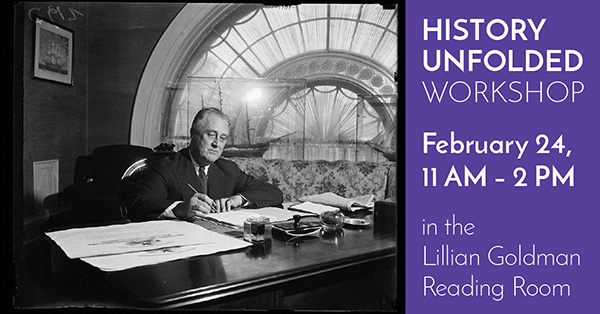
The Center for Jewish History is proud to host two History Unfolded Workshop Events on February 24th and March 24th, 2019 in collaboration with History Unfolded: US Newspapers and the Holocaust, a program of the United States Holocaust Memorial Museum (USHMM) in support of their upcoming exhibition on American reactions to the Holocaust. More on History Unfolded: https://www.ushmm.org/learn/history-unfolded
Citizen historians are invited to register for a research account on the History Unfolded website prior to visiting the Center for Jewish History to conduct research in newspaper collections and investigate US press coverage for specific Holocaust events.
Participants will gain hands-on instruction for using online tools to search for newspaper articles as well as physically handling collections. These workshops help the Holocaust Memorial Museum to discover what Americans knew and how they responded to news of Nazi persecution. Users can submit their findings to the USHMM’s online database which will be available to anyone, anywhere—from historians to curators to students.
Ticket Info: Free; reservations required at ,a href="https://www.brownpapertickets.com/event/4069416" target="_blank">www.brownpapertickets.com/event/4069416 or 800-838-3006
Presented by:


workshop
lecture
Lublin’s “Grodzka Gate-NN Theatre” and the 43 Thousand Project: Documenting an Entire Lost Jewish Community of Lublin, One Individual at a Time
Olivier Szlos will present the work of Lublin’s “Grodzka Gate-NN Theatre” Centre to reclaim Jewish memory in the Lublin region of Poland, with its 43 Thousand Project, by exploring archives, personal testimonies and private collections to retrieve names, photos, documents and stories, and provide a hands-on approach to the project’s public access database that might add to your family research.
Ticket Info: $5 at the door; free for JGS members
Presented by:


lecture
the american sephardi music festival
Tango Shalom
Paboli Zinger and Nicole Murad perform Tango Shalom – Jewish tangos from all over the world!
Join us for more sophisticated Sephardic sounds by world-renowned artists in the Sephardic and world music genres during the 2nd ASF session. Artistic direction by David Serero.
Ticket Info: $20 and up at asfmusicfestival2019.bpt.me or 800-838-3006
Presented by:

the american sephardi music festival
the american sephardi music festival
Cantor Shiree Kidron
Cantor Shiree Kidron – Musical pearls of Sepharad
Join us for more sophisticated Sephardic sounds by world-renowned artists in the Sephardic and world music genres during the 2nd ASF session. Artistic direction by David Serero.
Ticket Info: $20 and up at asfmusicfestival2019.bpt.me or 800-838-3006
Presented by:

the american sephardi music festival
family history today: genealogy programs at the center
Genealogy Lecture for Sephardi and Mizrahi Families
Curious about family history outside of the Pale of Settlement? J.D. Arden, Genealogy Librarian at the Center for Jewish History, will provide an overview of tools for researching Jewish community records and Jewish life in the Sephardi and Mizrahi Diaspora.
This program is supported, in part, by public funds from the New York City Department of Cultural Affairs in partnership with the City Council.
Ticket Info: Free; reservations required at bpt.me/3909846 or 800-838-3006
Presented by:


family history today: genealogy programs at the center
concert
Composer Karol Rathaus and His Circle
A concert of Karol Rathaus’ (1895-1954) chamber music by seven distinguished New York performers, and a roundtable discussion, with Drs. Leon Botstein and Michael Hass, about Rathaus and his circle, whose promising compositional careers were derailed by the Nazis.
Ticket Info: $18 general; $12 AJHS/ASJM/CJH members; $9 seniors, students at bpt.me/3913945 or 800-838-3006
Presented by:

concert
lecture
Kavkazi (Mountain) Jews
At the Crossroads of Sephardic, Mizrahi, and Russian-Speaking Worlds: A Three-Part Learning and Cultural Series on the Greater Sephardic Communities of the Former Soviet Union.
Back by popular demand, the American Sephardi Federation’s Young Sephardi Scholars Series is excited to once again host a 3-part learning and cultural series about the Russian-speaking Jewish (RSJ) communities of the Greater Sephardic world. The cultures and histories of Bukharian, Georgian, and Kavkazi (Mountain) Jews are situated at the fascinating, yet lesser known, intersection of RSJ, Sephardic and Mizrahi life. Led by Ruben Shimonov, this multimedia learning series will provide a unique opportunity to explore the multilayered and rich stories of the three communities.
Co-sponsored by JDC Entwine. This project was created as part of the COJECO BluePrint Fellowship, supported by COJECO and Genesis Philanthropy Group.
Light dinner reflecting the cuisine of Kavkazi Jews will be served.
Ticket Info: $18 general; $36 for all 3 lectures at https://www.brownpapertickets.com/event/4064109 or 800-838-3006
Presented by:

lecture
concert
Music in Our Time 2019
The combined choirs of Hebrew Union College-Jewish Institute of Religion and the Jewish Theological Seminary present an array of exciting Jewish choral music from noted composers of the 20th century (including some important birthday anniversaries) and their 21st-century colleagues.
Ticket Info: $18 general; $12 AJHS/ASJM/CJH members; $9 seniors, students at bpt.me/3913939 or 800-838-3006
Presented by:

concert
concert & multimedia presentation
Andy Statman and Zev Feldman: Klezmer Pioneers Reunited!
This special program reunites the legendary klezmer duo of Andy Statman (clarinet/mandolin) and Walter Zev Feldman (tsimbl/hammered dulcimer) for the first time in 35 years! The evening will include a performance and multimedia presentation celebrating the duo’s work in the 1970s with legendary klezmer clarinetist Dave Tarras and other important immigrant musicians.
Ticket Info: $15 general; $10 YIVO members, students at yivo.org/Klezmer-Pioneers
Presented by:

concert & multimedia presentation
book talk
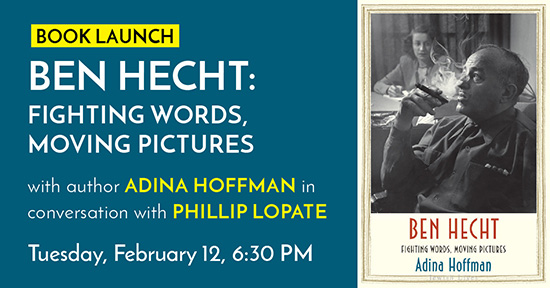
Pauline Kael called him “the greatest American screenwriter.” Jean-Luc Godard said he was “a genius” who “invented 80% of what is used in Hollywood movies today.” With credits that include Scarface, Twentieth Century and Notorious, novelist, reporter, and playwright Ben Hecht also emerged during WWII as an outspoken crusader for the imperiled Jews of Europe and later became a fierce propagandist for pre-1948 Palestine’s Jewish terrorist underground. Adina Hoffman speaks with Phillip Lopate about her new biography of this charismatic and contradictory figure, who came to embody much that defined America—especially Jewish America—in his time. Book sales and signing follow the program.
About the Speakers:
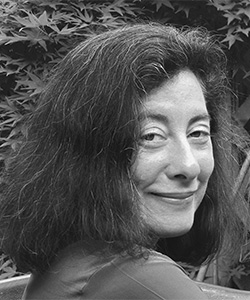 Adina Hoffman is the author of House of Windows: Portraits from a Jerusalem Neighborhood, Till We Have Built Jerusalem: Architects of a New City, and My Happiness Bears No Relation to Happiness: A Poet’s Life in the Palestinian Century, which was named one of the best twenty books of 2009 by the Barnes & Noble Review, one of the top ten biographies of the year by Booklist, and won the UK’s 2010 Jewish Quarterly-Wingate Prize. She is also the author, with Peter Cole, of Sacred Trash: The Lost and Found World of the Cairo Geniza, which was awarded the American Library Association’s award for the Jewish Book of the Year. Formerly a film critic for the American Prospect and the Jerusalem Post, she is Guggenheim Foundation Fellow and was named one of the inaugural (2013) winners of the Windham Campbell prize for literature. She lives in Jerusalem and New Haven.
Adina Hoffman is the author of House of Windows: Portraits from a Jerusalem Neighborhood, Till We Have Built Jerusalem: Architects of a New City, and My Happiness Bears No Relation to Happiness: A Poet’s Life in the Palestinian Century, which was named one of the best twenty books of 2009 by the Barnes & Noble Review, one of the top ten biographies of the year by Booklist, and won the UK’s 2010 Jewish Quarterly-Wingate Prize. She is also the author, with Peter Cole, of Sacred Trash: The Lost and Found World of the Cairo Geniza, which was awarded the American Library Association’s award for the Jewish Book of the Year. Formerly a film critic for the American Prospect and the Jerusalem Post, she is Guggenheim Foundation Fellow and was named one of the inaugural (2013) winners of the Windham Campbell prize for literature. She lives in Jerusalem and New Haven.
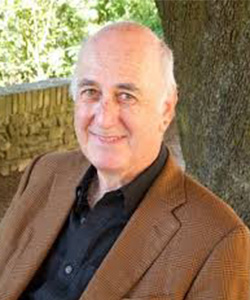 Phillip Lopate has written four personal essay collections, two novels, a pair of novellas, and three poetry collections, among many other published works. His latest book is the memoir, A Mother’s Tale, (OSU Press, 2017). Mr. Lopate has received numerous awards including a John Simon Guggenheim Fellowship, a New York Public Library Center for Scholars and Writers Fellowship, two National Endowment for the Arts grants, and two New York Foundation for the Arts grants. A Brooklyn native, he is a professor at Columbia University’s School of the Arts, where he teaches nonfiction writing.
Phillip Lopate has written four personal essay collections, two novels, a pair of novellas, and three poetry collections, among many other published works. His latest book is the memoir, A Mother’s Tale, (OSU Press, 2017). Mr. Lopate has received numerous awards including a John Simon Guggenheim Fellowship, a New York Public Library Center for Scholars and Writers Fellowship, two National Endowment for the Arts grants, and two New York Foundation for the Arts grants. A Brooklyn native, he is a professor at Columbia University’s School of the Arts, where he teaches nonfiction writing.
Ticket Info: $15 general; $12 seniors; $10 CJH/Partner members, students at hecht.bpt.me or 800-838-3006
Presented by:


book talk
sephardic music festival: scholar series
International Ladino Day: A Celebration of Words and Music
Celebrate a remarkable language, Ladino (Judeo-Spanish). Hear clarinetist Danny Elias; author Jane Mushabac; scholar Bryan Kirschen (Binghamton); storyteller Rabbi Nissim Elnecavé; composer Avi Amon on his musical fantasy, Salonika; and Alhambra Sephardic Ensemble, with oud, violin, shawm, dumbek and voices.
Ticket Info: $15 general at https://www.brownpapertickets.com/event/3909171 or 800-838-3006
Presented by:


sephardic music festival: scholar series
book talk
Motor City Music: A Detroiter Looks Back
Marc Slobin discusses his recently published Motor City Music: A Detroiter Looks Back (Oxford University Press, 2018). Motor City Music examines the melting pot of musical life throughout Detroit.
Ticket Info: Free; reservations required at yivo.org/motorcity
Presented by:

book talk
short talks on big subjects
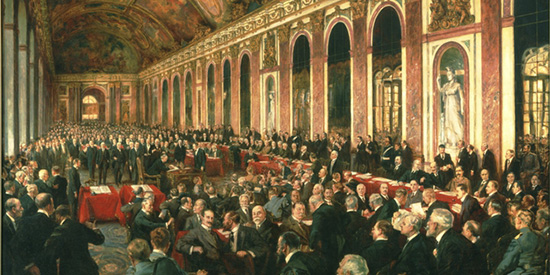
The Treaty of Versailles with Michael Neiberg
Collection of the Australian War Memorial
The Treaty of Versailles ended more than the First World War. By putting a final end to the German, Austro-Hungarian, Russian and Ottoman Empires it also raised questions about the future of the Jews who lived in those empires. In our continuing series, Short Talks on Big Subjects, Michael S. Neiberg, author of The Treaty of Versailles: A Very Short Introduction, discusses the watershed events of 1916-1919 and their connection to the Jewish people today. Book included with admission and a book signing follows the program.
About the Speaker:
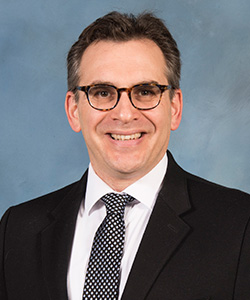 Considered one of the “foremost thinkers about the First World War,” Michael Neiberg is a Professor of History and Chair of War Studies at the United States Army War College in Carlisle, Pennsylvania, where he teaches history, strategy, and international relations to American and international security professionals. His published work specializes on the First and Second World Wars in global context. The Wall Street Journal named his Dance of the Furies: Europe and the Outbreak of World War I one of the five best books ever written about that war. In October 2016 Oxford University Press published his Path to War, a history of American responses to the Great War in Europe, 1914-1917 and in July 2017 Oxford published his Concise History of the Treaty of Versailles. In 2017 he was awarded the Médaille d'Or du Rayonnement Culturel from Renaissance Française, an organization founded by French President Raymond Poincaré in 1915 to keep French culture alive during the First World War.
Considered one of the “foremost thinkers about the First World War,” Michael Neiberg is a Professor of History and Chair of War Studies at the United States Army War College in Carlisle, Pennsylvania, where he teaches history, strategy, and international relations to American and international security professionals. His published work specializes on the First and Second World Wars in global context. The Wall Street Journal named his Dance of the Furies: Europe and the Outbreak of World War I one of the five best books ever written about that war. In October 2016 Oxford University Press published his Path to War, a history of American responses to the Great War in Europe, 1914-1917 and in July 2017 Oxford published his Concise History of the Treaty of Versailles. In 2017 he was awarded the Médaille d'Or du Rayonnement Culturel from Renaissance Française, an organization founded by French President Raymond Poincaré in 1915 to keep French culture alive during the First World War.
Ticket Info: $20 general; $18 seniors; $15 CJH/Partner members, students at versailles.bpt.me or 800-838-3006
Presented by:



short talks on big subjects
curator's tour
Kindertransport – Rescuing Children on the Brink of War
Join curator Ilona Moradof on a tour of Kindertransport – Rescuing Children on the Brink of War, illuminating the organized rescue efforts that brought thousands of children from Nazi Europe to Great Britain in the late 1930s. Explore the children’s difficult and often heartbreaking journeys through personal stories, artifacts and engaging media.
Ticket Info: $10 general; $5 seniors, students; free for YUM members, YU students, faculty, staff at kindertransport.bpt.me/3918592 or 800-838-3006
Presented by:


curator's tour
book talk & live podcast recording
Michael Walzer Discussion with the Tel Aviv Review
Join us for an in-depth conversation between eminent author and scholar Michael Walzer and the Tel Aviv Review podcast’s Gilad Halpern, where they will be discussing Walzer’s new critically-acclaimed book A Foreign Policy for the Left. Originally adapted from a selection of Walzer’s writings previously published in the quarterly Dissent, A Foreign Policy for the Left requires leftists to reevaluate presumed ideologies regarding today's international affairs.
Ticket Info: $15 general; $10 YIVO members, students at yivo.org/Tel-Aviv-Review or 917-606-8290
Presented by:

book talk & live podcast recording
book talk
Love and Strife: A Celebration of Saul Bellow Life and Storytelling
Join us for a celebration of the publication of the highly acclaimed Zachary Leader’s The Life of Saul Bellow: Love and Strife, 1965-2005, volumes 1 and 2, in discussion with Marc Cohen, the author of the newly published Not Bad for Delancey Street: The Rise of Billy Rose.
Ticket Info: $10 general; $5 AJHS members, students, seniors at bpt.me/3913925 or 800-838-3006; $12 at the door
Presented by:

book talk
staged reading
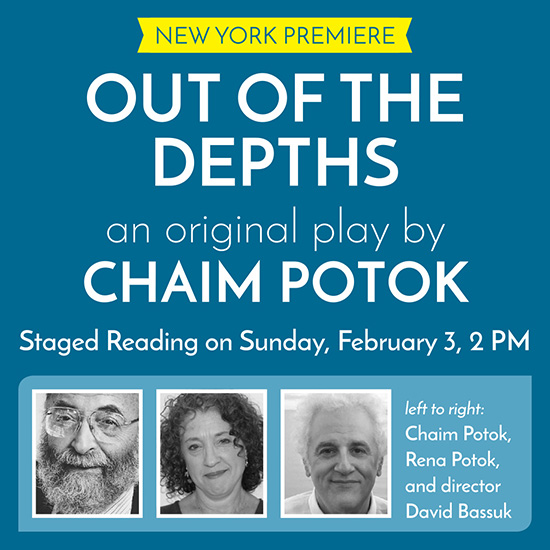
Out of the Depths
“She has beautiful eyes, this woman. And a beautiful face. And she is all day and all night in my thoughts. When I see the sun, I see her. When I see the moon, I see her, I hear her voice in the wind.”
So says Young Ansky in Chaim Potok’s original play, Out of the Depths. Based on the life of Solomon Rappaport (S. Ansky), the play begins in 1920 in a Warsaw rehearsal room where the Vilna Troupe are rehearsing Ansky’s The Dybbuk. Potok transports the audience to various times and locations in Ansky’s life, and against a backdrop of war and revolution, shows us how Ansky’s own life evolved into The Dybbuk. Directed by David Bassuk and introduced by Rena Potok, the performance celebrates the publication of The Collected Plays of Chaim Potok, edited by Rena Potok. A book signing follows the program.
Chaim Potok (1929-2002) is the author of nine novels, including The Chosen, My Name is Asher Lev, Davita’s Harp, and I Am the Clay. He also wrote Wanderings: Chaim Potok’s History of the Jews as well as Young Adult fiction, children’s books, a collection of novellas, biographies, and numerous essays and short stories. An ordained rabbi, Potok served as a U.S. Army chaplain in Korea. The Collected Plays of Chaim Potok is the first volume of his plays to be published.
About the Speakers:
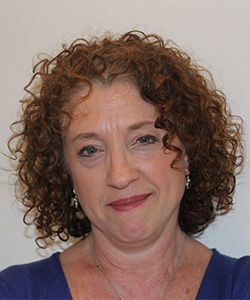 Rena Potok is a writer, editor, and educator. Her poems, literary translations, and academic essays have appeared in Religion and Literature, The Bryn Mawr Review of Comparative Literature, The Pennsylvania Gazette, and other publications. She is the editor of Hills of Spices: Poetry from the Bible and the 50th anniversary critical edition of The Chosen by Chaim Potok. She is a recipient of a Fiction Fellowship at the Martha’s Vineyard Institute of Creative Writing. She teaches English literature, Irish film, and writing at Villanova University, and is completing her first novel.
Rena Potok is a writer, editor, and educator. Her poems, literary translations, and academic essays have appeared in Religion and Literature, The Bryn Mawr Review of Comparative Literature, The Pennsylvania Gazette, and other publications. She is the editor of Hills of Spices: Poetry from the Bible and the 50th anniversary critical edition of The Chosen by Chaim Potok. She is a recipient of a Fiction Fellowship at the Martha’s Vineyard Institute of Creative Writing. She teaches English literature, Irish film, and writing at Villanova University, and is completing her first novel.
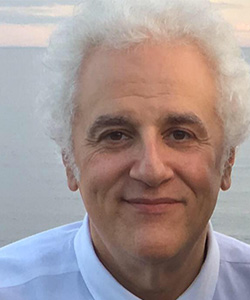 David Bassuk is Professor of Acting in the Conservatory of Theater Arts at Purchase College, SUNY, School of the Arts. He is a director of many productions, among them Cat’s Cradle: a musical by Kurt Vonnegut; Nadine Gordimer’s July’s People; Chaim Potok’s The Chosen Off-Broadway; and American Camera at Lincoln Center. Recent Purchase Repertory productions include last year’s The Maids, Tales from the Vienna Woods, Master and Margarita, Hedda Gabler, Peer Gynt, Lady Windermere’s Fan, and The Cherry Orchard. He holds an M.F.A. from Southern Methodist University.
David Bassuk is Professor of Acting in the Conservatory of Theater Arts at Purchase College, SUNY, School of the Arts. He is a director of many productions, among them Cat’s Cradle: a musical by Kurt Vonnegut; Nadine Gordimer’s July’s People; Chaim Potok’s The Chosen Off-Broadway; and American Camera at Lincoln Center. Recent Purchase Repertory productions include last year’s The Maids, Tales from the Vienna Woods, Master and Margarita, Hedda Gabler, Peer Gynt, Lady Windermere’s Fan, and The Cherry Orchard. He holds an M.F.A. from Southern Methodist University.
Ticket Info: $20 general; $15 seniors; $10 CJH/Partner members, students at potok.bpt.me or 800-838-3006
Presented by:


staged reading
book talk
Black Power, Jewish Politics: Reinventing the Alliance in the 1960s
Join us for a panel to celebrate the publication of Marc Dollinger’s Black Power Jewish Politics: Reinventing the Alliance in the 1960s with the author and special guests Including April Baskin (The Union for Reform Judaism), Cheryl Greenberg (Trinity College), Ilana Kaufman (The Jews of Color Field Building Initiative) and Rivka Press Schwartz (Associate Principal, SAR High School and Fellow, Shalom Hartman Institute of North America).In this book, Marc Dollinger charts the transformation of American Jewish political culture from the Cold War liberal consensus of the early postwar years to the rise and influence of Black Power-inspired ethnic nationalism. He shows how, in a period best known for the rise of black antisemitism and the breakdown of the black-Jewish alliance, black nationalists enabled Jewish activists to devise a new Judeo-centered political agenda—including the emancipation of Soviet Jews, the rise of Jewish day schools, the revitalization of worship services with gender-inclusive liturgy, and the birth of a new form of American Zionism.
AJHS is home to the records of the American Jewish Congress, where numerous photos trace the participation of Rabbis and other prominent Jewish leaders in the 1963 March on Washington, the 1965 March from Montgomery to Selma, Alabama, and other events and causes of the Civil Rights movement era. AJHS is also home to the collection of the American Association for Ethiopian Jews, which helped Ethiopian Jews receive recognition, aid, and refuge as they were trying to flee Ethiopia since the 1970s.
The Shalom Hartman Institute is a leading center of Jewish thought and education, serving Israel and North America. Our mission is to strengthen Jewish peoplehood, identity and pluralism and ensure that Judaism is a compelling force for good in the 21st century.
Ticket Info: $10 general; $5 AJHS members, students, seniors at bpt.me/3913922 or 800-838-3006; $12 at the door
Presented by:

book talk
conversation
The Changing Arab Military Threat to Israel
A special evening featuring former CIA analyst and renowned scholar Kenneth Pollack in conversation with Algemeiner editor-in-chief Dovid Efune. The talk will draw from Pollack’s new book, Armies of Sand, in which he argues that Arab forces have consistently punched below their weight since the Second World War. Mr. Pollack will explore these patterns while sharing a powerful and riveting historical account of the Middle East.
Ticket Info: $15 at events.theaj.com or 212-376-4988
Presented by:

conversation
conference
Jewish Africa Conference: Past, Present, and Future
Join us for a three-day cultural and scholarly conference bringing together emerging North & Sub-Saharan African scholars and leaders to analyze the history and contemporary situation of Jewish Africa, which is home to some of the oldest, most diverse and fascinating communities in the world.
Ticket Info: Available at www.jewishafricaconference.org or 800-838-3006
Presented by:

conference
film festival
Jewish Africa Film Festival
Journey to Judaism: The Story of Madagascar (2016). Joshua Kristal. (12.5 minutes)
Re-Emerging : The Jews of Nigeria (2012). Jeff Lieberman. (1 hr 33 minutes)
Each evening will feature either the director or a participant in the film as a presenter, including a Q&A.
Wine and cheese reception at 6:30pm.
Ticket Info: $20 – $30 at brownpapertickets.com or 800-838-3006
Presented by:

film festival
conference
Jewish Africa Conference: Past, Present, and Future
Join us for a three-day cultural and scholarly conference bringing together emerging North & Sub-Saharan African scholars and leaders to analyze the history and contemporary situation of Jewish Africa, which is home to some of the oldest, most diverse and fascinating communities in the world.
Ticket Info: Available at www.jewishafricaconference.org or 800-838-3006
Presented by:

conference
curator's talk
Lost & Found – A Family Photo Album
Join curator Jacob Wisse on a tour of Lost & Found, exploring the remarkable story of a pre-war family photo album that was owned by a woman who was deported from the Kovno Ghetto in 1943. Prior to her deportation, she smuggled the album to a non-Jewish Lithuanian family for safekeeping. After the album’s fortuitous discovery in 2013, it was reunited with the original owner’s descendants.
Ticket Info: $10 general; $5 seniors, students; free for YUM members, YU students, faculty, staff at bpt.me/3918709 or 800-838-3006
Presented by:

curator's talk
film festival
Jewish Africa Film Festival
Doing Jewish: A Story from Ghana (2016). Gabrielle Zilkha. (45 minutes)
Yearning to Belong (2007). David Vinik and Debra Gonshor Vinik. (58 minutes))
Each evening will feature either the director or a participant in the film as a presenter, including a Q&A.
Wine and cheese reception at 6:30pm.
Ticket Info: $20 – $30 at brownpapertickets.com or 800-838-3006
Presented by:

film festival
lecture
Bad Rabbi: and Other Strange but True Stories from the Yiddish Press
Eddy Portnoy, Ph.D., author of Bad Rabbi, Academic Advisor for the Max Weinreich Center and Exhibition Curator at YIVO, will discuss the Yiddish press in New York and Warsaw and the often strange stories about Jews that appear in it, as well as its use as a genealogical resource.
Ticket Info: $5 at the door; free for JGS members
Presented by:


lecture
conference
Jewish Africa Conference: Past, Present, and Future
Join us for a three-day cultural and scholarly conference bringing together emerging North & Sub-Saharan African scholars and leaders to analyze the history and contemporary situation of Jewish Africa, which is home to some of the oldest, most diverse and fascinating communities in the world.
Ticket Info: Available at www.jewishafricaconference.org or 800-838-3006
Presented by:

conference
family history today: genealogy programs at the center
SOLD OUT: Case Studies from Sherlock Cohn, The Photo Genealogist
In this fun and informative workshop, Sherlock Cohn, the internationally-known Jewish genealogy sleuth, will demonstrate how and why it is important to mine the clues our ancestors left for us in their photographs. The first part of the program will focus on understanding how immigration and assimilation, as well as religious customs and practices of our Jewish ancestors, help us learn more about the personalities and the stories hidden within our family photos. In the second portion of the program, Sherlock will use case studies, including one from Yeshiva University Museum’s current exhibition, Lost and Found – A Family Photo Album, to illustrate how photo dating, photo identification, knowledge of fashion and artifact history, and matching vital records can illuminate our relatives’ lives and help us solve some of our vexing genealogy mysteries. At the conclusion, she will help workshop attendees begin the process of analyzing their own family photos.
If you plan to attend this workshop and have a family photo you would like Sherlock Cohn to analyze, please read the photo submission guidelines here.
This program is supported, in part, by public funds from the New York City Department of Cultural Affairs in partnership with the City Council.
About the Speaker:
Ava (Sherlock) Cohn is an internationally-recognized professional genealogist who specializes in the dating and interpretation of Jewish family photographs. Ava is a graduate of Brandeis University and has completed coursework in decorative arts, art history and costume history at the Victoria and Albert Museum in London. For the past ten years, she has worked professionally as Sherlock Cohn and was a volunteer photo analyst for many years before starting her own business.
Ticket Info: This event is sold out.
Presented by:


family history today: genealogy programs at the center
concert and discussion
Sam Adler: Building Bridges with Music
The prolific composer and educator Sam Adler, born the son of a cantor in 1928 in Mannheim, Germany, reflects on a life in music in an intimate interview and performance of his chamber works.
Ticket Info: $15 general; $10 LBI/ASJM members, seniors, students at samadler.bpt.me or 800-838-3006
Presented by:

concert and discussion
conference
Yiddish Anarchism: New Scholarship on a Forgotten Tradition
This conference, the first of its kind, highlights emerging new scholarship on the forgotten world of Yiddish-speaking anarchists. It brings together an interdisciplinary group of scholars whose multilingual research examines the origin, evolution and contributions of Jewish anarchism in NYC and beyond.
Ticket Info: Free; reservations required at yivo.org/Anarchism
Presented by:

conference
workshop
Paper-Art Workshop for Tu B’Shevat with guest paper artist Marna Chester
As we prepare to mark the “birthday of the trees”, explore new ways to create art from paper. Taking inspiration from the songs and ceremonies of Tu B’Shevat – featuring flowers, birds and the seven species of the Land of Israel – this workshop explores unconventional ways to think about paper in both 2D and 3D. Our guest paper artist, Marna Chester, will inspire us to curl, fold, pinch, crumple, roll, poke, tear and cut paper, to craft new shapes and dramatic effects.
Ticket Info: $8 general; $6 YUM members, YU students, faculty, staff at bpt.me/3918705 or 800-838-3006
Presented by:

workshop
book talk
The Many Deaths of Jew Süss
Princeton Historian Yair Mintzker’s innovative new book on Joseph Süss Oppenheimer’s notorious trial and execution in 1738 draws on the accounts of four contemporaries, who paint a lurid tale of greed, sex, violence and disgrace. But can these narrators be trusted?
Ticket Info: $10 general; $5 LBI members, seniors, students at jewsuess.bpt.me or 800-838-3006
Presented by:

book talk
curator's tour
Kindertransport – Rescuing Children on the Brink of War
Join curator Ilona Moradof on a tour of Kindertransport – Rescuing Children on the Brink of War, illuminating the organized rescue efforts that brought thousands of children from Nazi Europe to Great Britain in the late 1930s. Explore the children’s difficult and often heartbreaking journeys through personal stories, artifacts and engaging media.
Ticket Info: $10 general; $5 seniors, students; free for YUM members, YU students, faculty, staff at kindertransport.bpt.me/3918592 or 800-838-3006
Presented by:


curator's tour
concert
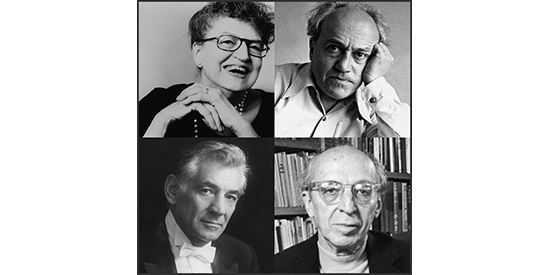
Flute Music of New York Jewish Composers
How did the greatest city on earth influence the lives and music of Jewish composers? Join some of New York’s most accomplished chamber musicians for a winter afternoon of flute music by such 20th and 21st-century musical luminaries as (clockwise) Miriam Gideon, Ernest Bloch, Aaron Copland, and Leonard Bernstein. Curated by music historian Nancy Toff, the concert will be introduced by Dr. Tina Frühauf of Columbia University.
Founded in 1920, The New York Flute Club is the oldest orchestral instrument club organization in the United States.
About the Speaker:
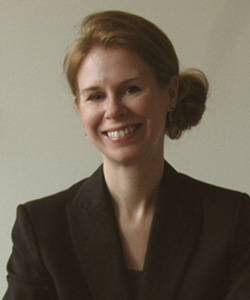 A professor at Columbia University and the Graduate Center at CUNY, Tina Frühauf has received fellowships and grants from American Musicological Society, the Leo Baeck Institute, and the Memorial Foundation for Jewish Culture. Her publications include: The Organ and Its Music in German-Jewish Culture (Oxford University Press, 2009/2012); Dislocated Memories: Jews, Music, and Postwar German Culture (Oxford University Press, 2014), and Experiencing Jewish Music in America, with Rowman & Littlefield published in 2018.
A professor at Columbia University and the Graduate Center at CUNY, Tina Frühauf has received fellowships and grants from American Musicological Society, the Leo Baeck Institute, and the Memorial Foundation for Jewish Culture. Her publications include: The Organ and Its Music in German-Jewish Culture (Oxford University Press, 2009/2012); Dislocated Memories: Jews, Music, and Postwar German Culture (Oxford University Press, 2014), and Experiencing Jewish Music in America, with Rowman & Littlefield published in 2018.
Ticket Info: $20 general; $15 seniors; $10 CJH/Partner members, students at flutemusic.bpt.me or 800-838-3006
Presented by:

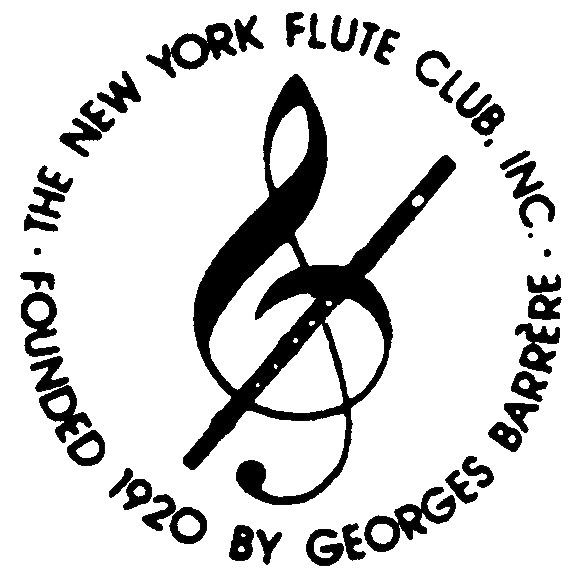
concert
lecture
Beyond Simple Myths: History and Memory of the Shoah in Eastern Europe
Historical memory has become a deeply contentious topic in the post-communist societies of Eastern Europe, particularly with regards to World War II, communism and nationalism. Christoph Dieckmann will share his experiences and impressions of both history and memory in Eastern Europe from the perspective of an engaged German historian.
Ticket Info: $15 general; $10 YIVO members, students at yivo.org/WP2019-Keynote
Presented by:

lecture
